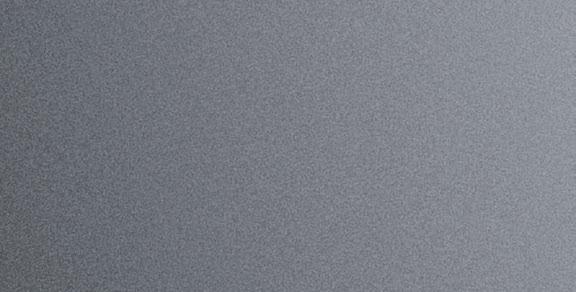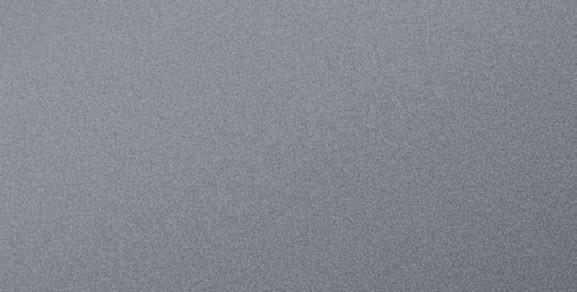CRIMSON


























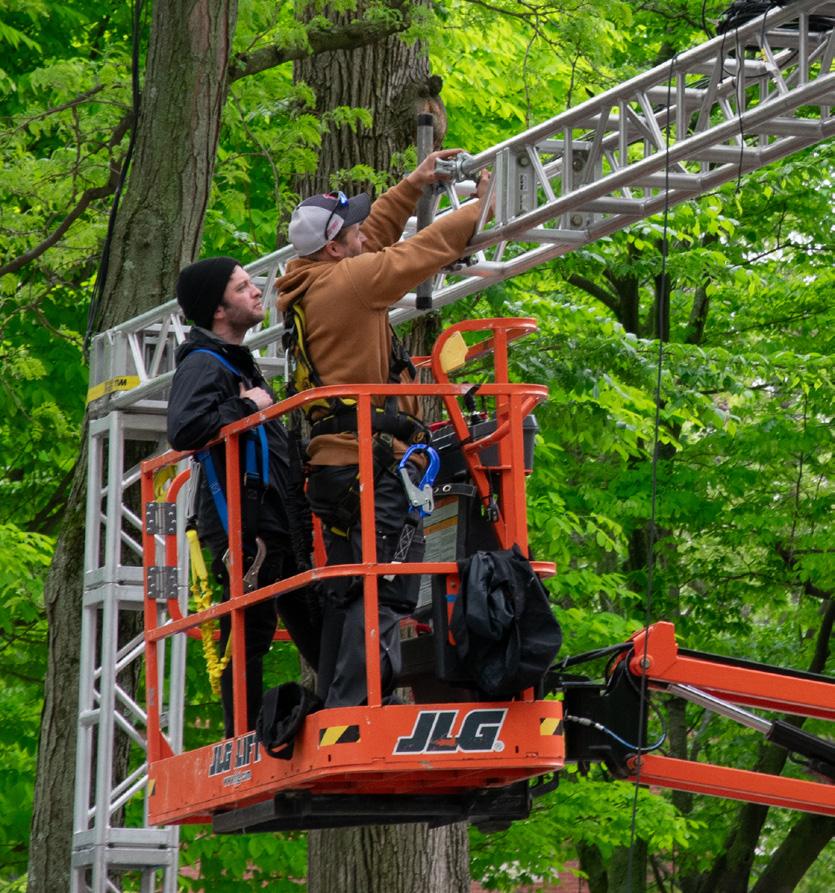


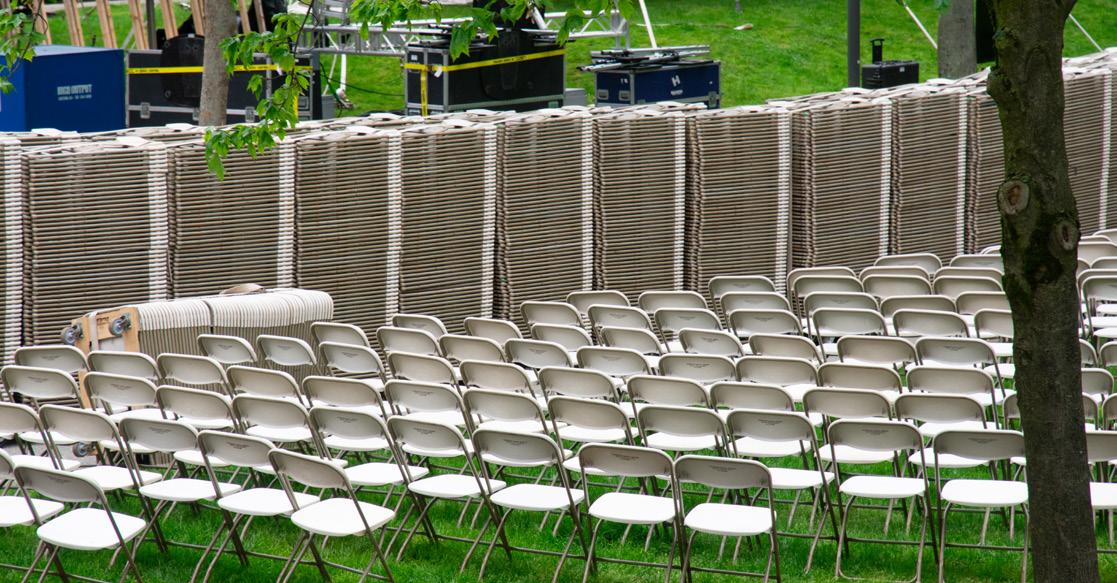

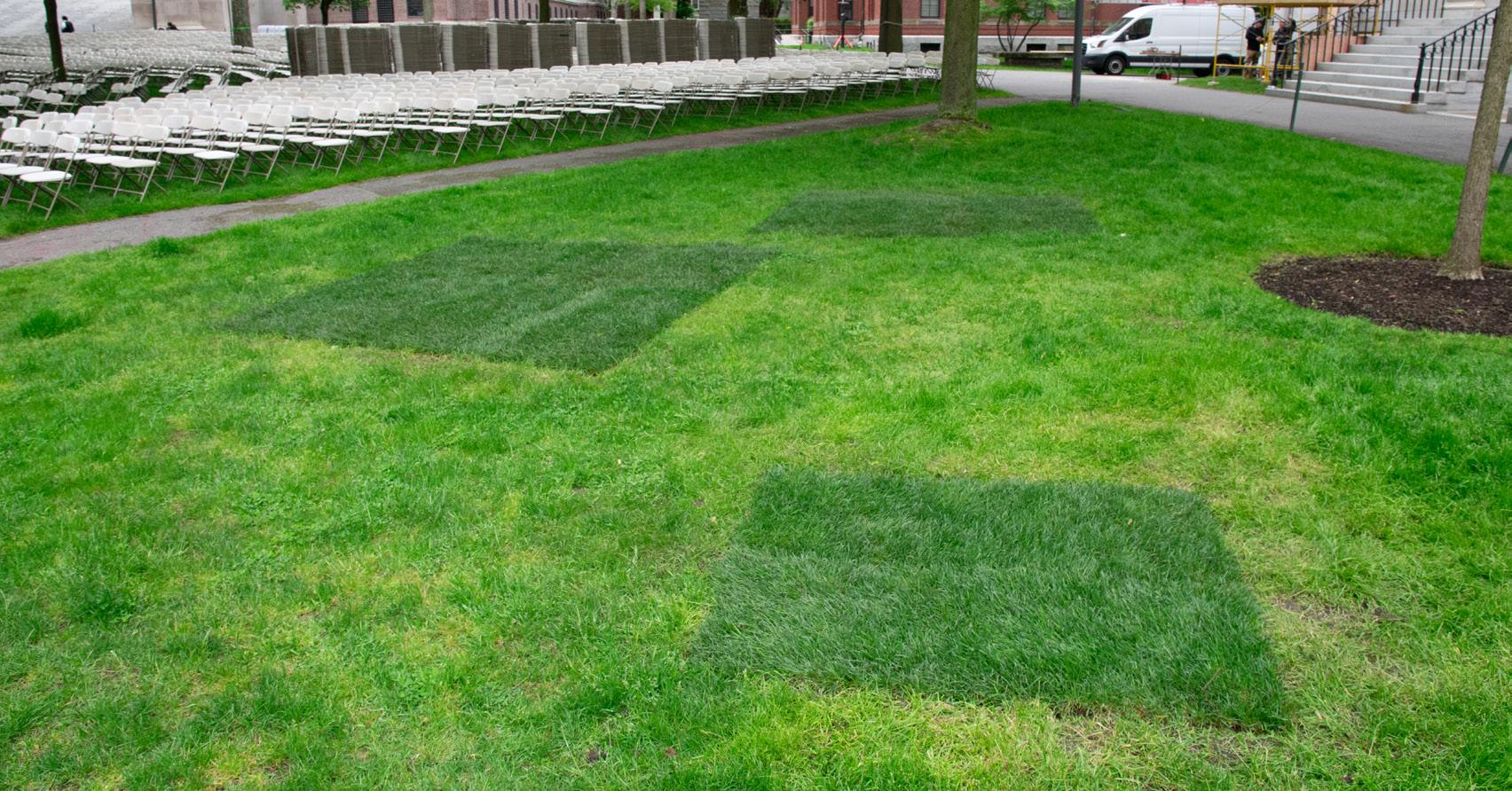
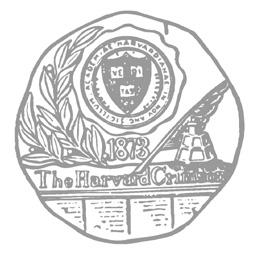
Harvard Out of Occupied Palestine, the unrecognized pro-Palestine coalition of student groups that staged the Harvard Yard encampment, warned University administrators to prepare for disruptions to Thursday’s Commencement ceremonies during an emergency rally on Sunday. The rally — which drew more than 200 Harvard students, affiliates, and local residents — came after the College suspended students over their involvement in a 20-day encampment in the Yard. Protesters decried the Harvard College Administrative Board’s decision to suspend five students, place more than 20 others on probation, and prevent 14 seniors from receiving their degrees during Commencement.
Protesters gathered outside of Johnston Gate, blocking traffic on Massachusetts Avenue for 20 minutes before marching down Brattle Street to the house of interim Harvard President Alan M. Garber ’76 for the second time this month.
Though no students whose degrees were withheld spoke at the rally, more than 10 seniors attended the rally with keffiyehs draped over their graduation robes. Standing in the middle of Mass. Ave, Harvard Law School student Lea H. Kayali said the University should expect disruptions to its Commencement ceremonies.
“If Harvard wanted a peaceful Commencement, they should not have threatened us and our most vulnerable student organizers,” Kayali said.
In a Saturday Instagram post publicizing the rally, HOOP wrote that the rally was intended to “send Harvard a message: commencement will not proceed as normal while Harvard penalizes the stu-
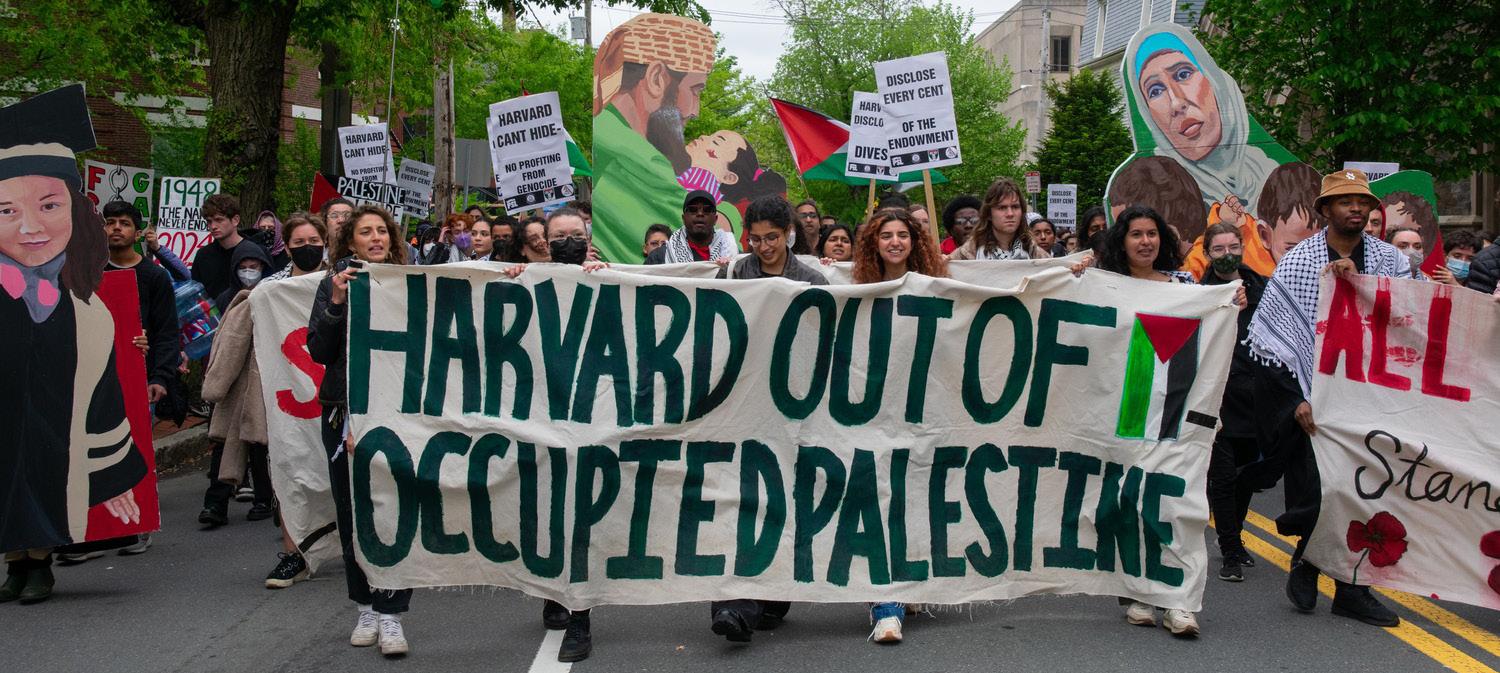
dents that speak against genocide.” On the street outside Garber’s house, demonstrators drew chalk messages in support of Palestine, writing “Harvard has blood on its hands” and “How do you sleep at night?”
At the beginning of the protest, organizers asked attendees to affix flyers with names and pictures of Palestinians and the words “Martyred by the IOF” to the outside of Johnston Gate. The term “IOF,” standing for Israeli Occupation Forces, is often used by pro-Palestine protesters to refer to the Israeli Defense Forces.
Protesters continually called attention to both the Ad Board’s disciplinary action and the ongoing war in Gaza.
“You suspend five students, you discipline over 35 students. They’re making it so that 14 seniors can’t graduate. And on top of all that, Palestine is going through a genocide,” said Kojo Acheampong ’26, an organizer with the African and African American Resistance Organization.
Harvard Divinity School student Rameen A. Javadian read aloud an op-ed written by a graduating senior whose degree will be
withheld for one year. The student wrote that they wished to remain anonymous due to fear of retaliation from the Ad Board, which asks students to keep details of their disciplinary processes confidential.
“My family, who have made innumerable sacrifices to see me in the place that I am today, will not be able to hang a college diploma on our living room wall,” the student wrote in the op-ed. “I am leaving Harvard infuriated, exhausted, and disgusted.”
Acheampong said in a speech outside of Garber’s house that pro-Palestine organizers had upheld their end of the bargain with the University by peacefully ending the encampment and implied the Ad Board’s decision to prevent students from graduating was at odds with Garber’s negotiations with students.
“We know how to keep up our end of the bargain, Garber. We know how to do that. We know how to maintain a deal. What happened?” Acheampong said.
In response to a request for comment on the rally, a University spokesperson referred The Crimson to Garber’s email to students participating in the encampment, in which he offered protesters a
meeting about divestment with the University’s governing boards and agreed to expedite the Administrative Board cases.
“It does not speak to the outcome of disciplinary processes, rather it indicates he would encourage disciplinary bodies to move their processes forward expeditiously, in line with their existing precedents and practices,” University spokesperson Jason A. Newton wrote of the email in a May 18 statement to The Crimson.
As part of the agreement to end the encampment, Garber said he would ask the leaders of Harvard’s schools to begin the reinstatement process for 22 students placed on involuntary leave for their participation in the encampment.
But while Garber did not explicitly promise clemency for students facing separate Ad Board proceedings if the demonstration was disbanded peacefully, protesters seemed to understand it as such.
While Acheampong seemed to implicate Garber in the College’s decision to punish students, the Ad Board’s disciplinary committee is composed of faculty and administrators — including resident deans — and chaired by Dean of Harvard
College Rakesh Khurana. Garber is one of two ex-officio members of the board.
Acheampong added that while the encampment was “successful,” it was merely one way pro-Palestine organizers plan to spur Harvard into meeting pro-Palestine student demands.
“This encampment was literally just a tactic — a successful tactic — but we have a whole arsenal of cards to lay down,” Acheampong said.
Nikhil Dharmaraj ’23 said pro-Palestine alumni have pledged to stop donating to the University “until disclosure, divestment, amnesty, and the reinstatement of the PSC,” referring to the Palestine Solidarity Committee, a student organization which was suspended last month.
Dharmaraj also called on various levels of Harvard administrators to override the Ad Board’s punishments levied against students and “allow students to graduate.” The rally also featured speeches from Leyla Abarca, a student at Somerville High School, Molly Brooks, a history teacher at Cambridge Rindge and Latin School, and an unnamed organizer with BDS Boston.
Organizers introduced two new chants during the rally — “intifada, intifada coming to America” and “Harvard fuck your funding, a new world is coming.” The Arabic term “intifada,” which has been frequently chanted at pro-Palestine protests since the fall, has been a major source of contention between protesters and pro-Israel affiliates on campus.
Many Jews consider the term to be antisemitic and tantamount to a call to violence against Jews and Israelis. Protesters who use the chant emphasize its translation as “uprising” or “shaking off” and its use to describe other historical resistance movements, not limited to those in Palestine.
Tala A. Alfoqaha, a Palestinian third-year Harvard Law School student, said reactions to “intifada” and the phrase “from the river to the sea” represent the “Palestine exception to free speech.”
“There’s a reason that Harvard presidents cower at the liberatory slogan ‘from the river to the sea,’” Alfoqaha said in a speech. “There’s a reason Congress has spent more time manufacturing outrage over the very word ‘intifada’ than doing anything to stop the billions of dollars that is funneling into death, rather than investing into life.”
On Saturday, Harvard Out of Occupied Palestine publicized a petition on Instagram asking for peers to be allowed to graduate and urging Harvard’s administration to overturn the Ad Board’s rulings against students. The petition received more than 1,100 signatures from undergraduates in 24 hours, according to a Sunday afternoon Instagram post by Harvard Out of Occupied Palestine. Since the Ad Board’s decision on Friday, more than a dozen officially recognized student organizations have put out similar statements expressing disappointment with the College’s decision to punish students for their involvement with the encampment.
The Harvard Management Company, the entity that stewards Harvard’s $50.7 billion endowment, cut the pay of Chief Executive Officer N.P. “Narv” Narvekar by 6.9 percent in 2022 after the endowment had its third-worst annual investment results in the last 20 years.
Narvekar, who received $6.19 million in total compensation, saw his total pay drop to its lowest levels since he joined the HMC in 2016. Narvekar received approximately $1 million in base salary and $5.2 million in bonuses.
Harvard disclosed the 2022 salaries of its highest paid administrators and faculty members in the University’s annual Form 990 tax filings on May 10. The Internal Revenue Service requires all tax-exempt organizations — including higher education institutions — to report salaries for each fiscal year.
Former University Treasurer Paul Finnegan ’75 — who chairs the HMC board of directors that approves salaries and bonuses for HMC executives — rushed to dispel any notion that the University’s leadership had lost confidence in Narvekar.
Finnegan, who will step down from the Harvard Corporation at the end of June, praised Narvekar and his team for producing annualized endowment returns of 9.2 percent and reshaping the University’s investing approach.
“Over the course of six fiscal years, Narv and his team have made tremendous progress repositioning the endowment and HMC for long-term success,” Finnegan wrote in a May 10 press release.
“Their hard work has allowed the University to sustain this critical source of funding for financial aid, groundbreaking research, and world class teaching,” he added. In 2022, Narvekar and Chief Investment Officer Richard W. Slocum elected to defer $1.24 million in compensation to this fiscal year. The move led to an increase in their total reported compensation on W-2 forms for the 2023 fiscal year, despite changes in salary and bonuses.
The Form 990 tax filings also disclosed the salary of the University’s top leadership, including the pay of former Harvard President Lawrence S. Bacow during his final year in the job.
Bacow earned roughly $1.3 million during the 2023 fiscal year, in


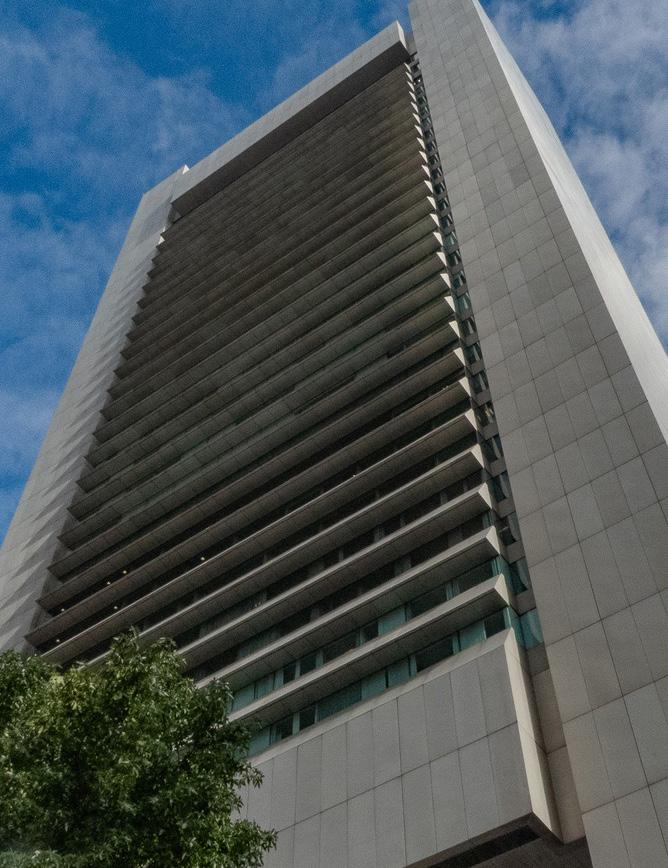
line with his 2022 earnings.
The compensation figures reported by the University depict earnings for the 2023 fiscal year spanning from July 1, 2022 to June 30, 2023. Bacow, who stepped down in June, was the only president whose earnings were reported in the filings.
During the 2023 fiscal year, then-University Provost Alan M. Garber ’76 received yet another pay hike, earning over $175,000 more than 2022. He earned a salary of $884,365 and an additional $238,402 in compensation for his residence provided by the University.
Garber’s earnings do not reflect his current salary as interim president and its compensation package, after he succeeded former Harvard President Claudine Gay in an interim capacity.
Gay, who served as dean of the Faculty of Arts and Sciences throughout the entirety of the most recent fiscal year, earned $679,638 — a slight increase from the year prior.
Gay’s current salary remains unclear. She served as president for just 185 days before resigning amid allegations of plagiarism and fierce backlash over her handling of campus antisemitism. She has since returned to her role as a Government and African and African American Studies professor. The compensation figures do not include University provided housing offered to top administrators or other non-taxable benefits including medical insurance and retirement contributions made by the University. David J. Malan ’99, a computer science professor of practice, remained Harvard’s highest paid active faculty member for a third straight year earning over $1.3 million. Malan teaches the


Harvard Out of Occupied Palestine announced on the morning of May 14 that it would peacefully end the encampment in Harvard Yard, bringing an anticlimactic end to Harvard’s most high-profile pro-Palestine protest this year and paving the way for Commencement to proceed as planned. The decision to peacefully end the encampment came after University President Alan M. Garber ’76 and HOOP organizers negotiated a peaceful end to the protest. Garber’s administration agreed to promptly begin reinstating at least 22 students from involuntary leaves of absence and offered protesters a meeting with members of the University’s governing boards about di-
vestment.
Harvard spokesperson Jonathan L. Swain confirmed the University will encourage schools to begin processing petitions for reinstatement from involuntary leave.
“Yesterday, the Harvard Out of Occupied Palestine (HOOP) coalition democratically voted to end its encampment after 20 days,” HOOP wrote in a press release Tuesday morning.
The University also agreed to expedite Administrative Board cases for more than 60 students facing charges for their involvement in the encampment with “precedents of leniency for similar actions in the past,” according to the press release.
Members of the encampment will also meet with Garber and Faculty of Arts and Sciences Dean Hopi E. Hoekstra to discuss their perspectives on the Israel-Hamas war, according to Swain. HOOP signaled in its Tuesday morning press release that it intended to raise the possibility of establishing a center for Palestine studies in its meeting with Hoekstra.
Garber also confirmed the details of the agreement with HOOP
and acknowledged the “pro-
found grief” surrounding the Israel-Hamas war in a Tuesday morning email to Harvard affiliates.
“There will continue to be deep disagreements and strongly felt emotions as we experience pain and distress over events in the wider world,” Garber wrote. “Now more than ever, it is crucial to do what we do at our best, creating conditions for true dialogue, modeling ways to build understanding, empathy, and trust, and pursuing constructive change anchored in the rights and responsibilities we share.”
Despite Garber repeatedly insisting that the University would not negotiate with the protesters, the outcome of the 20-day occupation of the Yard demonstrated that he ultimately preferred to continue seeking a negotiated end to the encampment than sending in Harvard University police officers to clear the tents and arrest protesters.
Protesters began packing up the encampment overnight, moving boxes full of supplies out of the Yard. On Tuesday morning, around a dozen members of the encampment calmly took down tents and
collected sleeping bags while playing music from a speaker.
As protesters dismantled their tent city, there was a reverse process playing out on the other side of University Hall, where Harvard’s Commencement ceremonies take place. Movers delivered large metal poles to construct a temporary stage as other workers prepared to hoist Harvard banners above the steps of Widener Library.
The encampment also saw an increase in police presence in the hours leading up to the announcement of its conclusion. At least three police cars, including Harvard University Police Department vehicles and one unmarked police car, circled the perimeter of the encampment Tuesday morning.
Garber previously met with a group of HOOP organizers last week and told protesters that they must end the encampment to avoid receiving involuntary leave notices.
He also offered to seek a meeting between HOOP members and at least one member of the Corporation Committee on Shareholder Responsibility — a group that determines how the University votes on
shareholder matters related to investments in publicly traded companies.
The pro-Palestine protesters initially rejected Garber’s proposal by responding with counterproposals of their own that Garber, in turn, declined.
When HOOP publicly revealed its meeting with Garber last week, a University spokesperson insisted that it was not a “dialogue” and not a negotiation, but Tuesday’s end to the encampment showed that some degree of negotiations continued over the past six days even as the agreement HOOP announced Tuesday morning is remarkably similar to the proposal offered by the University nearly one week ago.
The surprise negotiated end to the encampment came after days of escalating tensions between protesters and the administration.
Protesters raised a banner over the encampment that depicted Garber as a devil. The banner depicted Garber, who is Jewish, with horns and a tail sitting on a toilet. Protesters later removed the image after they faced fierce backlash from
many affiliates who described the drawing as antisemitic.
During a 150-person rally on Saturday, protesters attempted to let non-Harvard affiliates into the Yard by breaking a lock on Johnston Gate with a bolt cutter. While HUPD officers quickly secured the gate, Swain called the incident “extremely concerning.” In response, Harvard police entered the encampment on Monday and took photographs of protesters in their tents, a move which some suspected could precede police action to forcibly end the encampment.
“In reassessing the strategic value of our encampment, we have come to the conclusion that this tactic has outlasted its utility with respect to our demands,” HOOP organizers wrote in the press release.
“We are under no illusions: we do not believe these meetings are divestment wins,” they added in an Instagram post. “These side-deals are intended to pacify us away from full disclosure & divestment.”
joyce.kim@thecrimson.com jo.lemann@thecrimson.com
The Harvard College Administrative Board suspended five students and placed more than 20 students on probation Friday evening over their involvement in the 20-day pro-Palestine encampment in Harvard Yard, according to two Harvard Out of Occupied Palestine organizers and a faculty member with knowledge of the situation.
At least one graduating senior will be required to withdraw from the College for three semesters and a rising junior will be forced to withdraw for two semesters. The College will also prevent at least 12 seniors from graduating at Commencement, which will be held in six days.
Of the 12 seniors, two of them were among the five students who were forced to withdraw from the College on Friday.
Suhaas M. Bhat ’24, a Rhodes Scholar-elect, announced that he was put on probation at the start of the Class of 2024 Senior Talent Show, which he was initially slated to help judge.
“Harvard is not allowing me to graduate this semester for my participation in the encampment,” Bhat told the crowd of seniors in Sanders Theatre. “I think it’s a good time to think about what it means

to go to this University and what it means to have freedom of speech and what our moral obligations are when 40,000 innocent people die.”
Bhat wrote in a statement that he was charged by the Ad Board with “participation” in the encampment and violating Harvard’s University-Wide Statement on Rights and Responsibilities. However, Bhat wrote that while the Ad Board subcommittee responsible for evaluating his case found him not responsible for violating the Rights and Responsibilities statement, the “complete Ad
Board voted to place me on academic probation, and thus prevent me from graduating.” College spokesperson Jonathan Palumbo wrote in a statement that the College is “committed to applying all policies in a content-neutral manner and per existing regulations as outlined in college and university guidelines.”
Palumbo declined to comment on the specific Ad Board charges against students.
The disciplinary action comes after a group of organizers with Harvard Out of Occupied Palestine
— a coalition of pro-Palestine student groups — met with interim University President Alan M. Garber ’76 to negotiate a peaceful end to the encampment. Organizers announced their decision to conclude the encampment on Tuesday, after an initial failed attempt at reaching an agreement to end the protest.
At least 60 students initially received notices to appear before the Ad Board over their involvement in the encampment. It is unclear how many cases remain unresolved.
On Wednesday, the University reinstated more than 22 students —
at least 13 of whom were undergraduates — from involuntary leaves of absence last week. The reinstatements were a part of Garber’s agreement with HOOP organizers to end the encampment, which also included a meeting with members of the University’s governing boards about divestment.
Involuntary leaves of absence are distinct from disciplinary proceedings before the Ad Board.
Several students facing disciplinary action also claimed that they were under the impression that Garber’s administration would grant leniency to students if they voluntarily ended the encampment.
Garber wrote in a Tuesday morning email to HOOP organizers following the end of the encampment that he would “encourage the administrative boards or other disciplinary bodies within the schools to address cases expeditiously under existing precedent and practice (including taking into account where relevant the voluntary decision to leave the encampment), for all students, including those students eligible thereafter to graduate so that they may do so.”
But a copy of the email reviewed by The Crimson does not contain any explicit promises from Garber that the Ad Board would be lenient in its decisions. Christina A. Jump — the head of the civil litigation department of
the Muslim Legal Fund of America, which accused Harvard of anti-Palestinian and anti-Muslim bias in a civil rights complaint on behalf of a dozen students — said her team intends to “proceed with full disclosure to the Office of Civil Rights and communicate accurately that these students were given false impressions.”
“We are disappointed to see Harvard, at best, doing a wordplay that misled the students into reaching the agreement they did, and, at worst, is illegal retaliation,” Jump said. Several students facing Ad Board charges maintained that the disciplinary consequences were unfair and disproportionate to charges levied in the past against students.
Bhat, whose Rhodes scholarship may now be at risk due to the probation charge, shared a portion of his Ad Board statement in response to a request for comment. Bhat wrote that he won the scholarship “in part because of my work as a fossil fuel divestment activist.”
“Do these accolades mean anything if I do not actually live by the principles that they are recognizing?” he added. “Am I no longer an ideal Harvard student if I ask the University to live up to its own principles?”
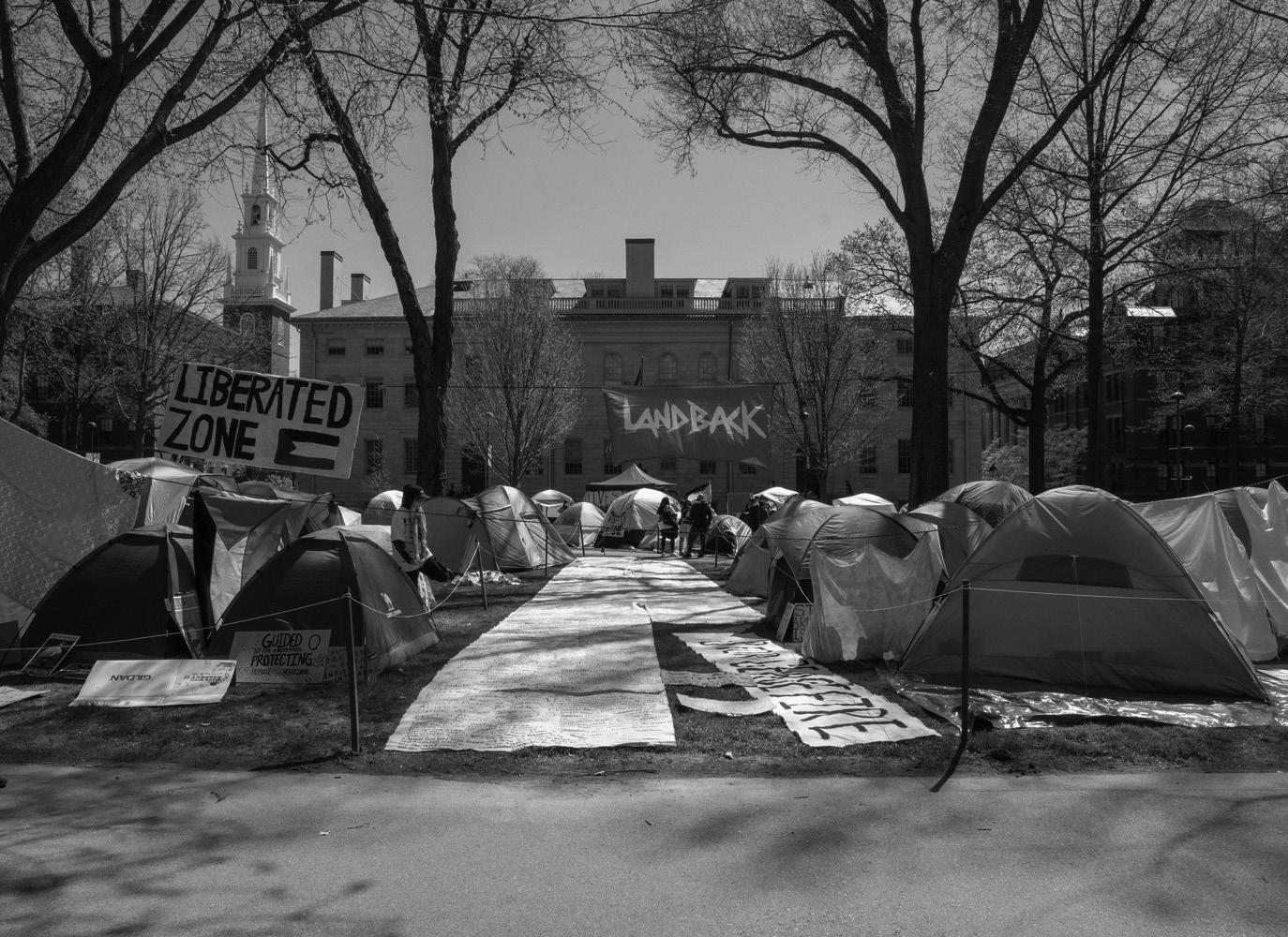
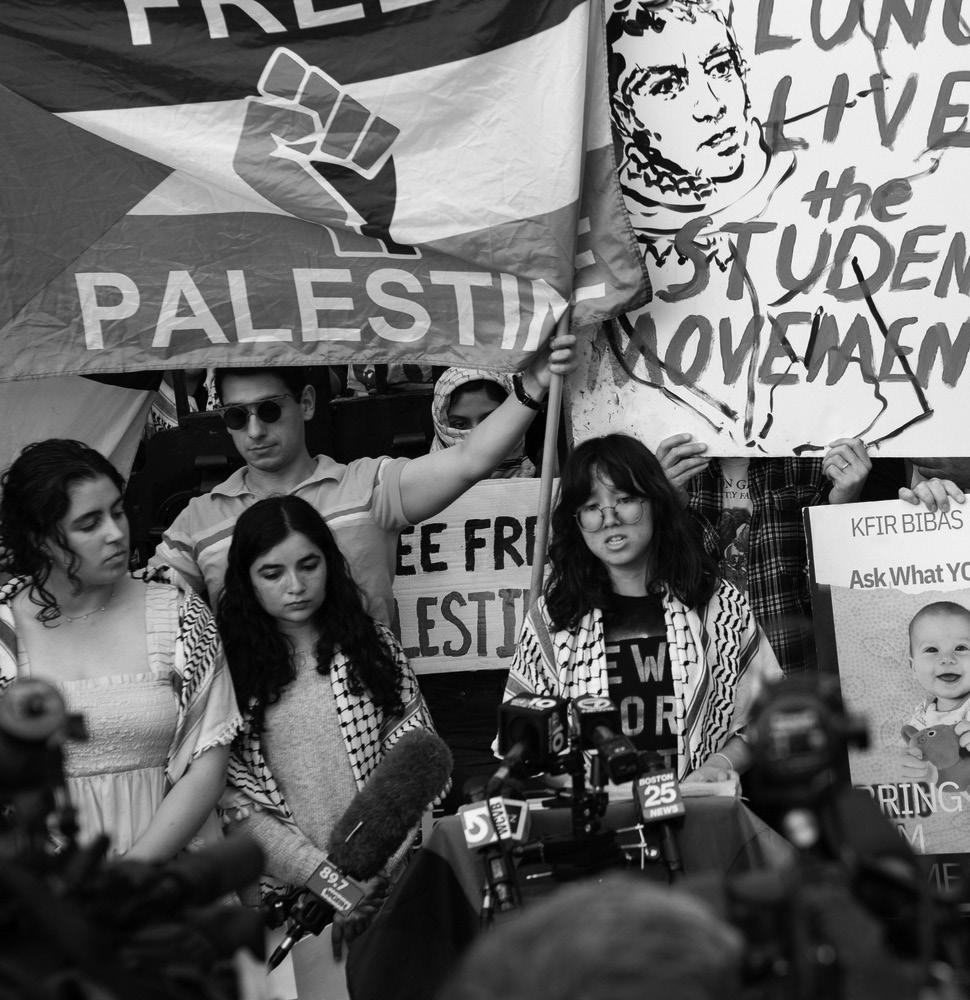
Members of the pro-Palestine encampment rejected a proposal from interim University President Alan M. Garber ’76 to end their two-week occupation of Harvard Yard and avoid receiving involuntary leave of absence notices, according to an Instagram post published shortly after midnight on May 10 by the group leading the encampment.
Garber, facing pressure from his own faculty to negotiate with the student protesters, initiated a May 8 meeting with several members of Harvard Out of Occupied Palestine — a coalition of pro-Palestine student groups — to offer a potential meeting with more University officials to answer questions related to the protesters’ concerns about Harvard’s investments in Israel.
Harvard spokesperson Jonathan L. Swain confirmed the May 8 meeting in an early morning statement on May 10, which included Dean of the College Rakesh Khurana and two faculty observers in ad-
dition to Garber and the protesters.
HOOP representatives did not accept the off-ramp offered to them by Garber and instead responded with a counterproposal of their own. The breakdown in negotiations makes it almost certain that dozens of students who participated in the encampment will soon be placed on involuntary leave from their schools, a fact that HOOP itself acknowledged in the May 10 post.
“In short, Garber ignored us, threatened us, refused to negotiate with us, and will now be the first Harvard president in recent memory to suspend students en masse for protesting,” HOOP wrote. Swain wrote that Garber “has made clear the University’s commitment to reasoned discussion of complex issues, including the ongoing Israel-Hamas conflict.”
“However, as he said, ‘initiating these difficult and crucial conversations does not require, or justify, interfering with the educational environment and Harvard’s academic mission,’” Swain added.
Since the start of the encampment, HOOP demanded the University disclose and divest from all investments in Israel. Garber
and other senior Harvard officials, however, have repeatedly indicated that the University will not seek to divest its endowment from Israel — a point Garber reaffirmed to HOOP representatives during the May 8 meeting.
Under involuntary leaves of absence, students will not be able to finish final exams or stay in Harvard housing, and must “cease to be present on campus until reinstated” — marking the most forceful action the University has taken against protesters since the encampment began two weeks ago.
Swain wrote that “disciplinary procedures and administrative referrals for placing protesters on involuntary leave continue to move forward.”
“Garber shut down our most basic demands, making clear that the meeting was not a negotiation, but merely a ‘conversation,’” HOOP wrote. “All he would concede was the possibility for more ‘conversations’ — not negotiations — conditional on the immediate removal of the encampment.”
Swain confirmed that Garber made it clear to the protesters that the May 8 meeting was “not a negotiation of protesters’ demands.”
“He reaffirmed the University’s commitment, as an institution where debate and discussion are central to our mission, that there would be more opportunities for constructive dialogue on these issues across our community in the coming months,” Swain wrote.
The meeting with University officials about Harvard’s endowment that the protesters rejected in favor of continuing the occupation would have potentially included at least one member of the Corporation Committee on Shareholder Responsibility — a group that determines how the University votes on shareholder matters related to investments in publicly traded companies.
HOOP also wrote in the post that protesters chose to remain in the encampment “because we know there is no sacrifice too large to protest Harvard’s complicity in genocide.” Since it began on April 24, the encampment has expanded to the portion of the Yard, where Commencement, Harvard’s graduation ceremony, is annually held.
The group’s decision to remain in the Yard and risk involuntary leaves of absence raises the possibility of Harvard’s administration
asking police to clear the encampment.
While Garber said in an interview last month that there is a “very high bar” before asking law enforcement to take action against student protesters, he has also signaled in recent days that the University does not intend to let the encampment derail Commencement.
Swain wrote that “Garber also reiterated that the encampment must end so that thousands of students can be recognized for their academic achievement at Harvard’s Commencement.”
The May 8 meeting marked the first time Garber had sat down with protesters since the start of the encampment. For the first two weeks of the occupation, Garber mostly ignored the protesters even as they repeatedly called on the University’s administration to engage with their demands.
The group previously gave Garber until May 6 at 5 p.m. to begin negotiating with the protesters — a deadline that passed without any acknowledgement from the University.
Instead, Garber sent a University-wide email the morning of May
6 threatening “involuntary leave” for protesters who continued to remain in the encampment in Harvard Yard. Garber’s email did not address the deadline set by HOOP or express any intention to begin negotiations with the group.
The meeting with Garber comes after HOOP alleged on social media the afternoon of May 8 that University leadership “repeatedly” ignored requests to meet from pro-Palestine groups and students since October 2023.
HOOP’s May 10 post also included a screenshot of an email from Garber in which he responded to the group’s decision to reject his proposal and remain in the encampment.
“I regret that you have declined this opportunity by deciding to continue the encampment,” Garber wrote in the email. “Best, Alan.” The Instagram post included HOOP’s response.
“We regret that you have declined this opportunity by deciding to continue punishing students for protesting a genocide,” the group wrote. “Best, HOOP.”
michelle.amponsah@thecrimson.com
Harvard College erroneously sent an involuntary leave of absence notice intended for members of the pro-Palestine encampment to a news reporter for The Harvard Crimson, raising questions about the University’s process for determining which students participated in the protest. The freshman reporter received a letter from Dean of Students Thomas Dunne in the early morning on May 10 that stated they had 24 hours to depart campus. The College retracted the letter within an hour after The Crimson’s leadership alerted University officials that it had taken action against a student journalist who never participated in the protest. Despite the fast retraction,
the College did not offer an explanation for how it mistakenly identified a reporter, who had only infrequently covered the encampment, as a member of the protest’s core group. The reporter was one of just 21 students who initially received an involuntary leave of absence notice.
Dunne expressed regret for the error in his letter retracting the involuntary leave notice.
“I am writing to inform you that the status and letter are retracted, and you are not being placed on leave,” Dunne wrote. “I apologize for any inconvenience or stress that this may have caused.”
The mistake will likely place additional pressure on the University to disclose its methods for determining who to place on involuntary leave. The first wave of involuntary leave notices comes four days after interim Harvard President Alan M. Garber ’76 first
warned of the measure for students who “participate in or perpetuate” the continuation of the encampment.
The original disciplinary letter, which was sent at 9:31 a.m., stated that the “decision was not made lightly but was precipitated by serious concerns about your participation in an unauthorized encampment occupation in Harvard Yard, on May 7, 2024.”
The original letter also states that the reporter was “identified as a student who remained in the encampment” following Garber’s May 6 email to affiliates, raising concerns that any student who agreed to an ID check near the encampment after that date could be placed on leave even if they had since left or not been a participant in the encampment.
The reporter was assigned to cover the protest during an ID check on Tuesday and remained outside the bounds of the en-
campment. Harvard Crimson President J. Sellers Hill ’25 wrote in a statement that the reporter was wearing a press badge and identified themself as a Crimson reporter when asked to present their ID.
Hill wrote that “we are shocked and troubled by today’s suspension of a clearly identified student reporter.”
“While the suspension was quickly lifted after The Crimson contacted the University, it was nonetheless an alarming violation of due process and student press freedom,” he added.
A College spokesperson wrote in a statement that the reporter “received an involuntary leave message today as their status as a Harvard Crimson reporter was not communicated to the College.”
The spokesperson wrote that the miscommunication occurred between administrators and that
the reporter had identified themself at the time.
“We immediately rectified the situation when notified and apologized to the student,” he added.
The wave of leave of absence notices comes hours after members of the pro-Palestine encampment rejected Garber’s offer to leave the encampment in exchange for avoiding involuntary leave.
While Crimson reporters were identified by their ID cards, the protesters themselves declined to show the administrators identification during the May 7 ID check.
Dean of Student Services Michael Burke later resorted to filming the protesters on his phone, though many concealed their faces with keffiyehs, surgical masks, and sunglasses.
Administrators had not returned to the encampment to conduct ID checks since May 7, indicating that students who were
placed on leave on May 10 were identified during that ID check, the only attempt by administrators to identify protesters after Garber’s email first threatened the possibility of involuntary leave. The 20 students placed on involuntary leave — 11 of whom are undergraduates — have until Saturday at noon to leave campus. They were given the option to “request consideration” of their involuntary leave and the ability to change the status from involuntary to voluntary. The error by Harvard administrators is not the first time a student journalist has been wrongly targeted for reporting from the scene of campus protests and encampments. Two student journalists were arrested at Dartmouth College while covering a pro-Palestinian rally on campus.
emma.haidar@thecrimson.com cam.kettles@thecrimson.com
More than 1,100 undergraduates signed a petition urging Harvard College to overturn its decision to suspend five students and place more than 20 other students on probation for their participation in the 20-day pro-Palestine encampment in Harvard Yard, according to Harvard Out of Occupied Palestine.
HOOP, the coalition of pro-Palestine student groups that staged the encampment, organized the petition, which appeared to be exclusively accessible to students with a Harvard College email address and allowed students to sign anonymously.
The Crimson could not independently verify the number of students who signed onto the petition.
The number of signatures reported by HOOP represents roughly 15 percent of the College’s student body and reflects broad disapproval of the decision to discipline a significant number of undergraduates just days before Commencement, the University’s annual graduation ceremony.
The sanctions will prevent more than 12 graduating seniors from receiving their diplomas, including several Rhodes Scholar recipients.
Harvard affinity groups and faculty also slammed the College for taking disciplinary action, that many described as a “Palestine exception to free speech.”
At least a dozen student groups, including the Harvard-Radcliffe Asian American Association and the Society of Arab Students, called for the reversal of the sanctions and claimed that students at Harvard historically received little

or no disciplinary action for participating in protest movements, according to statements published to Instagram on Saturday. College spokesperson Jonathan Palumbo referred to a Friday statement that said Harvard is “committed to applying all policies in a content-neutral manner and per existing regulations as outlined in college and university guidelines.”
Palumbo added that the College does not comment on “specific student matters.”
History professor Walter Johnson, who previously served as faculty adviser to the Palestine Solidarity Committee, wrote in an email that the disciplinary action is “an ethical, procedural, and insti-
tutional catastrophe” and that the charges brought against students are “based upon non-specific allegations, some of them presented in the passive voice, and undemonstrated insinuations of unspecified dangers and disruptions.”
“By the end of the encampment, representatives of the administration were IDing people at random in the Yard, and neither the University nor its various ad boards have ever bothered to actually sort out an account of what, exactly, any given student is being accused of doing,” Johnson added.
Classics professor Richard F. Thomas also suggested that Harvard’s response to the encampment differed from its historical approach to student demonstrations.
Interim University President Alan M. Garber ’76 met with the head of the Anti-Defamation League Jonathan Greenblatt on May 10 to discuss campus antisemitism as Harvard faces a congressional investigation over its efforts to combat antisemitism.
The meeting took place as the pro-Palestine Harvard Yard encampment neared the end of its third week and 20 demonstrators received notice that they were placed on involuntary leave. Protesters in the encampment caught sight of Greenblatt as he was leaving Massachusetts Hall, where Garber’s office is located.
Greenblatt wrote in a statement that the meeting was “very productive” and praised Garber’s unwillingness to entertain protesters’ demands, which include Harvard disclosing and divesting from its holdings in companies and institutions with Israeli ties.
“We support the stance he has taken in indicating he will not negotiate with people in the encampment who are violating university code of conduct,” Greenblatt wrote. “We continue to look forward to working with Harvard as they will make sure that all students including Jewish and Israeli students feel valued and welcomed on campus.”
The meeting came after protesters rejected an offer from Garber to end the encampment in exchange for avoiding being placed on leave — though a University spokesperson said the discussion between Garber and organizers was not a negotiation. The University has faced extensive criticism for its response to allegations of antisemitism on campus, both from donors and from members of Congress. Six Jewish students also filed a federal lawsuit against the University in January, alleging that Harvard failed to ad-

dress “severe and pervasive” campus antisemitism.
Harvard spokesperson Jonathan L. Swain wrote in a statement that the meeting with Greenblatt was held “to discuss efforts to combat antisemitism both on campus and beyond.”
“President Garber looks forward to continuing conversations with Greenblatt and others to advance this important work,” Swain wrote.
Greenblatt is a polarizing figure among Jewish and Israeli pro-Palestine activists, in part for his criticism of pro-Palestinian advocacy groups such as Students for Justice in Palestine and Jewish Voice for Peace, as well as his belief that anti-Zionism constitutes antisemitism.
Members of the encampment observed Greenblatt leaving Garber’s office and noted the close timing between the meeting and when student protesters received notice that they had been placed on leaves of absence, suggesting without evidence that Greenblatt’s presence on campus had some connection to the actions taken against some of the encampment’s members. Harvard Out of Occupied Pales-
son to an email from interim Harvard President Alan M. Garber ’76 to members of Harvard Out of Occupied Palestine, the coalition of student groups who organized the encampment.
Some student organizers facing disciplinary action said they were under the impression that Garber would be lenient with protesters — especially those slated to graduate in Harvard’s Commencement ceremonies Thursday, but Garber’s email contained no explicit promises of leniency.
Garber wrote in the May 14 email that he would “encourage the administrative boards or other disciplinary bodies within the schools to address cases expeditiously under existing precedent and practice (including taking into account where relevant the voluntary decision to leave the encampment), for all students, including those students eligible thereafter to graduate so that they may do so.” The
According
“Why would Harvard College, alone it seems of our schools, choose to prevent the graduation of these students when it took no action against five or six more serious breaches of conduct over recent decades, including the weekslong occupation of administrative buildings which actually disrupted university business?” Thomas wrote in an email.
Students have mounted encampments in the Yard before, as in 1986, when students constructed shantytowns to protest Harvard’s investment in companies in apartheid South Africa, or 2011, when students built a tent city in the Yard as part of the Occupy Harvard movement.
In 2001, members of the Pro-
gressive Students Labor Movement staged a three week sit-in of Massachusetts Hall, where the president’s office is located, to campaign for a “living wage” for Harvard employees. Students also blockaded Mass. Hall in 2014 and 2015, calling for the University to divest from fossil fuels. In 2016, students staged a sit-in of an administrative building in support of striking Harvard University Dining Services workers. Though one student was arrested in the 2014 Mass. Hall blockade, Harvard has generally been hesitant to widely issue severe disciplinary sanctions in response to student demonstrations.
University spokesperson Jonathan L. Swain referred The Crim-
care about the right to protest,” the statement read.
tine — the unrecognized coalition of student groups organizing the demonstration — wrote in an Instagram post that the meeting was evidence that “Harvard capitulates to outside agitators.”
“Hours after been spotted meeting with top administration, notable anti-Palestinian racist & president of the widely-discredited ADL Jonathan Greenblatt congratulates Garber for suspending students before EVER coming to the negotiating table,” HOOP wrote.
The Palestine Solidarity Committee, a student group which was suspended by the College last month, noted in a separate post on X that “the very hour that suspensions for Harvard students are released, ADL President Jonathan Greenblatt walks out of a meeting in Harvard’s Massachusetts Hall.”
There is no evidence to suggest that Greenblatt’s meeting with Garber had any connection to the disciplinary and administrative actions taken against protesters in the encampment, and Swain wrote that Garber’s meeting with Greenblatt was “long-scheduled.”
The Harvard Nieman Foundation for Journalism selected 24 journalists from across the globe to study and teach at Harvard for two semesters, the foundation announced May 10.
The cohort — who will arrive on campus in the fall — hail from national and local newspapers and work across film, radio, and television. They will study an array of issues, from methods for combating artificial intelligence-generated deep fakes to the proliferation of misinformation and campaigns that aim to suppress free press.
The 2025 fellows include Tyrone Beason, Kyrylo Beskorovainyi, Benjamin Bidder, Lina Chawaf, Nilesh Christopher, Jon Collins, Jesselyn Cook, Diana Durán, Anna Filipova, Bianca Giaever, Ryan Y. Kellet, Elena G. Kostyuchenko, Lasha Kveseladze, Robert Libetti, James Okong’o, Ben Reininga, Sandrine Rigaud, Darcel Rockett, Mike Shum, Gina Smith, Line Vaaben, Marcus Yam, Albee Zhang, and David M. Herszenhorn, the father of The Crimson’s Managing Editor Miles J. Herszenhorn ’25.
Since the fellowship was launched in 1938, the Nieman Foundation has tapped more than 1,700 journalists from 100 countries. During their year in residency, fellows will attend classes across the University, host a series of seminars and workshops for students, and collaborate with Harvard and MIT affiliates, as well as others in the Cambridge area.
Ann Marie Lipinski, the curator of the Nieman Foundation, said in a press release that “this dynamic class offers a portrait of the rapidly shifting contours of journalism as a practice and an industry.”
“They will bring to Harvard innovative ideas for reporting and storytelling and ambitious plans for growing the audience for factbased journalism,” she added.
Two of the 2025 fellows — Kostyuchenko and Chawaf — are reporting in exile. Kostyuchenko — an exiled Russian journalist for Meduza, the largest Russian news organization in exile — plans to study postcolonialism and folklore and conduct research on death and trauma.
The arriving cohort also includes CEOs and leaders of newsrooms. Beskorovainyi co-founded Kunsht, the first Ukrainian media outlet to cover pop science by pub-
lishing articles and hosting podcasts on topics such as nuclear energy research, drones, and AI. Chawaf, one of the two reporters in exile, is the founder and CEO of Radio Rozana, a media network focused on conflict and gender rights in Syria but is based in Paris to avoid retaliation from the Syrian government. Others have more local reporting roots. Bianca Giaever, a Vermont-based independent filmmaker and radio journalist, plans to study the intersection of religion and climate change. Collins, a senior reporter with Minnesota Public Radio News, plans to investigate the growing economic disparities in the United States and how traditional policing disproportionately targets the poor. Lipinski emphasized the importance of the fellows’ work as journalism comes “under threat around the globe, often at the hands of governments seeking to silence journalists.”
“Harvard’s long and steadfast commitment to supporting these fellows and their vital role in a democracy remains a bright light,” she added.
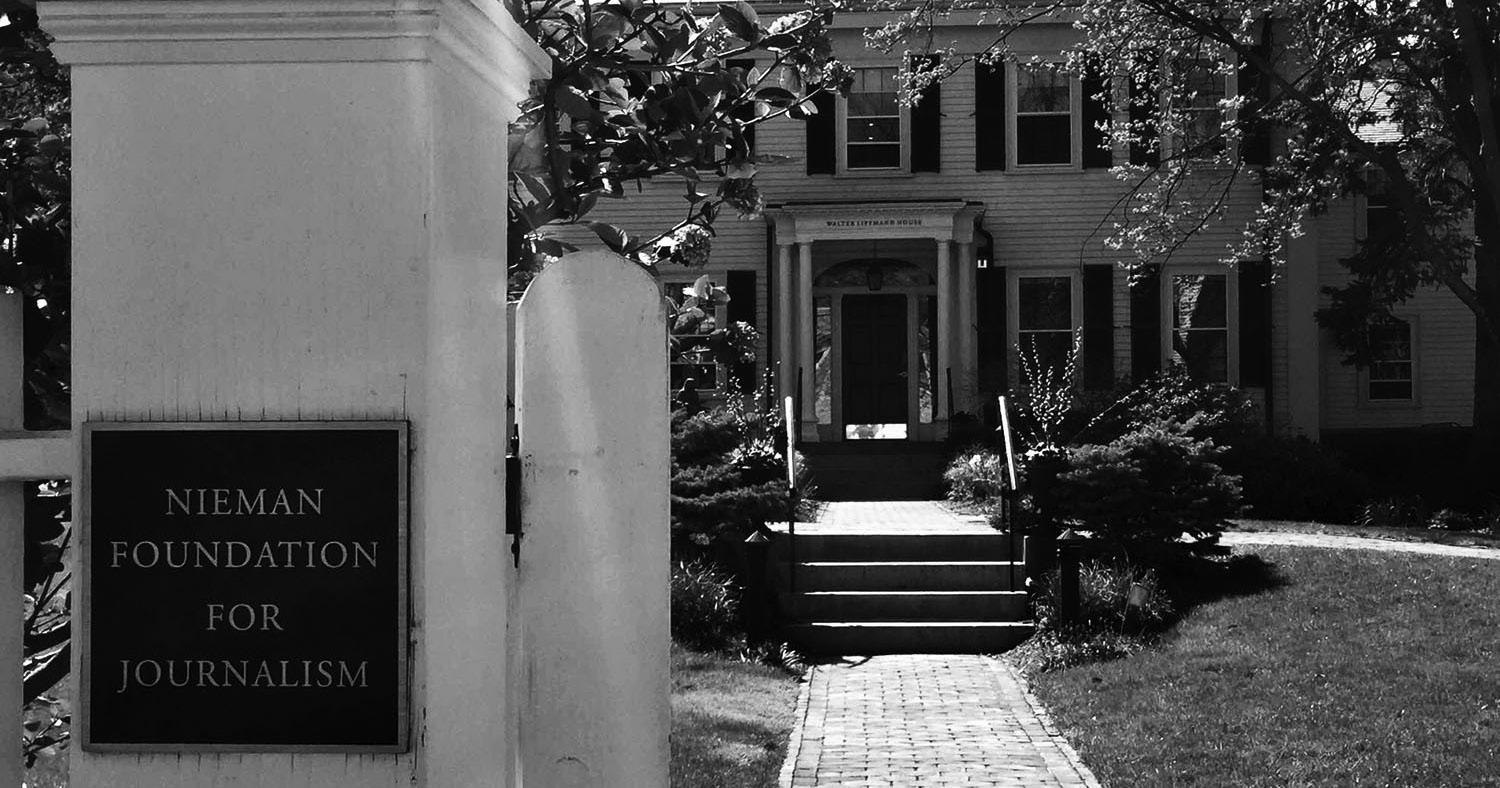
OCCUPIED. As the Yard encampment dragged on, administrators considered moving Commencement to Harvard Stadium.
BY JACK R. TRAPANICK CRIMSON STAFF WRITERHarvard’s administration considered moving Commencement to Harvard Stadium as the 20-day pro-Palestine encampment of Harvard Yard put the University’s annual graduation ceremony in jeopardy of being canceled.
Harvard spokesperson Ja -
son A. Newton wrote in a statement on May 15 that “the University routinely considers contingency planning for a variety of large events that may be disrupted by a host of factors, including weather.”
“This year, the annual contingency planning for commencement included a broader array of potential challenges and considerations, like the Harvard Stadium,” he wrote.
Harvard Out of Occupied Palestine, a coalition of pro-Palestine student groups staging the encampment, announced Tuesday morning that it struck a deal with interim Harvard President Alan M. Garber ’76 to end the occupation of Harvard Yard in exchange for a meeting with University leadership about Harvard’s endowment and the reinstatement of students who were placed on involuntary leave for their participation in the protest.
The peaceful end of the encampment will allow Commencement to proceed as

planned in Harvard Yard as graduates will get to fully experience the ceremony known as “Harvard’s oldest tradition.” Garber repeatedly signaled that the encampment staged by HOOP needed to end for Commencement to take place as planned in Tercentenary Theatre, the area of the Yard between Memorial Church and Widener Library. Garber wrote in a May 6 email about the encampment that “thousands of family members, friends, and loved ones
will soon join us to celebrate the achievements of graduate and undergraduate students who have earned the right to walk in Commencement.”
“The members of the Class of 2024 deserve to enjoy this milestone uninterrupted and unimpeded,” he wrote. “It would be especially painful if students who graduated from high school or college during the pandemic were denied a full graduation ceremony for a second time.”
The decision to draft contingency plans to potentially move
Commencement to Harvard Stadium signals that Garber may have been reluctant to take more drastic measures to end the encampment, like requesting a police response to end the protest, in order for the graduation ceremony to proceed normally in the Yard.
The national pro-Palestine student movement of staging encampments to protest ties to Israel led Columbia University and the University of Southern California to cancel or modify their graduation ceremonies.
Other universities have seen walkouts and disruptions during graduation speeches.
Members of the encampment moved several tents to Tercentenary Theater midway through its occupation in an effort to signal that the group was willing to disrupt the graduation ceremony. Protesters also chanted “No divestment, no Commencement” during rallies at the encampment.
The threat of a disrupted or canceled Commencement drew significant student backlash on
campus, including on Sidechat, an anonymous social media platform widely used by college students at Harvard. Newton wrote that the “tradition of degree conferrals taking place in Tercentenary Theater is one that thousands of students, their families and friends look forward to each year.”
“Our University community looks forward to this recognition of our graduates’ academic achievement next week,” he added.
jack.trapanick@thecrimson.com
More than 10 people declined offers to serve as the keynote speaker for Harvard College’s annual Class Day, leaving the Harvard Alumni Association scrambling to find a speaker with less than two weeks until the ceremony for undergraduate seniors.
The potential speakers declined for a variety of reasons, including an unwillingness to affiliate with Harvard during a year of controversy, scheduling conflicts, and high honorarium requests, according to Senior Class First Marshal Fez S. Zafar ’24.
“What was explained to us was that obviously this year is probably a rougher year for someone to affiliate themselves with Harvard, especially if they don’t have
an existing connection,” said Zafar, who will give remarks at Class Day, during a May 9 interview. A Harvard College spokesperson said that none of the speakers cited the ongoing controversy at the University for declining the offer to address students at the ceremony.
The spokesperson, however, did not deny that the Harvard Alumni Association — which is responsible for reaching out to candidates — has struggled to secure a keynote speaker.
“Class Day provides a wonderful opportunity to recognize our graduating seniors and to express gratitude for their contributions to Harvard and to all of the families, alumni, faculty, and staff who supported their success,” the spokesperson wrote. “We look forward to this year’s celebration.”
The HAA did not respond to a request for comment on May 9.
The hesitation to affiliate with Harvard comes after the University faced intense backlash over its initial response to Hamas’ Oct. 7 attack on Israel. The ongoing pro-Palestine encampment protest in Harvard Yard has also called into question the logistics of this year’s Commencement and Class Day ceremonies — which normally occur in Tercentenary Theatre, where protesters recently set up additional tents.
Last year, Harvard announced on May 5 that Larry Wilmore, an Emmy Award-winning television writer and comedian, would serve as the 2023 Class Day speaker. However, it is unclear when Wilmore agreed to give the ceremony’s keynote address.
Zafar said the Senior Class Committee is not the only Harvard group struggling to bring prominent speakers to campus.
“I’ve spoken with other orga-
nizations/groups this year, and I think they have also experienced the same thing,” Zafar said. “It’s just a constraint that we’re working within.”
The Senior Class Committee initially provided a list of 20 people to the HAA, but so far none of the candidates have agreed to speak at the event.
“We cannot confirm the list of speakers who have been asked in order to preserve confidentiality and the potential for future requests — and we do not share full details of who was asked and their responses,” a College spokesperson wrote in a statement.
The candidates on the Senior Class Committee’s initial list included Harvard dropout Matt Damon, a former member of the Class of 1992, 15-time NBA AllStar Shaquille O’Neal, former U.S. president Barack Obama, former First Lady Michelle Obama, and
Canadian rapper Drake. Damon, O’Neal, and Drake were contacted but declined the invitation to speak.
According to Zafar, the HAA has now reached out to several people beyond the original list, including former Massachusetts Governor Charlie D. Baker ’79, comedian Bill Burr, and Golden Globe-winning actors George Clooney and Arnold Schwarzenegger.
Some candidates, like Damon and O’Neal, cited specific conflicts in declining the invitation according to Zafar.
Zafar added that the senior class committee hoped to juxtapose the “more serious” speaker selection for the University’s 2024 Commencement ceremony, Nobel Prize-winning journalist Maria Ressa.
“We thought in order to try to make a good mix, assuming there’s going to be a more serious
speaker — which we ended up being right on — let’s try to have A-list celebrities/entertainers on the list,” Zafar said. Ressa’s selection drew mixed reactions from the Class of 2024, with some students contrasting the choice of the Nobel Peace Prize laureate with Tom Hanks, the Academy Award-winning actor who spoke at the 2023 Commencement ceremony.
Past Class Day speakers include U.S. President Joe Biden, who spoke in 2017, Boston Mayor Michelle Wu ’07, and former U.S. Vice President Al Gore ’69. Zafar said May 9 that he hoped the HAA can secure a speaker within the following five days, but the College spokesperson did not offer a specific timeline for the process.
azusa.lippit@thecrimson.com cam.srivastava@thecrimson.com
Graduate Students Union-United Auto Workers filed unfair labor practice charges against Harvard on May 15 with the National Labor Relations Board, alleging that the University’s response to the pro-Palestine encampment in Harvard Yard violated the rights of student workers. In an email sent to union members on May 15, the HGSU-UAW executive board accused Harvard of “discrimination” and “suppression of protected concerted activity.” The executive board wrote that by placing protesters on involuntary leaves — which are likely to be retracted now that the encampment has ended — the University left them without food and financial aid and put at least one union member at risk of deportation. In the filing, HGSU-UAW also accused Harvard of surveillance. On May 13, Harvard University Police Department officers entered the encampment and took pictures of protestors. “The way that we see it is any kind of disciplinary action leveled
at student workers that implicates their ability to work and their employment at the University as a student worker is a labor issue,” HGSU President Bailey A. Plaman said. Plaman alleged that Harvard also discriminated against workers by being “invested in the genocide in Gaza.” “This discriminates against and
creates a hostile work environment for Arab, Muslim, and especially Palestinian student workers,” Plaman said. “Student workers were disciplined for protesting these unfair and unsafe working conditions which we see as discrimination for exercising their right to protest which is protected by the NLRB, and discrimination for their polit-
ical beliefs, which are protected by our contract with the University.”
Harvard spokesperson Jason A. Newton wrote in a statement that the University had communicated to the union its position that unfair labor practices had not taken place.
“We do not believe participating in the encampment occupa-

tion that occurred in Harvard Yard is related to student worker working conditions and as such is not a protected activity under the NLRA or the parties’ collective bargaining agreement,” Newton wrote.
The involuntary leave notices, which were first delivered to students on May 10 and 11, came just days before all students — except those granted additional housing through Commencement — were required to be moved out of their Harvard campus housing for the summer.
Still, HGSU-UAW alleged that “involuntary leave directly impacts current and future employment.”
Involuntary leave operates parallel to any action taken by Harvard’s Administrative Boards — the primary disciplinary bodies of each of the University’s schools.
More than 60 students have been called before their respective Ad Boards, and interim Harvard
President Alan M. Garber ’76 announced that he would ask schools to “promptly initiate applicable reinstatement proceedings for all individuals who have been placed on involuntary leaves of absence.” HGSU-UAW leadership claimed that Harvard violated workers’ Weingarten rights by
denying students access to union representation during Administrative Board proceedings. According to the NLRB, Weingarten rights are “employees’ right to request their representatives” in investigatory meetings. Over the past year, HGSU-UAW has consistently organized around the war in Israel and Gaza. In November, the union endorsed national union statements in support of the Boycott, Divest, and Sanction movement. In March, HGSU-UAW’s general membership voted to endorse a letter circulated by the union’s BDS caucus that called on Harvard to “conduct an inquiry into investments in companies and ties with institutions profiting from the ongoing attacks in Gaza, to disclose these ties publicly, and to divest from them immediately.”
In a statement to The Crimson in early May, the HGSU-UAW Executive Board wrote, “We consider any organizing by student workers around these resolutions an exercise of concerted activity and mutual aid, which is federally protected by the National Labor Relations Act.”
aran.sonnad-joshi@thecrimson.com
INVESTIGATION. A House committee released its first report on antisemitism at Harvard under Claudine Gay.
BY EMMA H. HAIDAR AND CAM E. KETTLES CRIMSON STAFF WRITERSThe House Committee on Education and the Workforce released a 42-page report last week that detailed an internal battle between former Harvard President Claudine Gay and the antisemitism advisory group she established in the wake of Hamas’ Oct. 7 attack on Israel.
The report, released as part of the committee’s investigation into Harvard, revealed that five of the advisory group’s eight members threatened to resign en masse less than 10 days after Gay announced the group’s formation.
“The goals and steps outlined in the document are meaningful recommendations that would have had a substantial impact on Harvard’s antisemitism problem had they been implemented,” the report stated. “Unfortunately, Harvard’s leaders failed to follow the roadmap drawn for them by their own chosen experts.”
Harvard spokesperson Jason A. Newton criticized the committee’s report as “an incomplete and inaccurate view of Harvard’s overall efforts to combat antisemitism last fall and in the months since.”
“It is disappointing to see selective excerpts from internal documents, shared in good faith, released in this manner,” Newton wrote. “Harvard has demonstrated its focus and commitment and attentiveness to combating antisemitism, and these efforts are reflected in the many voluminous submissions to the committee.”
The report relied heavily on submissions to the committee from the University, which included the previously unreleased recommendations from Gay’s advisory group, and a transcribed interview with Dara Horn ’99, a member of the group.
While the committee’s report comes more than four months after Gay’s resignation, interim University President Alan M. Garber ’76 emerged relatively unscathed. While Horn expressed
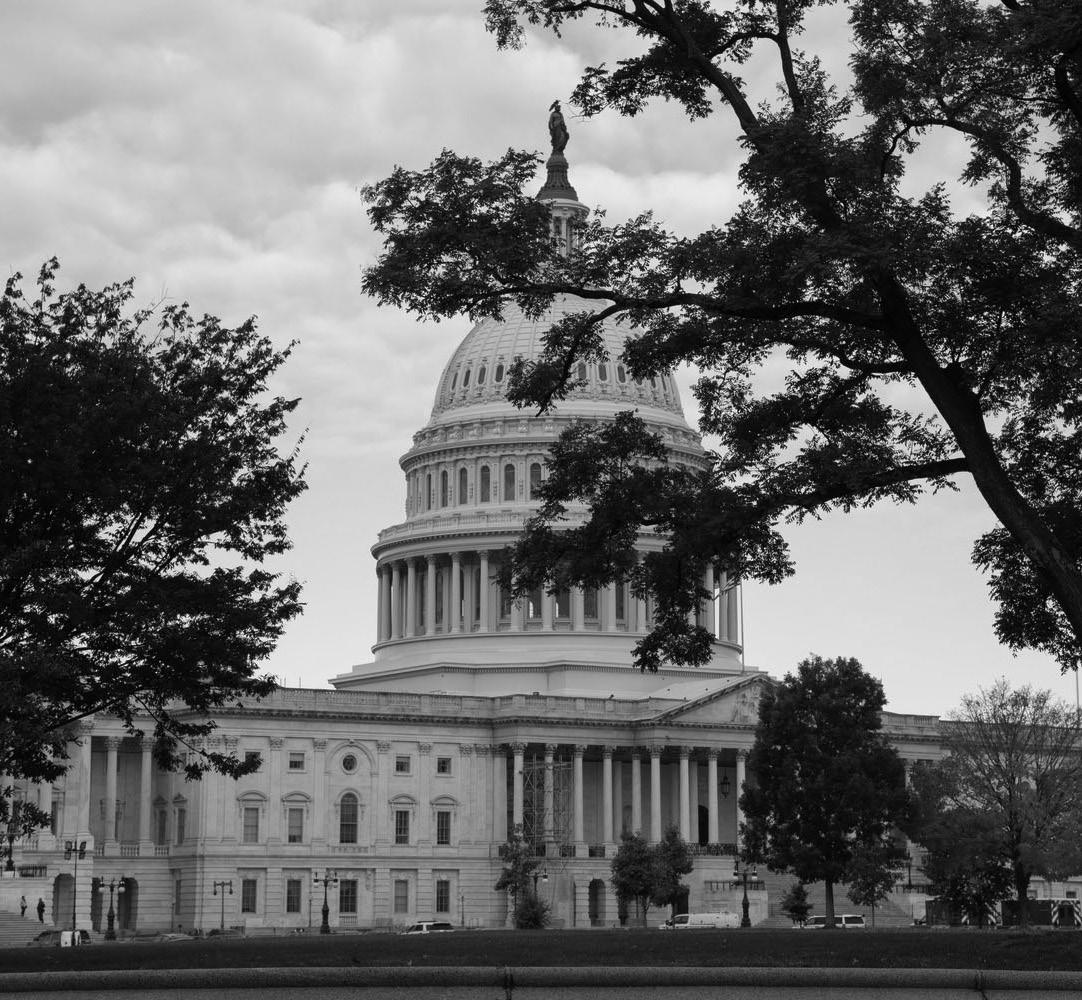
frustration with the formation of Garber’s task forces to combat antisemitism and anti-Muslim and anti-Arab bias, the committee report almost entirely focused on Gay and her response to the advisory group’s recommendations. Gay did not respond to a request for comment for this article.
The resignation warning, sent on Nov. 5, included a series of ultimatums from the five members who demanded that Gay publicly condemn certain slogans chanted by pro-Palestine student protesters, ban masked protests on campus, and launch a confidential investigation into the Har-
vard Medical School’s dean of students for allegedly not confronting antisemitism at an event he attended.
The threat, alongside the series of demands, prompted Gay and Harvard Corporation Senior Fellow Penny S. Pritzker ’81 to call an emergency meeting with the advisory group on Nov. 6, in which Gay sought to persuade the group to not resign en masse.
“Areas of common ground have come attached with an ultimatum, one that if interpreted literally leaves me with 24 hours and puts me and the University in a terrible position,” Gay told the group, according to a transcrip -
tion of the meeting published in the committee’s report.
“You serving is to be helpful, and you’re trying to be helpful; resigning en masse if you don’t get these things in 48 hours would be explosive, and would make things even more volatile and unsafe,” she added.
Gay, however, made clear concessions to the group following the emergency meeting.
Just three days after the emergency meeting, Gay sent a University-wide email that explicitly condemned the use of the phrase “from the river to the sea” by pro-Palestine protesters and announced the University would
implement antisemitism training and education for Harvard affiliates.
Members of the group were also frustrated that the scope of their responsibilities remained vague, weeks into the formation of the task force. At the Nov. 6 meeting, Gay told the group she apologized for “not giving you my time that you deserved” and for “thrusting” the advisory group into the roles “before they were defined, staffed, and supported,” according to the meeting minutes.
Horn said that the advisory group soon began to hear from many Jewish students reporting
As the pro-Palestine Harvard Yard encampment raged on at the end of the spring semester, students and administrators were locked in a 20day standoff punctuated by involuntary leave notices and followed by disciplinary sanctions. On May 10, more than two weeks after the encampment began, Harvard placed at least 22 students on involuntary leaves of absence. When the encampment ended peacefully just days later, the students were reinstated and offered a
meeting with a member of the Harvard Corporation, the University’s highest governing body. Just one week later, the Harvard College Administrative Board suspended five students and placed more than 20 more on probation for their participation in the demonstration. According to pro-Palestine organizers, at least 12 seniors will be prevented from receiving their diplomas at Thursday’s Commencement ceremonies as a result of the disciplinary action.
What Are Involuntary Leaves of Absence?
Though the involuntary leaves
of absence notices and Ad Board sanctions both came in light of the pro-Palestine Yard encampment, the processes operated in parallel.
The decision to place undergraduates on involuntary leaves of absence is made by Dean of Students Thomas Dunne in consultation with the students’ resident dean and other administrators.
While the involuntary leave of absence is not itself a disciplinary sanction, “an incident that gives rise to a leave of absence, whether voluntary or involuntary, may subsequently be the basis for disciplinary action,” according to the Harvard College Handbook.
If a student has “allegedly violat-
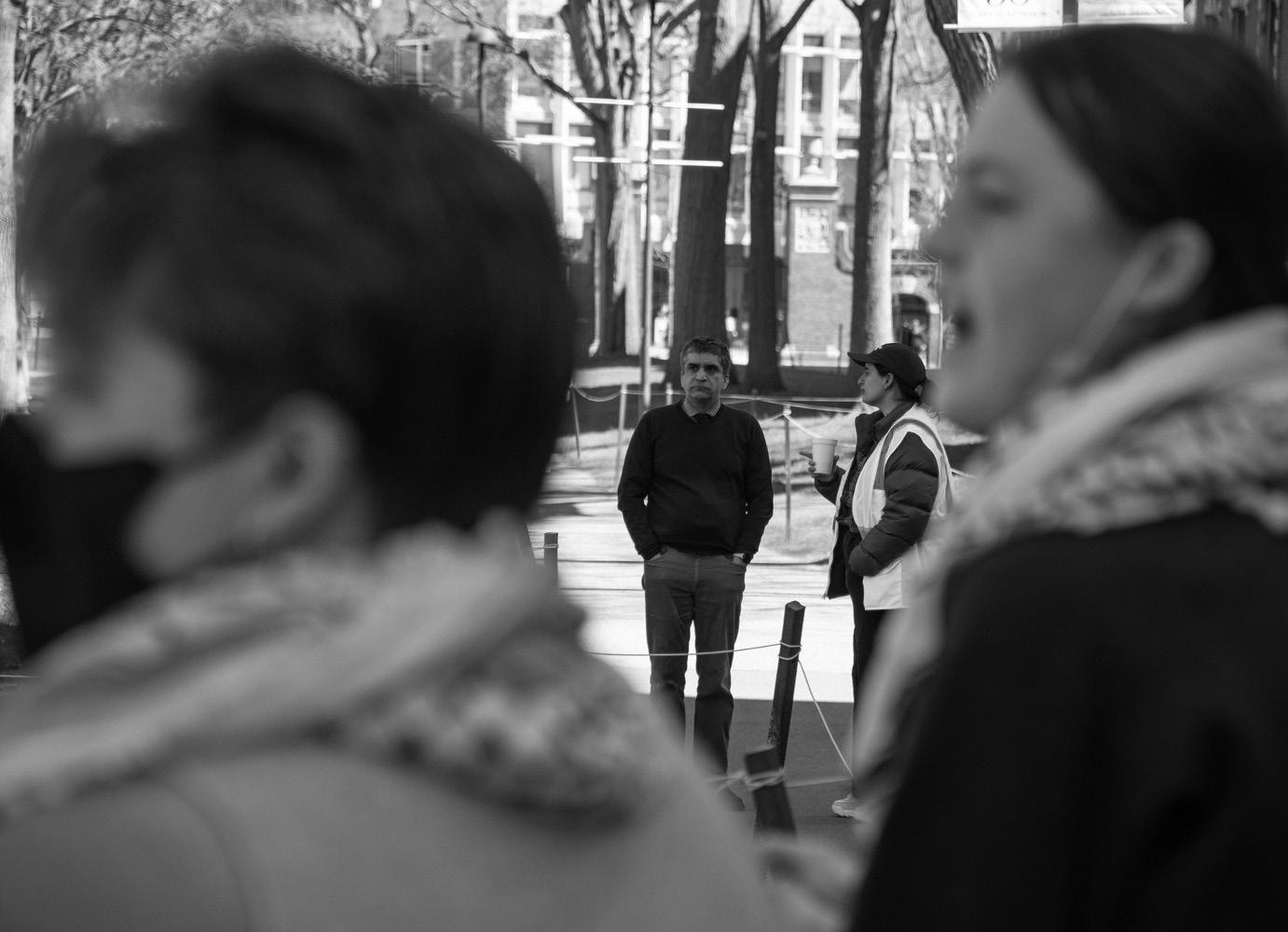
ed a disciplinary rule of the College and the student’s presence on campus poses a significant risk to the educational environment” — the reasoning presented on involuntary leave notices sent to undergraduates participating in the encampment — they may be placed on leave. Students are able to appeal the decision with a committee comprising College and University administrators and chaired by Dean of the College Rakesh Khurana. As degree candidates, undergraduates on involuntary leave are still “expected to maintain a satisfactory standard of conduct,” according to the handbook.
Despite interim Harvard President Alan M. Garber ’76 requesting school deans to rescind the involuntary leave notices following the peaceful dispersal of the encampment, the more than 60 proceedings before the Ad Board remained ongoing.
The Harvard College Ad Board — the body responsible for enforcing the College’s rules and policies — specifically handles disciplinary cases related to student conduct, as well as the College’s plagiarism policies and academic requirements. It is composed of two committees: the Disciplinary Committee and the Petitions Committee.
Chaired by Khurana, the Disciplinary Committee consists of Dean of Student Services Michael Burke, Associate Dean of Students Lauren E. Brandt ’01, Senior Assistant Dean of Residential Life and First-Year Students Nekesa C. Straker, Assistant Dean and Secretary of the Honor Council Qussay Al-Attabi, Assistant Dean for Undergraduate Education Meghan Lockwood,
and several resident deans and lecturers and preceptors in the Faculty of Arts and Sciences. The Petitions Committee is chaired by Burke and includes Associate Dean of Academic Integrity and Student Conduct William Petrick; FAS Registrar Erika McDonald; Associate Dean of Undergraduate Education, Academic Programs and Policy Gillian B. Pierce ’88; and several resident deans.
Garber and FAS Dean Hopi E. Hoekstra also serve as ex-officio members of the Ad Board.
Both committees are also permitted to invite non-voting guests — including Resident Deans and representatives from Harvard University Health Services, the Disability Access Office, Athletics, Title IX, and more — to its meetings to serve as advisers on student welfare or records.
How Are Ad Board Cases Handled?
When a disciplinary case begins with a complaint made by a University official such as administrative staff or faculty, the case is a non-peer dispute and can result in a range of outcomes — from the Board deciding to take no action, to a requirement to withdraw, to a recommendation for permanent expulsion from Harvard.
Students are asked to withdraw — usually for two to four semesters — when the Ad Board rules their conduct “unacceptable” and decides the student must leave the College “in order to gain perspective on their actions, or to address and resolve any difficulties.”
In all instances when a student is required to withdraw, the Ad Board requires that they hold a full-
instances of antisemitism, but lacked clear direction from Gay and the administration.
The advisory group reported that there were Jewish students who said they were afraid to eat in Harvard dining halls, followed home and harassed, and at least one who had been spat on for wearing a yarmulke.
Some of the report’s harshest criticisms of the University stem from the Harvard administrators allegedly not implementing the advisory group’s recommendations.
Newton wrote that Harvard’s “community and campus are different today because of the actions we have taken, and continue to take, to combat hate and to promote and nurture civil dialogue and respectful engagement.”
“Harvard has and will continue to be unequivocal – in our words and actions – that antisemitism is not and will not be tolerated on our campus,” he added.
The advisory group’s recommendations included reevaluating the Office for Equity, Diversity, Inclusion, and Belonging and “investigating the potential influence of ‘dark money’ from Iran, Qatar and associates of terrorist groups on campus.”
A member of the advisory group was concerned that the organization American Muslims for Palestine – which they characterized as an entity “linked to terror finance” – funded the “PalTrek” that brought Harvard affiliates to visit the West Bank and “was involved” in the Arab Conference at Harvard in April. Garber said that the Office of the General Counsel would look into the funding and the OGC later reported “no issues were identified.”
The committee did not specify how Congress will proceed with its investigation of antisemitism at Harvard and other college campuses, but the report indicated that the committee is not done with Harvard just yet.
“The Committee will continue investigating the activities happening on campus at Harvard and at other universities, including the responses by university administrations to recent unlawful campus encampments,” the committee wrote.
time, paid, non-academic job in a non-family situation for at least six consecutive months before petitioning for readmission to the College, which can only be granted by a full vote by the Ad Board. For many protesters, the Ad Board sanctions on protesters — particularly in denying more than a dozen seniors the ability to graduate — marked an excessively harsh punishment at odds with Garber’s messaging to organizers and affiliates. In his May 14 University-wide message announcing the end of the encampment, Garber wrote that he will ask disciplinary boards within each school to evaluate the cases “expeditiously” and “according to their existing practices and precedents.”
Garber also wrote an email to encampment organizers that the University would encourage the Ad Boards to take “into account the voluntary decision to leave the encampment, for all students,” including those “eligible thereafter to graduate.”
Though Garber’s emails do not explicitly grant clemency to Harvard College seniors, organizers seemed to interpret the emails as such. In the wake of the Ad Board sanctions, Harvard Out of Occupied Palestine — the unrecognized student organization that staged the encampment — organized an emergency Sunday rally. Several student organizations have also released statements condemning the disciplinary action, circulating a petition to allow seniors to graduate that has garnered more than 1,000 signatures.







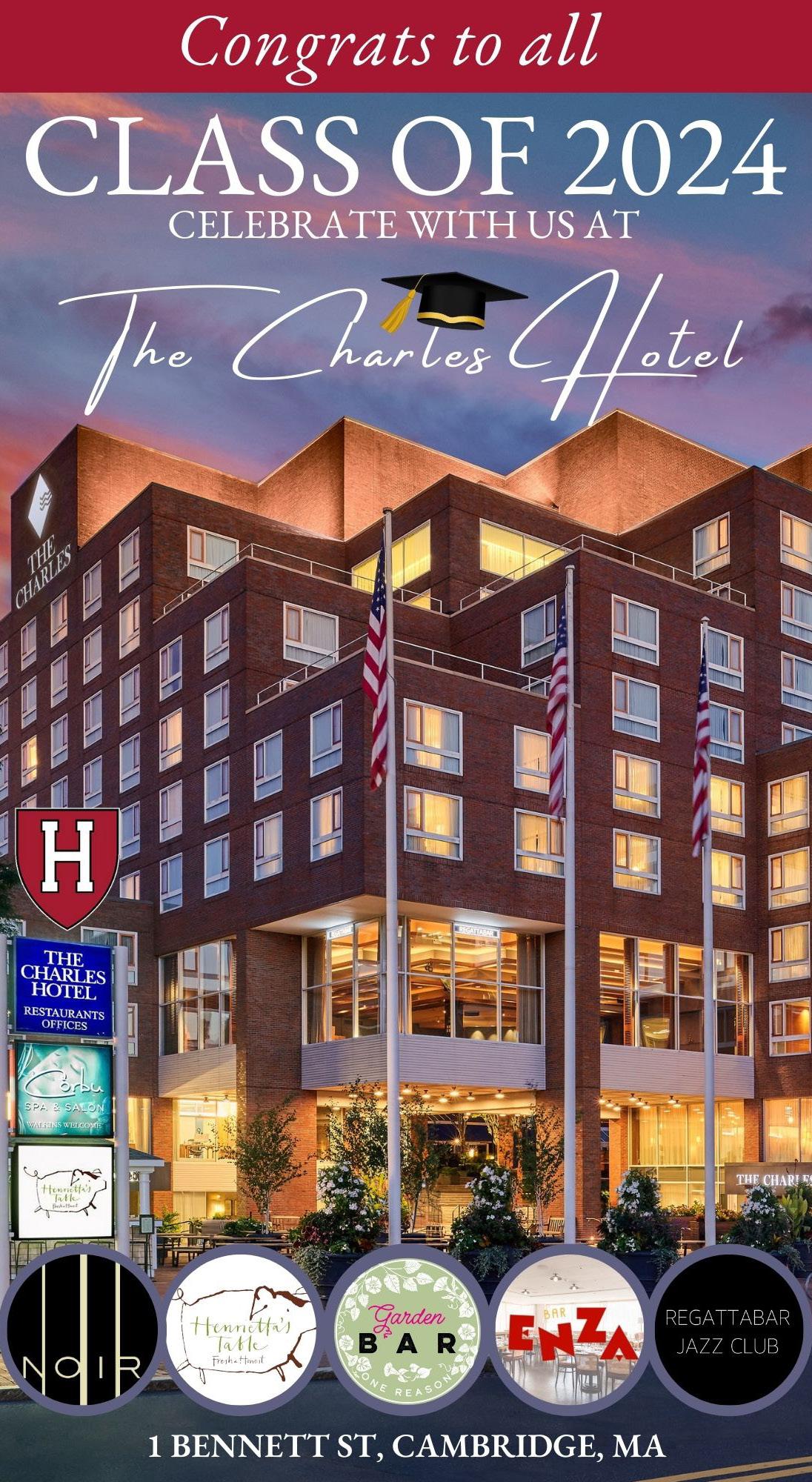


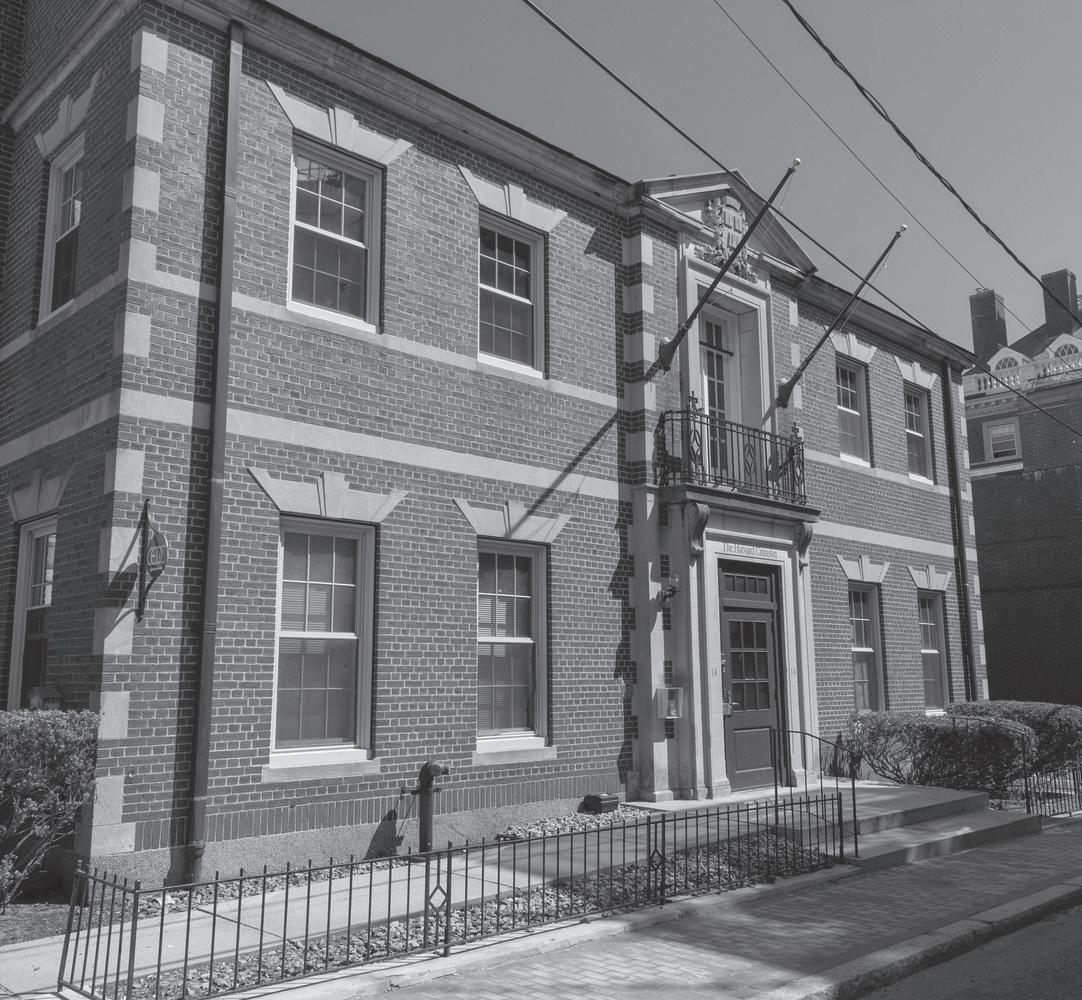
OP-ED
DÉJÀ VU. It falls to the University and its community to resist threats to free speech.
This week, it failed.
BY RAQUEL CORONELL URIBEClass of 2024, as we gather today to celebrate our graduation, look around.
When you see the empty seats near you, remember the members of our class not graduating with us. Namely, remember those who will not do so because they were punished this week — in flagrant disregard of decades of University precedent — for peacefully and civilly exercising their right to free speech.
This follows nearly an entire school year of doxxing and harassment aimed at harming and intimidating pro-Palestine students. As my peers faced the most intense outrage the digital age has to offer, many felt shock.
I felt déjà vu. In April 2022, while I served as president of The Crimson, the Editorial Board endorsed the Boycott, Divestment, Sanctions movement, which calls for institutions to cut ties with Israel over its treatment of Palestinians.
The editorial met with backlash more swift and intense than I could possibly have imagined.
In the days and weeks that followed, we were lambasted by some of Harvard’s most prominent faculty members. Many of them, including a former University president, sought to strongarm the newspaper out of its editorial autonomy, calling (ironically) for a boycott of the newspaper. Senators, the Anti-Defamation League, and a host of social media pundits excoriated the editorial. But that’s just what was public. Behind the scenes, as the organization’s president, I received some of the most vile messages you could imagine.
One message hoped that my children would one day suffer; that my parents would succumb to Alzheimer’s and forget my name; that I would die a slow and painful death. Another called me an antisemite and compared me to Hitler, promising to “make justice” should its sender be near me. I received hundreds of these messages over a period of weeks. At first, harassed online and facing sharp criticism from some of Harvard’s most powerful people — many, my role models — I felt panic. It was like drinking from a firehose. Before long, to endure, I became numb. I don’t know which was worse. Others faced similar treatment. Members of the Editorial Board were harassed on social media, their personal information posted on the doxxing site Canary Mission. I was told the threats and harassment became so intense that the University — unprompted — felt it necessary to increase University police presence near The Crimson’s building.
Many of the people denouncing the editorial felt that it was antisemitic. As a Jew whose family has been chased out of its home country for centuries, I understand.
Three days ago, I attended the graduation ceremony for Jewish students. For my first two years at Harvard, I was at Hillel almost every week — to study, socialize, eat Shabbat dinner, and attend events. My penultimate piece as a reporter for The Crimson investigated the University’s failure to provide hot lunch to Kosher students.
I understand the discomfort that many Jewish people feel when they think of BDS. As Crimson president two years ago, I did not personally agree with the Editorial Board’s choice to unequivocally endorse it. It is because of my family and my cultural tradition that I can empathize with the outrage that caused many at The Crimson to be doxxed and harassed, that brought me death threats and the worst months of my life.
But it is also because of my family — journalists driven out of Colombia for holding power to

account, the people that have inspired me to become a journalist — that I feel compelled to defend the student press and denounce their attackers, even when I disagree. Both a free press and freedom of speech are integral to a healthy university: Freedom of speech because it can push inquiry forward; freedom of the press because it can hold the structures of power at the university to account.
It seems nearly everyone at Harvard, regardless of their social and political views, claims to agree. But in the months after the BDS editorial, I watched many of the prominent Harvard affiliates who most vocally advocate for free expression fan the flames of a firestorm against The Crimson and myself. A year and a half later, I watched in horror as many of the same people prosecuted an even more vicious campaign of harassment against my peers. Each day, it felt like I was reliving a small piece of those weeks of hell — every story about harassment, doxxing, or death threats made my heart beat faster. I felt echoes of panic I hadn’t felt in two years.
Theoretically, sharp criticism of students’ speech is essential for healthy campus discourse.
Much as it’s caused me pain, I believe it’s permissible for campus public figures to dedicate their substantial resources to denouncing, blacklisting, or calling for the boycott of the student press. Punching down is free speech too.
But these figures should know what they do. They should know that their actions and the outside pressure they attract make this campus hostile to both freedom of the press and freedom of speech — values they often claim to champion.
In part because of their action, it is increasingly the case that students — journalists and not — cannot engage with one another, with their professors, or with the relevant issues on their campus without fear of public shaming or professional retaliation. Influential campus figures who should be seeking to create a healthy, safe campus environment have instead created one that can frankly be called McCarthyist.
As I watch dozens of my peers face harsh sanctions for peaceful protest that has historically faced almost none, it is apparent to me that the pressure created by influential figures — insiders and outsiders alike — significantly impacts how the school treats its students.
Witnessing the College’s erroneous suspension of a Crimson reporter for proximity to the encampment, I struggle to believe the University has not folded to pressure to impose discipline this draconian, unfair, and overinclusive.
Harvard boasts of a long, proud history of its graduates pushing forward the freedoms of this nation, including freedoms essential to the project of higher education. Now, outside actors pose an existential threat to the meaningful enjoyment of those freedoms. It falls to the University and its community to resist them. With this past week’s suspensions, it has failed.
At Commencement today, we will listen to a speech from Maria Ressa, a pioneering journalist who won the Nobel Peace Prize for shedding light on the injustices perpetrated by undemocratic regimes. It will be a celebration of the essential importance of democratic freedoms — of speech, of the academy, of the press. It is a sad irony that the Class of 2024 will not hear it together because, when push came to shove, Harvard failed to protect those very rights.
– Raquel Coronell Uribe ’22-’24, a former Crimson President, is a History and Literature concentrator in Dunster House.
DIFFERENT PATH. Like many students from my background, Harvard presented a sea of firsts, a total transformation. Four years later, I have found the freedom I thought Harvard would offer, but not in the ways one would think.
BY SYD D. SANDERSIcame to Harvard proclaiming that I wanted to become a senator. Today, I stand on the brink of a graduation in which I will no longer walk, suspended and looking forward to a life of community organizing.
I grew up trans in rural Maine, working in kitchens and painting houses. I’ve come face to face with the law, moved away from home at 16. Where I’m from, going to college is not a given and leaving the state is uncommon.
But in the spring of 2020, living out of a garage loft without running water, I became one of the first openly trans valedictorians in the country and the first person from my high school to get into Harvard.
Like many students from my background, Harvard presented a sea of firsts, a total transformation of my circumstances and opportunities. I will always remember driving to college for the first time: Crossing over the big bridge between Maine and New Hampshire — overwhelmed by hope, fear, and an unimaginable life ahead, I began to cry. I was finally free.
Four years later, I have found the freedom I thought Harvard would offer, but not in the ways one would think.
I came to Harvard wanting to make the world a better place through progressive politics. I studied Government and served on the board of the Harvard College Democrats. I lobbied government officials and interned on campaigns and in state senators’ offices. I tried to work within the system, unaware of and unexposed to another way.
Everything changed my sophomore year, when Covid-19 restrictions fell away and campus organizing raged back to life. In 2021, amidst the Harvard Graduate Students Union strike — in which hundreds of graduate students went on strike in an effort to win higher wages, a union shop, and real recourse for survivors — I joined the Student Labor Action Movement and learned just what people power could do.
Never had I felt so much potential for change as I did surrounded by masses of protestors and organizers fighting for justice. That year, I learned that real change does not come from working within the confines of institutions like this school or our government, but from hitting the streets and dismantling those very institutions from the outside in.
Since then, I have continued to fight for labor rights with SLAM and the Harvard Undergraduate Workers Union; protested this University’s moral and material complicity in occupation and genocide with the Harvard Undergraduate Palestine Solidarity Committee and the Harvard Out of Occupied Palestine coalition; resisted rape culture with the Harvard Feminist Coalition; and called for Harvard to divest its $50 billion endowment from the prison-industrial complex with the Harvard Prison Divestment Coalition.
These fights have revealed that the portrait

Harvard paints of itself as an institution dedicated to justice and social good is nothing more than that — a portrait, a facade. This university professes to educate, protect, and transform its students, but in truth, it union-busts; weaponizes housing and food against student workers and organizers; expends resources to support professors found to have violated its own Title IX policies; upholds empire, exploitation, apartheid, and genocide on a global scale; and disciplines the students and workers who speak out against these injustices.
Just this past month, as I built the Liberated Zone — Harvard’s pro-Palestine encampment — with my peers, I watched the administration turn the Yard into a surveillance state. I saw supplies and supporters kept outside the gates and was one of dozens put through disciplinary processes and placed on involuntary leave — functionally evicted, forced off meal plans, and fired from campus jobs — for peaceful protest. Throughout my time here, I have come to learn that Harvard does not stand for its students or the more just world I came here hoping to build. It is the antithesis of that world.
But as I learned of Harvard’s injustice, I also learned how to organize — and, in doing so, learned what the path towards liberation looks like. What moves the world closer to justice and joy is not Harvard, but the organizers I have met here, who have taught me, shaped me, and led me to the work I want to do.
I didn’t learn these things in a classroom, during an internship, or from a speaker event. I learned them from the incredible community of organizers who see through Harvard’s lies and have dedicated their lives to righting the University’s wrongs. I gained this compass for liberation on the streets, at rallies and teach-ins, in the basement of University Hall, and from the encampment in the Yard.
Commencement is a celebration of graduating students and their accomplishments, an event that functions as a laudatory salute to Harvard itself. There is a sour dissonance in that fact that The Crimson’s Editorial Board has asked me to write this op-ed as a “notable senior” reflecting on graduation while Harvard withholds my degree until May of 2026 for fighting its investments in genocide in Palestine. I refuse to give Harvard the pat on the back that it craves.
I sit here writing this with a middle finger raised to Harvard and the systems of oppression it perpetuates and depends on — and with so much love in my heart for my organizer peers and the liberated world we fight for.
I don’t know when I will graduate, I don’t know what my next few days will look like, but one thing is for certain: I know we will never stop.
–Syd D. Sanders ’24 is a joint concentrator in Government and Women, Gender, and Sexuality Studies in Kirkland House.
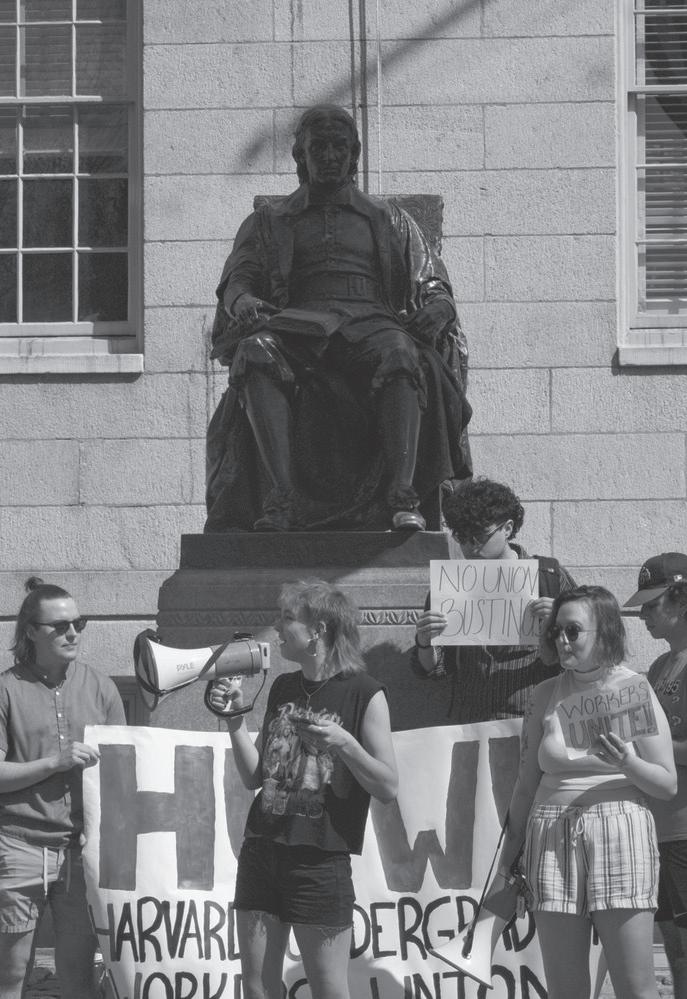

SPEECH PROBLEM. Free speech challenges us. It demands we tolerate that which we hate, encounter that which we fear. But fickle as free speech may be, we can’t have a university any other way.
BY THE CRIMSON EDITORIAL BOARDYou’ve probably seen — in think pieces and congressional hearings, social media posts and interviews — that Harvard has a free speech problem.
On one hand, this panic is a good thing. Free speech and open inquiry are the heart of a healthy university, and they face real, serious problems at Harvard that will not be solved without buy-in from faculty and students.
On the other, buy-in alone doesn’t suffice. When Harvard’s defenders of free speech advocate for conceptions of free speech that are halfformed or inconsistent, they waste the will to make progress on prescriptions unfit to solve the problem — or that make it worse.
It was the crises of the past year that made free speech a hot topic, laying bare long-standing tensions over its place at Harvard.
In the last year, administrators responded to an international geopolitical crisis with statements that satisfied nobody; a former University president delivered testimony to a Congress intent on her public humiliation; and pro-Palestinian protesters — accused of antisemitism and subjected to harsh online harassment — tested the limits of Harvard’s time, place, and manner restrictions on campus demonstrations.
Throughout this semester and last we have gathered as an Editorial Board to make sense of these controversies in real time, to debate and disagree openly about issues of fundamental importance to many of us.
Since Oct. 7, few on each side of the issue have engaged in discussion with those on the other. On our Board, which counts among its number some of Harvard’s most prominent pro-Palestinian and pro-Israel students, it happens three times a week.
We live the debates about free speech, academic freedom, and open discourse prosecuted in the pages of the New York Times, the feeds of social media, and the halls of Congress. Here’s what we’ve learned from a year defined by contests over free speech — and how what you’d typically read about it gets it wrong.
Institutional Neutrality, Now Let’s start at the beginning, the first misstep that snowballed into the University’s leadership crisis.
On Oct. 7, the Harvard Undergraduate Palestine Solidarity Committee penned a statement cosigned by 33 other student organizations holding Israel “entirely responsible” for the massacre.
Thus began the storm. Prominent Harvard affiliates like former University President Lawrence H. Summers and Rep. Elise M. Stefanik ’06 (R-N.Y.) condemned the PSC’s statement, launching a tidal wave of outrage and online harassment. Maybe — just maybe — that could have been the end. Harvard’s response ensured it would not be. Days after the massacre and the PSC statement, the University released the first of what would be -
come a barrage of mealy-mouthed public pronouncements. For some they were too late; for others they were unnecessary. For some they were too forceful; for others, too message-tested. Statement after statement hit our inboxes leaving no one better off as a result.
The root of the problem isn’t the stance that the University staked out (though it had its flaws) — it’s that Harvard had created the expectation that it would take an official position at all.
These statements didn’t make students safer.
They didn’t quell campus tensions. They obviously didn’t advance a peaceful resolution to the Israel-Palestine conflict. So what are official University proclamations on social and political issues good for? We’ve realized the answer is next to nothing.
In fact, they do harm. As a matter of principle, it’s improper for institutions dedicated to open inquiry to declare an institutional orthodoxy on controversial issues; as a practical matter, it’s immensely destabilizing.
For years, this instability remained hidden.
The University made statements about George Floyd’s murder, Jan. 6, and Russia’s invasion of Ukraine — all causes unlikely to occasion outrage on a considerably liberal campus.
With Oct. 7, the unsustainability of that approach became apparent. For the first time in recent memory, Harvard faced pressure to make statements on an issue with significant campus constituencies on either side. Yes, the University bungled the statements it did make, but it’s unlikely that any statement could have placated two groups with positions so incompatible.
Before the next divisive campus issue comes around, Harvard needs to end the expectation that it will make public statements that hit exactly the right note on social and political issues.
A commitment to institutional neutrality cannot, however, become an excuse for its conduct in areas where it can never be neutral. When it comes to the endowment, the choice to invest in fossil fuels or weapons manufacturers is just that — a choice, made on the basis of subjective, non-neutral judgments.
Harassment Goes Digital
Official statements and sanctions have loomed large in conversations about free speech at Harvard, but at least as often, the threat has come from personal, private action.
On Oct. 11, a truck adorned with a glowing billboard paraded the names and faces of students — our classmates — allegedly associated with organizations that co-signed the PSC statement, labeling them “Harvard’s leading antisemites.”
Many of those students were harassed online. Others had the “doxxing truck” visit their hometown. Some received death threats.
While students entrusted to their care and cultivation endured some of the worst, most terrifying days of their life, several of Harvard’s most prominent faculty members piled on.
On Oct. 9, former University President Lawrence H. Summers released a string of posts on X blasting the student groups affiliated with the PSC statement and the University for failing to condemn it. Even after he disavowed the attacks on students in an Oct. 11 post, Summers continued,
for weeks, to lambast the University for its failures to decisively reject antisemitism, feeding the outrage that was causing students such anguish.
For some, perhaps this met the standard for effective open inquiry. When one is faced with a disagreeable view, one should voice that disagreement. Speech meets counterspeech.
Maybe that model worked before the internet placed Harvard before the watchful eyes of the world, allowing local controversies to become global outrage. Maybe it still works, when an issue is unlikely to elicit such outrage.
But when Harvard is mired in controversy and internet-enabled bullying and harassment rage, it’s clear that publicly airing grievances throws gasoline on the fire, drawing outside criticism that intimidates would-be speakers and toxifies campus discourse.
High-profile affiliates — professors, in particular — must know better. When you take on the pastoral role of professor, caring for students and guiding them to be better is part of the job description.
Professors should treat objectionable speech as an opportunity to teach and learn. When they take to X instead, they don’t just inflict pain on their students — they waste a valuable opportunity to correct the half-baked ideas often contained in the speech they oppose. Instead, we should all seek opportunities to engage in ways that don’t invite outside agitators in: Send private letters, seek out in-person conversations, convene debates, teach-ins, and meetings.
A healthy speech environment involves counterspeech, but certain modes of counterspeech can weaken the University’s speech culture. By being more mindful of our online presence — and bringing speech offline wherever possible — we can engage in counterspeech without attracting outside agitators.
Half-Truths and Ad Hominems
If your only engagement with Harvard in the past year had been cable news reports and congressional press releases, you might be justified in believing that Harvard is a hotbed of deep seated antisemitism.
If you spent the last year living on campus, that claim is harder to take at face value.
Like all communities, Harvard has its share of problems. There’s no denying that hate has reared its ugly head on our campus this semester. The causes range from ignorance and thoughtlessness to a dearth of empathy, and it’s entirely possible that a handful of students here really are antisemitic.
But our campus climate should not be measured by its worst acts. The overwhelming majority of our classmates are not antisemitic, even if we take issue with the inflammatory and insensitive rhetoric they have at times employed. Likewise, the encampment was not especially disruptive or remotely dangerous, even if it may have involved objectionable conduct or speech.
This lesson generalizes beyond the pro-Palestinian protesters. In an environment where any claim about Harvard can go viral in a matter of minutes, we must be able to disagree without immediately resorting to ad hominem attacks that cast our fellow students in the worst light.
Those who seek to criticize the University itself should abide by a similar standard. In recent months, many prominent Harvard affiliates have castigated the institution’s diversity, equity, and inclusion offices as a lead threat to free speech on campus. That view rests on a fundamental misconception about the role of DEI: There is no DEI behemoth governing Harvard from the shadows. Harvard’s DEI offices mostly provide concrete services, organizing events and coordinating resources to support students facing difficulties related in some way to their identity. Certainly, there is no truth to the narrative that these low-level administrators hand-picked former University President Claudine Gay — who got the job over hundreds of other candidates, including many talented people of color — as a “DEI hire.”
This is not to say that the critics don’t have a point. Many use the term DEI to denote a culture of sensitivity and censoriousness that does, in some measure, exist. But using the term carelessly does nobody a service, spreading misinformation about how Harvard operates while directing unearned ire at the DEI administrators working hard to do work valuable to many students.
The Future of Free Speech
The more it’s discussed, it feels, the less “free speech” means. Groups and individuals at Harvard and beyond deploy it for a host of purposes and with a host of intended meanings. In this cacophonous discourse, it can be hard to tell what’s real and what’s just noise. Viewed together, though, the questions about free speech raised in the course of the last year offer an indication of how Harvard might proceed: by recommitting to collective responsibility for the speech environment that defines the teaching and learning on this campus. We create the culture within which Harvard feels compelled to make statements on social and political issues; professors feel compelled to lambast their students to an audience of millions; and students on one side feel compelled to malign the character and intentions of the students on the other. No matter what policies change at Harvard, until we change that culture, free speech will remain in peril. So listen closely to what fellow members of the University community say. Receive it with patience and kindness — in good faith. Consider where, when, and how to respond. And be cautious of giving faraway observers the opportunity to misconstrue what happens here. Free speech challenges us. It demands we tolerate that which we hate, encounter that which we fear. But if this Editorial Board emerges from a year of arguing about free speech sure of anything, it’s this: Fickle as free speech may be, we can’t have a university any other way.
– This staff editorial solely represents the majority view of The Crimson Editorial Board. It is the product of discussions at regular Editorial Board meetings. In order to ensure the impartiality of our journalism, Crimson editors who choose to opine and vote at these meetings are not involved in the reporting of articles on similar topics.

Use code CRIMSON to take $50 o your first week of locally-prepared meals delivered to your door—our graduation gift to you.

Success starts with the right fit.

 SCAN HERE FOR GIVEAWAY
SCAN HERE FOR GIVEAWAY

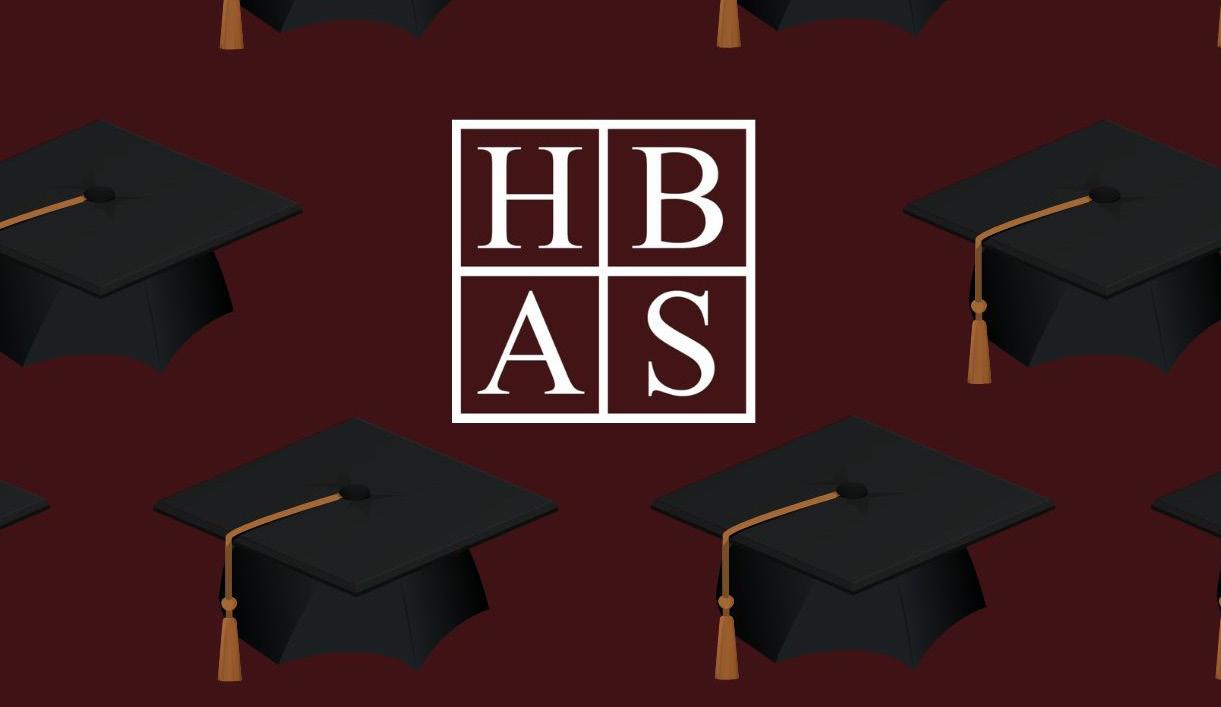
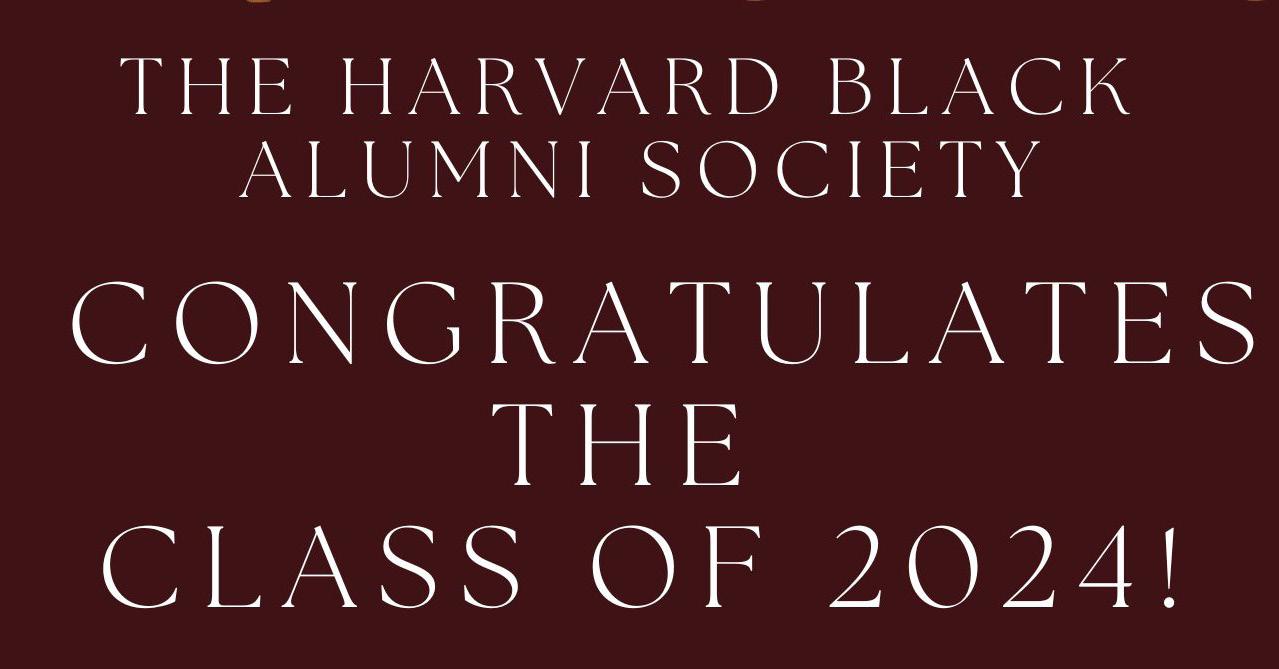







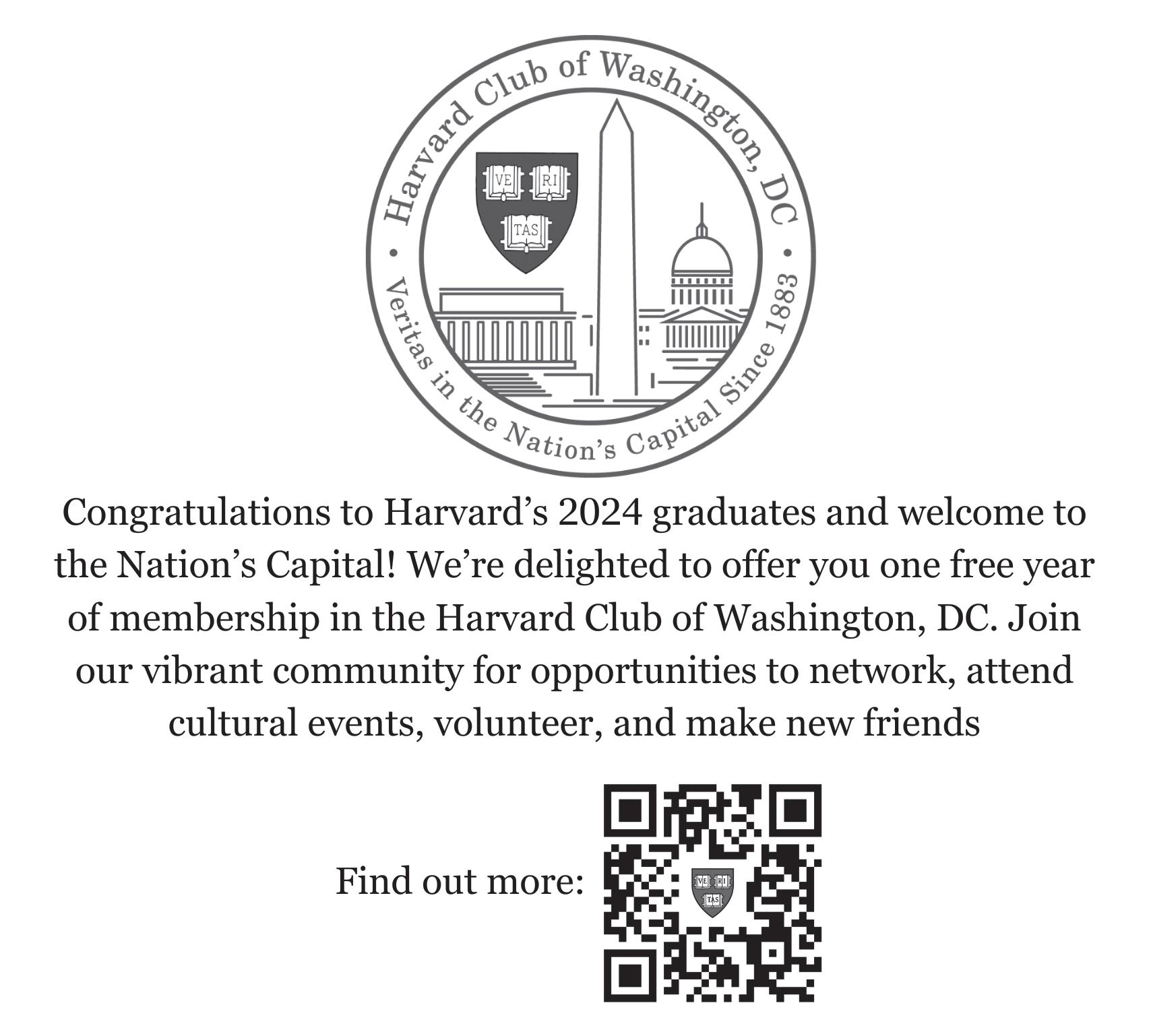






Picture yourself earning your masters or postgraduate degree while immersing yourself in a new culture, forging lifelong friendships, and competing at the highest level At UWE Bristol, it's not just about the game; it's about the journey Plus, with athletic scholarships available, you can pursue your academic and athletic passions without compromise






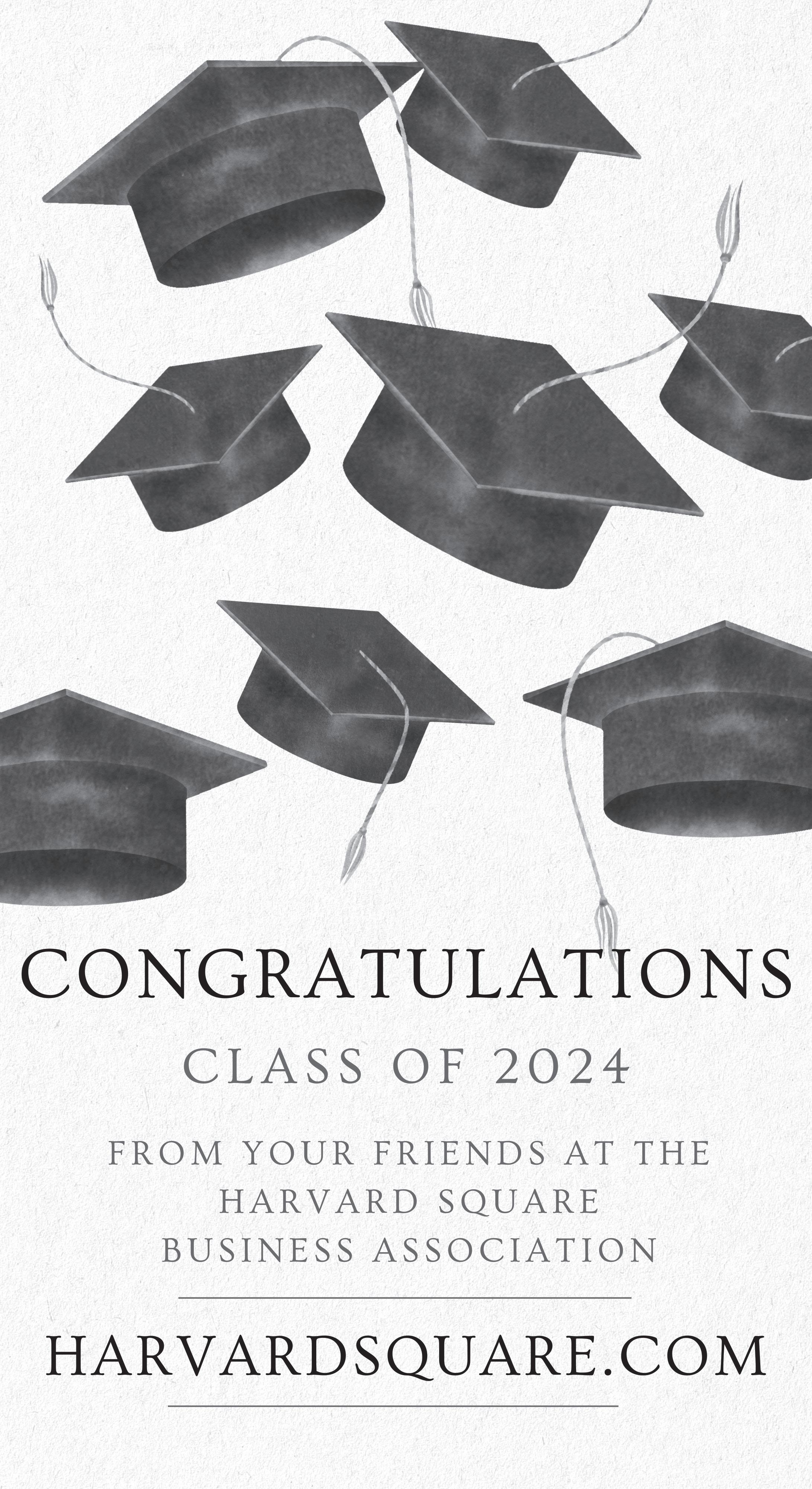



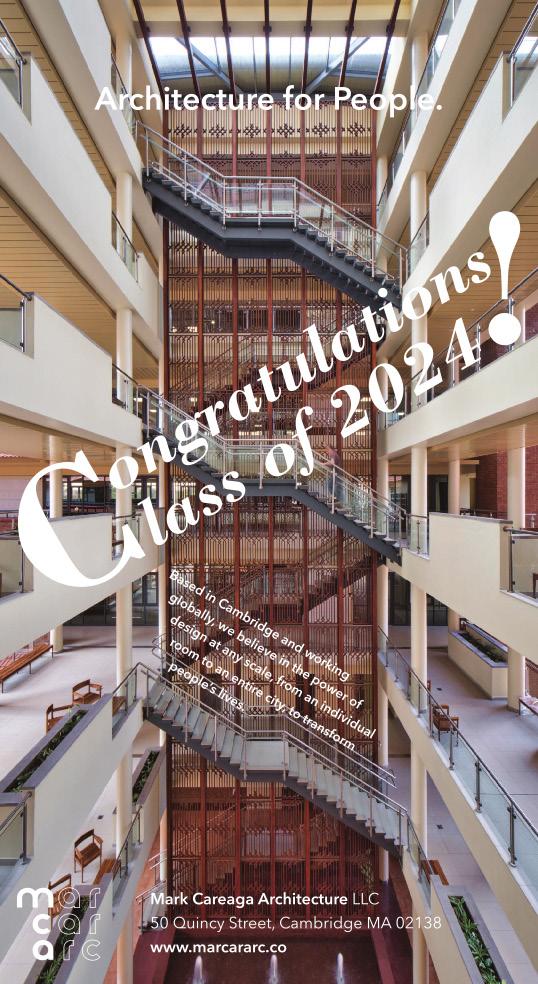
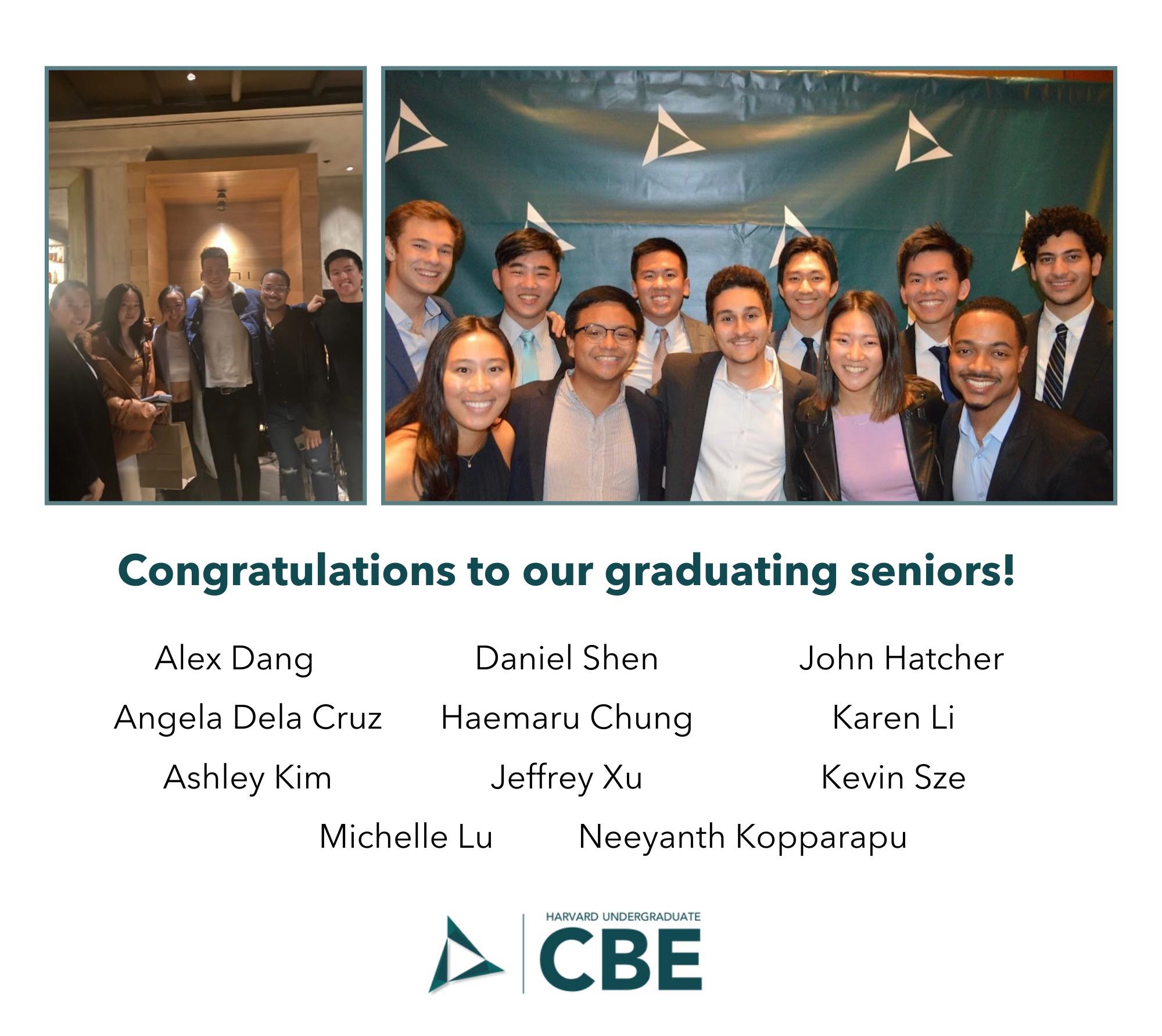
SPONSORED CONTENT
WHERE ELEGANCE MEETS RELAXATION
A cool, summer breeze brings a sense of tranquility to the sparkling beaches of the Aegean Sea, with calm cerulean waves gently lapping against the shimmering sand. It’s summer in the Mediterranean, and bliss is in the air. With its opulent beaches and stunning resorts, the Turkish coast has become a symbol of an idyllic summer vacation destination. Hillside Beach Club, known as “Heaven on Earth” by its guests, merges the two worlds of the classic active vacation with sports and sun along with the more relaxed stay with stunning views and refuge from vibrant bustling cities.
The Hillside Beach Club, conveniently located between Serenity Beach and Silent Beach, provides guests with an unmatched level of peaceful luxury. The resort offers access to the unique and stunning landscapes Turkey has to offer, bordering both the spectacular Fethiye Forests and the glittering Kalemya Bay. For its setting and its service, this award-winning gem is so beloved among its regular guests that Harvard Business School conducted a case study on its record-high levels of guest satisfaction. Regarding the stay, 99% of its guests actively recommend their experience, and the resort has a repeat guest rate of 74%.

Those searching for a peaceful seaside vacation will find promise in Turkey, and those looking to perfect their summers will find a home at the Hillside Beach Club.
A TRADITION OF EXCELLENCE
Hillside Beach Club’s commitment to creating an unforgettable experience has been widely recognized in the hospitality and travel industry. From being named one of the Top 30 Resorts in Europe in Conde Nast Traveler Readers’ Choice Awards to winning the Tripadvisor Travelers’ Choice Award for the Best of the Best resorts in 2022, Hillside has been recognized as the crown jewel of the Turkish Riviera. The resort has won six Haute Grandeur Awards, including Best Seaside Resort in Europe, Best Family Resort in Europe, and Best Resort Hotel in the World.
Even more, the coverage of Hillside Beach Club by HBS is a testament to its dedication to providing a once-in-a-lifetime opportunity for guests. In 2016, Harvard Business School’s Rajiv Lal and Gamze Yucaoglu detailed the intelligently crafted business structure and strategy of the Hillside Beach Club.
HBS found that travelers from around the world are drawn to the Turkish Riviera for its fair pricing, quality of service, and pleasant climate. The divine beauty of the setting is integrated with the
Kalemya Bay pine trees, transparent waters, and seemingly endless beachfront into the resort’s foundations. All Hillside rooms have a beautiful view of the sea and either a balcony or patio. The Hillside approach to service is defined by a personable relationship between workers and guests. Guests are warmly welcomed to Hillside Beach Club by friendly staff who cater to their every need. As a result, many families who stay at the Club meet new people and become friends, with some even making plans to return to HBC together in the future.
Hillside has amenities and activities to offer for everyone. From being lathered in essential oils from the Aegean Seeds massages to taking in the sapphire blue hues of the Aegean Sea, Hillside uniquely provides a serene retreat for travelers to escape the exhaustion of the metropolitan lifestyle. Guests have the pleasure of choosing between relaxation and wellness.
With an Aperol Spritz in hand and wind rustling in the trees, guests may stumble upon one of the three beaches. For those yearning for peace and solitude, the adult-only Serenity Beach and Silent Beach are perfect havens. There is no better place to find a peaceful sanctuary where tran-
quility reigns supreme, providing the perfect location for travelers to cozy up on a beach chair with an enticing book. For those looking for a thrill, the Main Beach and its crystal clear waters are ideal for water skiing or wakeboarding. After soaking up the sun and sea at the beach, guests can retreat to the serene comfort of their room. The accommodations, designed with both elegance and comfort in mind, promise a restful sanctuary with breathtaking views of the surrounding landscape. The soothing decor and amenities ensure a restful stay for everyone, whether in a room with a direct view of the sparkling Aegean or a family room nestled in the gardens. Hillside Beach Club is famed for its exceptional quality of food including Turkish, Mediterranean, and Italian cuisine. Guests are welcome to endless dining experiences at Hillside, from lavish international buffets to exquisite à la carte options by the sea. Each dish is prepared to perfection, making every meal a celebration of flavor. Following a rich dining experience, unwind at one of Hillside’s uniquely themed bars where you can enjoy a cocktail while soaking in spectacular sunsets over Kalemya Bay. From the animated environment of the pool, shift to the tranquility of the SANDA Spa. Here, you can indulge in a range of treatments that meld Eastern and
Western wellness practices. The cool calmness of nature at Hillside Beach Club is seamlessly merged with the huge range of activities and offerings for families and couples alike.
For anyone eager to maintain an active lifestyle during their stay, Hillside offers a variety of sports facilities and fitness classes. Whether you’re up for a tennis match, a basketball game, or a yoga session, the resort brings in expert instructors who cater to all fitness levels and preferences. After energizing your body, immerse yourself in the cultural events organized by the resort. These events, ranging from jazz concerts to film screenings, provide unique experiences that enhance your stay and create lasting memories. A lasting collaboration between Hillside, the British Film Institute, and London Jazz promises guests an array of beautiful performances to choose from. Their annual Classical Music on the Sea allows admirers to embrace a classical music orchestra as they float on the sea bringing harmony and elegance to guests’ ears, creating spectacular memories backdropped by stunning sunsets. Collaborating with IKSV, Hillside fills Fethiye with vibrant jazz tunes through the summer evenings with London Jazz in the Sun. By joining Hillside for a week, jazz enthusi-
asts get the chance to soak up the sun on the shore while exploring the plethora of live performances. Those who are feeling more adventurous can explore the beauty of the Turquoise Coast with Hillside’s organized excursions. Whether it’s a boat trip to nearby islands, historical tours in ancient cities, or hikes on the Lycian Way, the resort offers numerous opportunities to discover the rich history and stunning landscapes of the regions.
AN IMMERSIVE JOURNEY: A DAY IN THE LIFE AT HILLSIDE BEACH CLUB
Morning Rejuvenation
A crisp sea breeze from the Kalemya Bay enters your room through the open window of your private terrace as you wake up from your restful night in the Superior Room. You head to the Main Restaurant to find a spread of locally-sourced ingredients from fruits and vegetables to artisanal cheeses and fresh breads. On your way to the resort’s private beachfront, you stop by for an unforgettable morning pilates session. Overlooking the crystal-clear waters, you meditate and relax. As you move through each pose, you feel the stress and tensions of daily
life disappear, replaced by a sense of inner peace and tranquility.
Afternoon Excursions
Feeling revitalized, it’s time to explore all the amenities and activities HBC has to offer. You may indulge in adrenaline-fueled water sports such as wakeboarding or water-skiing at Turkey’s first official wakeboarding school, located onsite. Guided by expert instructors, you’ll hone your skills on the water, pushing yourself to new limits.
Otherwise, you may opt for a scuba diving excursion, where you can explore the vibrant underwater landscapes teeming with marine life. Or, set sail on a private tour and let the gentle sea breeze guide you across the Aegean Sea at your own pace.
If you prefer to stay on land, you can join a guided hike tour or embark on a bike ride through the region’s picturesque landscapes.
Eveningsof Cultural Immersion
As the sun begins to dip below the horizon, you sip a glass of local wine as you venture on a sunset boat tour. Gliding across the Aegean waters, you are treated to stunning views of the coastline, complete with the warm glow of the setting sun.
More than any other coastal resort, HBC offers a unique opportunity to immerse yourself in a new culture. You may choose to explore the region’s rich heritage by visiting a local village or bazaar. These authentic experiences offer a rare glimpse into the heart of the local culture, allowing you to forge meaningful connections with the people and traditions that have endured for generations.
YOUR PARADISE AWAITS… At Hillside, every moment is thoughtfully curated to provide an experience that nourishes the mind, body, and soul. Whether you’re looking for a vacation that will keep you active with water sports and hiking trails or a relaxed stay by the waters of the Aegean Sea, Hillside Beach Club covers all fronts. A mix of family-friendly activities and adult-only areas provides the ideal stay for all potential guests. With the benefits provided solely to the Harvard Community, Hillside welcomes Harvard students, families, alumni, and faculty to explore the calm beaches of Turkey. Discover why so many guests call it their “Heaven on Earth” and join the ranks of those who can’t wait to return. Your escape to paradise awaits.









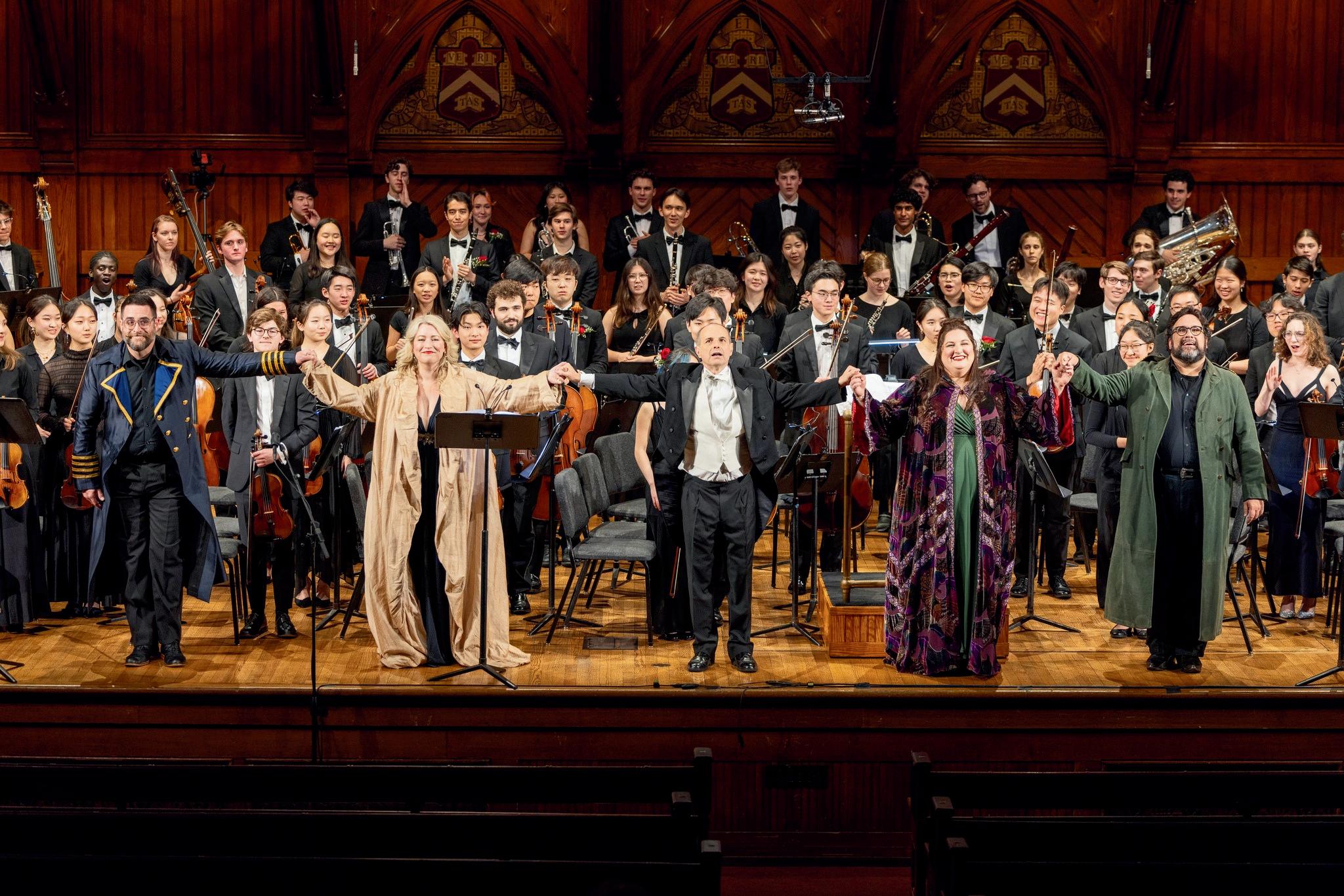



Former University President Claudine Gay’s resignation on Jan. 2 was abrupt, but, somehow, familiar: For the third time this decade, Harvard has to pick a new president.
The search will unfold against the backdrop of unprecedented scrutiny and severe skepticism of universities in American society. Critics have castigated colleges as breeding grounds for antisemitism, safe havens for plagiarists, and hotbeds of ideological conformity as public trust in higher education institutions hits historic lows.
Beneath the controversy, there lies an unsolved question about Harvard’s core mission: Do we exist primarily to educate and research — or to advance social good?
In recent years, Harvard has emphasized its social purpose, sometimes more aggressively than its academic goals. When asked why he accepted the presidency at Harvard, former University President Lawrence S. Bacow mentioned combating climate change and threats to democracy — the social purpose of the University, in other words, but not its essence. Harvard’s focus on its social mission is also visible in its unrelenting commentary on political events, from the Jan. 6 Capitol attack, to the overturning of Roe v. Wade, to the death of George Floyd, to Russia’s invasion of Ukraine, to, of course, the abundance of statements on the Israel-Hamas war. Few would argue that a leading university attempting to advance social good is harmful. In fact, some socially conscious University policies — such as recruiting and admitting a diverse student body — serve both its academic and social missions.
But as Harvard again contemplates its future, we are concerned that these important causes have overshadowed the more fundamental purpose of our University: to be a center of research and learning. At this moment of crisis, Harvard needs a president who can reverse the trend.
A University in Identity Crisis
Do academics at Harvard take precedence over social pursuits, or does the University’s social objective supersede its scholarship?
The lack of clarity on this fundamental question impedes Harvard’s ability to truly excel in either goal. Without clarity on its purpose, the University struggles to chart a course, constantly oscillating between two objectives that are sometimes in tension.
Should the University speak out on political issues even if it threatens intellectual vitality? Should it direct resources to outward-facing initiatives or instead pour funding into academic departments? Should the College weigh test scores or community service more heavily when admitting high school applicants?
These are the impossible questions Harvard confronts when it attempts to simultaneously embrace two missions that can stand in tension.
Recently, it appears that Harvard has allowed its social goals to direct its academics. They have rolled out new centers designed to help society contend with difficult issues — such as climate change and artificial intelligence — while attempting to lump together small humanities departments.
Their practice of making statements on social and political issues, in addition to damaging academic freedom, has divided our community and generated international outrage, distracting us from our studies and hemorrhaging the University’s support in the halls of Congress and the court of public opinion.
More fundamentally, while Harvard extends its social mission, the appearance that its academ-

ic mettle has slipped allows critics to claim that the University has traded its commitment to veritas for a commitment to social justice, abandoning the ideals of academic freedom and intellectual vitality upon the way.
The solution to combating widespread distrust in higher education is refocusing on scholarship as the center of Harvard’s academic mission. A commitment to truth, knowledge, research, and education must be emphasized both in Harvard’s public messaging and administrative decision making.
Harvard’s Next President
Harvard’s 31st president must lead the charge guiding Harvard back to its academic mission. When asked why they accept the job, their answer should be a resounding endorsement of the powers of research and education — and of Harvard to do both.
Our next leader must believe in the capacity of Harvard’s scholarship — believe in it so fervently that they defend it dearly, loudly, and passionately to the harshly judging world. They must be clear-headed regarding the identity of our school and the primacy of education to Harvard’s mission, and should be capable of deftly articulating our core principles to the general public.
An insider pick with an academic background could be best suited to make the case for Harvard and for its academic mission. At the same time, our president must be an effective administrator capable of communicating to the press and reassuring donors at a time of heightened scrutiny.
Choosing the right candidate is essential at this perilous moment in our University’s history. The search process for Gay’s successor must be methodical and avoid the impression of hastiness that haunted Gay’s tenure.
The Harvard Corporation, the University’s highest governing board entrusted with spearheading
the search, should also be more transparent in their process. What qualities are they seeking in the next president? Why did they select who they selected? The more forthcoming they are with details, the more confidence stakeholders will have in their decision.
The search committee also ought to solicit input from students and faculty through formal advisory committees, ensuring the Harvard community feels well-represented in the institution’s next choice.
A Return to Scholarship
Reasserting the importance of the University’s academic function is not merely a concession to an angry public that has soured on us — it will also promote Harvard’s social mission.
Concretely, Harvard must ensure that it attracts and retains top faculty in each field, that it provides them with the requisite funding to do cutting-edge research, and that it upholds the highest standards of instruction in its classrooms. They must also adopt an institutional neutrality policy to enhance academic freedom and protect professors’ ability to do their research.
High-quality academics are a prerequisite for progressing the social good. Harvard’s ability to affect societal change is contingent on the level of trust it enjoys with the public. Academic excellence can help the University promote social justice by shoring up public support and producing well-educated students prepared to critically and meaningfully engage with the world around them.
Refocusing on Harvard’s academic mission does not mean abandoning the University’s social purposes — it just means recognizing where they rank in the school’s hierarchy of values.
Often, initiatives aligned with the University’s social mission directly support its academic function. Harvard’s defense of affirmative action and its law-
Acouple of years ago, I participated in a Zoom event held by Harriett’s Bookshop, a store in Philadelphia owned by Black women, which included a segment called “Rip or Repair.” My co-panelists and I were asked to respond with one of these choices in rapid-fire reaction to a prompt. When the United States Constitution was listed, the panel split: half for ‘rip,’ half for ‘repair.’ I voted to save the founding document upon which our modern freedoms depend.
I am a scholar of slavery and race relations with four prize-winning histories published on these topics. I am not naïve about the flaws of U.S. history, but I want to see this country last.
I feel the same way about Harvard — a great yet imperfect university that has been trapped in a horror show this year, as, among other things, a sustained external campaign against DEI harmed individual reputations, damaged the trust that we have in each other, and clouded our ability to triage threats to our most valuable asset: the sense that we are in this together.
In December, former Harvard University President Claudine Gay testified before Congress alongside MIT President Sally A. Kornbluth and former University of Pennsylvania President Elizabeth Magill. Enough ink has been spilled analyzing that congressional circus. Suffice it to say that aside from
its stated goal of investigating antisemitism, the hearing emphasized a bane of the political right: Diversity, equity, and inclusion.
Conservatives have long been suspicious of DEI and Critical Race Theory, which they see as linked. They worry that these approaches stifle freedom of thought, action, and expression by mandating sensitivity trainings and diversity statements, and they argue that a growing campus bureaucracy reflects a toxic orthodoxy that draws outsized resources.
DEI is, in truth, a motley set of practices and ideas that I would not champion in every occurrence, and any educational program should be subject to critique and reform. But there may be a darker intent behind some of these charges. As revealed in a New York Times investigative report, some far-right activists seem to hope that crushing DEI programs will turn the societal clock back to a time when fewer women, fewer people of color, and fewer LGBTQ people could enter universities like Harvard and emerge as leaders.
My own experience with DEI is that the best of these programs open opportunities to greater numbers of students; foster a sense of belonging in places that have traditionally been monolithic, exclusionary, and cold; and showcase the idea that diversity is an institutional and societal strength. They give students the chance to know one another and work together despite different backgrounds and experiences, fostering the kind of co-exposure and collaboration upon which a healthy civil society depends.
DEI became a target after the congressional hearing unleashed a public frenzy against President Gay, Harvard’s first Black and second female president. Gay faced scathing criticism for her testimony before Congress (for which members of the Corporation have recently acknowledged they did not adequately prepare her). Then critics ramped up anonymous plagiarism charges against Gay, carefully timed to do the most damage, according to Christopher F. Rufo, a conservative activist who first publicized the accusations.
Many of the ugliest attacks on Gay were not about her comments on Capitol Hill or even about plagiarism, but rather about her construal by critics as the queen of DEI. The Harvard historian Khalil Gibran Muhammad, the Harvard Crimson Editorial Board, Claudine Gay herself, and many others, have argued that deposing Gay was an opportunistic effort to undercut the cultural authority of higher education.
It was not long before the campaign against DEI at Harvard evolved, appearing to single out Black women as a group. Black female administrators and scholars were scrutinized, accused of wrongdoing on social media, and represented as symbols of a DEI-CRT regime. The media storm of negative stories about Black women had the effect of presenting diversity as a bankrupt and even corrupt value that the University should reject.
“Let’s not ignore the pattern,” Rufo said on X.“This is the fourth black female CRT/DEI scholar to be accused of plagiarism at Harvard [...] initial
suit against the Trump administration’s guidance for remote instruction of foreign students during the Covid-19 pandemic both aimed to make our classrooms more diverse and accessible, improving the quality of our learning and research. Noble efforts like these must continue.
But when socially guided programs are distinct from the University’s academic purpose — or worse, when they run counter to it — we expect Harvard to recognize its prime identity as a university, not a driver of social change.
***
This year placed Harvard squarely in the center of a congressional investigation, as a defendant in a federal lawsuit, as the subject of a Department of Education probe, and in countless national headlines. But more fundamentally, the University found itself at a crossroads between its dueling academic and social responsibilities.
Climbing out of the current controversy will require clarity on our mission from the next president. It requires recognizing that the ivory tower’s comparative advantage comes from the prioritization of scholarship. It requires recognizing that educating citizen-leaders necessitates a focus on teaching. And it requires recognizing that veritas demands a total devotion to the truth above all else.
Resolving this identity crisis will not be easy, but 400 years of history demands it of us.
– This staff editorial solely represents the majority view of The Crimson Editorial Board. It is the product of discussions at regular Editorial Board meetings. In order to ensure the impartiality of our journalism, Crimson editors who choose to opine and vote at these meetings are not involved in the reporting of articles on similar topics.
reports suggest that the grievance disciplines are rife with fraud.” Plagiarism is obviously bad, but it strains credulity and the public record to think that only or mainly Black women have made these mistakes. The “pattern” that Rufo cites is not natural. As many of us lost sleep fixating on rhetoric like Rufo’s and questioning how our community could conscience such mean-spirited barbs, former President Donald J. Trump steadily advanced toward the Republican nomination, praising autocrats and claiming that he wants to be “dictator for a day.” This escalated DEI culture war diverts time, emotion, and resources from the bigger threat: “democratic recession.” Is DEI more dangerous than dictatorship? Anyone who joins me in answering “no” has a shared purpose. In a 1975 speech given at Portland State University, Toni Morrison famously declared that the function of racism is distraction, meaning that racism operates to distract those on the receiving end from doing their vital work. Similarly, the anti-DEI crusade represents a diversion from the real threat to universities and free societies posed by vitriolic divisions. To overcome them, we must rediscover our common accord. Repairing the university means defending the spirit of our collectivity. Class of 2024, ever excellent, ever resilient: we need you to help lead the way.
A.
MAKING PROGRESS. A world free from social, economic, and political ills is probably unattainable, and to suggest otherwise is to be blindly optimistic and incognizant of history’s nonlinear trajectory. But that doesn’t mean we should lose sight of our ideals.
BY AMEN H. GASHAW“Utterly meaningless! Everything is meaningless!”
Those words could’ve been spoken yesterday, perhaps by a cynical citizen or an apprehensive Harvard student grappling with the latest campus crisis, or even by me, a jaded former president of the College’s largest political organization. But they are actually the opening verses of the millenia-old biblical Book of Ecclesiastes. Amid the myriad intractable quandaries our community has recently faced — diversity in higher education, the Israel-Hamas war, and freedom of speech, to name a few — such ancient dejection has frequently occupied my mind.
As a senior, I’ve contemplated these concerns alongside more existential questions: What do we do with our lives, and can we really make a difference in the world?
Given recent events, it wouldn’t be unreasonable to conclude that we cannot: Protests extend into impasses or are met with diluted promises and administrative hardball. Attempts to exchange
ideas end in offense and disappointment. Our own democracy stimulates conflict and treats civilians like collateral damage despite domestic discontent.
Caught in a loop of vanity and complicity, how do we engage in a world that seems to take two steps back for every step forward?
One option might be to focus on education and conversation. The more we know about this complicated world and hear competing ideas for improving it, the more equipped we’ll be to spearhead that improvement, right? In recent months, this model — education as progress — has seemed to be Harvard’s modus operandi. When defusing the pro-Palestinian encampment in Harvard Yard this month, interim Harvard President Alan M. Garber ’76 committed first to discussing “academic matters” with protestors, and administrators have repeated that University affiliates hold a “shared responsibility” to create a campus climate safe for “reasoned dissent” and “true and meaningful dialogue.”
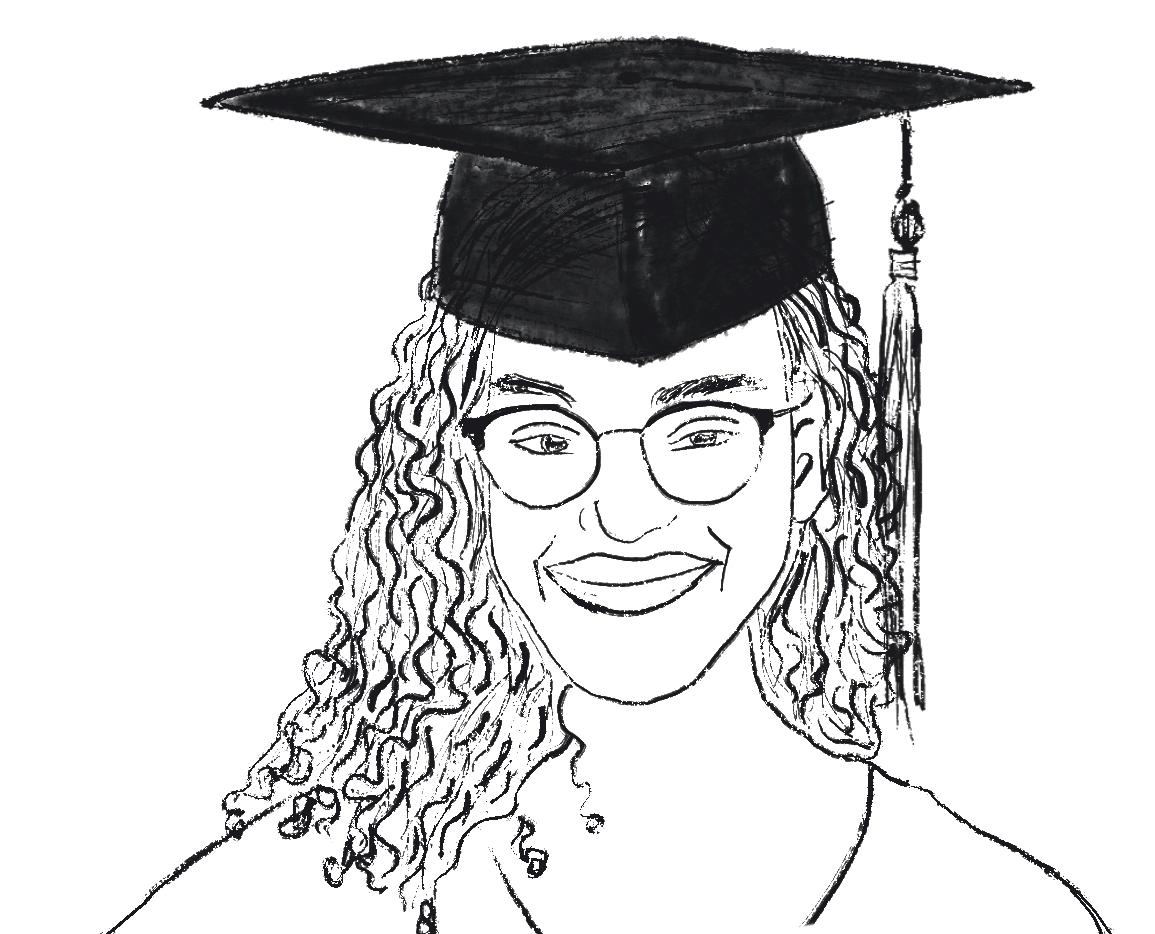
Certainly, learning and discoursing have immense value, but without follow-through, they’re unsatisfying — necessary but insufficient. My four years as a member and, eventually, president of the Harvard Kennedy School Institute of Politics taught me this. Repeatedly, feedback we got from peers called for less instruction and more doing; fewer speaker events and more service. Our students were acutely aware that, in the words of philosopher-scientist Herbert Spencer, “the great aim of education is not knowledge but action.”
Fulfilling that aim, though, is no simple task. First, fully grasping complex issues is usually costly and inconvenient, and after performing the work of gaining real understanding, we can trick ourselves into thinking the mandate for action ends there.
Second, history teaches us that old solutions often create new problems: Independent of all our toil, the world is still broken. Suddenly, we are back where we started, disconcerted by but impotent

INCREASING BELONGING. While I am proud of the work done by students, Harvard must critically re-examining its treatment of marginalized people as a box to check during the admissions process. Just because we got in, doesn’t mean we are treated as though we belong.
When I set foot on Harvard’s campus in 2019, I identified as cisgender lesbian and never would have claimed disability. Today, I graduate as a transmasculine, Autistic, physically disabled athlete and activist: a truer version of myself than I could have dreamed of my freshman year.
In the wake of the Supreme Court ruling on affirmative action, Harvard has come under scrutiny for its admissions model, which reduces diverse students to numbers and checked boxes — x percent this and y percent that.
If Harvard hopes to develop us into leaders though, they must account for us as whole, changing people. We must be made to feel like we belong throughout our time on campus.
Throughout my time at Harvard, the most challenging barrier to belonging here were the endless meetings, emails, and advocacy required to communicate my needs. As a chronically ill and trans person, I constantly needed to remind the University that my needs are not static. I have had more conversations than I can count with administrators, faculty, staff, and students, trying to convince them that I — and all neurodivergent people — are entirely capable of learning.
In my five years at Harvard, I was constantly reminded that my disabled, queer, and trans communities were not known about — and thus, not properly cared for.
I was asked to sit on councils, committees, and advisory groups — contributing feedback not with, but for my communities. It is, perhaps, the strongest throughline in my undergraduate experience: watching our University, which touts its diverse student body, struggle to truly understand and create a space where those very students feel they belong. Though some might point to cultural centers
as evidence of Harvard’s efforts to create inclusive space, these efforts have been insufficient. Those centers that do exist are largely underfunded. Some only serve the college and some rely on only one overworked full-fledged staff member Harvard is neither recognizing nor acting on the best practices for building places where students can actually be themselves.
While I have tried my best to advocate for my communities throughout my time here, Harvard cannot continue to tokenize and exploit the singular perspectives and efforts of multiply-marginalized students — or students who identify with multiple marginalized groups — as they have done with me. It must seek out accurate and detailed data about queer, trans, and disabled people at Harvard to truly understand our needs and experiences.
Right now we have a dearth of data on acceptance and belonging at Harvard.
In a recent meeting of the Inclusion and Belonging Student Leadership Council, President Alan M. Garber ’76 touted a small white book from 2018 outlining the University’s diversity, equity, inclusion, and belonging initiatives. That very book comedically touted data referencing “female,” “internationals,” and “minorities” as the only three markers for diversity.
The most recent data on belonging we have stems from a 2019 University survey. It showed that the two groups with the lowest reported percentage of belonging, at less than 50 percent, were a “genderqueer or nonbinary” group and an “aggregated gender identity” category — a label that includes intersex, agender, and genderqueer people, among others who may or may not identify as transgender. Even worse, some relevant groups, like disabled people, were not reported on at all.
Despite finding a low belonging percentage for
transgender students, there have been no meaningful University-wide efforts to support transgender students since this data was collected. This survey and the lack of response it elicited highlights the lack of multi-marginal approaches to diversity, equity, inclusion, and belonging work at Harvard.
As a trans and disabled person, being excluded from data is an all-too-familiar experience that perpetuates a cycle of exclusion: Marginalized groups are excluded from data, and therefore receive fewer funding opportunities and attention, making them feel less at home at Harvard.
Students from these marginalized groups are not admitted in critical mass, and so they will not benefit from community-driven support or alumni pressure for inclusion and funding. Prioritization of legacy students will continue to disproportionately exclude students of color and disabled students, making community support for marginalized groups even weaker. Thus, their exclusion will continue.
Without internal efforts driven by data on acceptance and belonging, our community’s needs will never be seen nor respected.
As I leave Harvard behind, I want to offer advice for creating a more inclusive future to University leaders, my fellow alumni, and current students.
The University must continue gathering data on the student experience and investing in initiatives that marginalized student communities are demanding, like a multicultural center, representation in faculty and staff, and expansion of academic commitments.
I have never felt more seen as a disabled person at Harvard than in the transgender spaces my peers and I have built. Many of my friends have similarly expressed comfort in spaces designed to affirm their womanhood, transness, disability, race, and ethnicity.
against the somber realization that every action we take just might be meaningless. This is not an uncommon view: The IOP’s Spring 2024 Harvard Youth Poll of 18 to 29-year-olds nationwide found that young Americans are disillusioned, with 41 percent saying they don’t believe their vote will make a difference in the 2024 election. A 2022 Pew Research poll found that citizen majorities in several countries worldwide, including more than two thirds of American adults, think their political systems disable them from impacting politics. Such feelings of futility are neither new nor dependent on social standing: In about 950 BCE, one of antiquity’s most powerful kings wrote the grim, nearly defeatist lines with which I started this piece. The seemingly broken link between people’s actions and good outcomes does not discriminate.
To discern why we feel this way, it’s helpful to ask: What is “good?” If goodness is perfection — perfect liberation, perfect justice, perfect equity — then yes, most actions, careers, or movements likely won’t create a good world. And how big is the world that we’re trying to fix? The fact that no one has yet succeeded in saving all of it can be debilitating. However, when we redefine our metrics for efficacy, action becomes more tenable. As I learned in “Making Change When Change is Hard,” a general education course taught by Cass R. Sunstein ’75, former President Barack H. Obama did just that, motivating his team with the mantra: “better is good.”
Perfection need not be the only objective. Instead, good might also just be an improvement on yesterday for one specific community. In classic Ec10 style, maybe the measure of meaning is on the margin. A world free from social, economic, and political ills is probably unattainable, and to suggest otherwise is to be blindly optimistic and incognizant of history’s nonlinear trajectory. More importantly, by aiming for perfection, we set ourselves up for speedy disenchantment when the future lets us down.
But that doesn’t mean we should lose sight of our ideals. If “better is good,” then our work, our advocacy, even our education all have potency, because it is easier to make the world better than to make the world perfect.
Easier, though, does not mean easy. The “arc of the moral universe” cannot “bend toward justice,” as Martin Luther King Jr. once said, if we don’t push it with force and conviction.
Former U.S. President John F. Kennedy ’40 — the IOP’s namesake — perfectly captured this sentiment in his address on the moon landing, explaining that we choose to pursue our goals for a better world “not because they are easy but because they are hard.” Hard is still possible. Hard is meaningful. Hard things are what we did to get here. They are what we will continue doing once we leave.
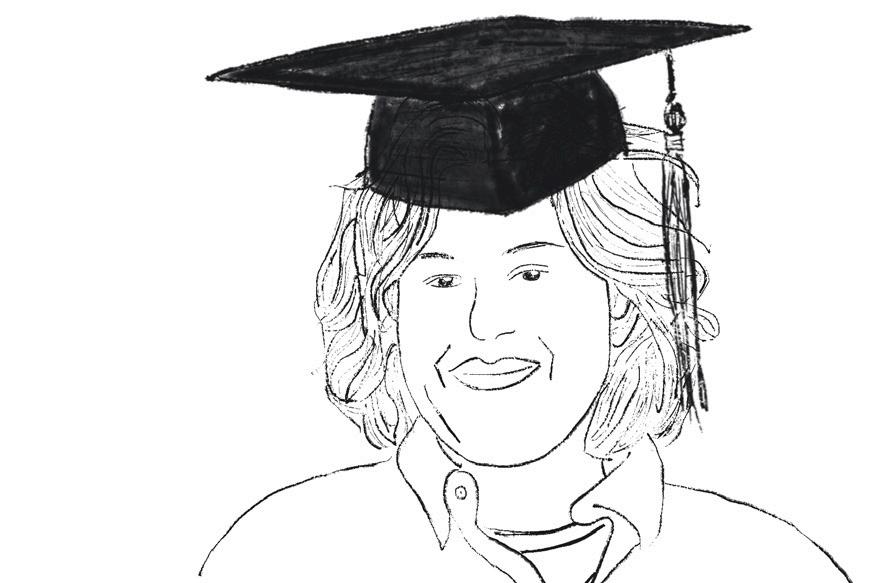
Similarly, alumni should recognize when their words, advocacy, and donations can be used to increase student belonging, and should not hesitate to hold Harvard to account.
If those efforts fail, we are left with one option: marginalized and multi-marginalized students have to support each other and themselves.
According to forthcoming results from a survey and publication I led, transgender people at Harvard are disproportionately low-income, and often from states facing substantial anti-trans legislation, creating additional barriers to success.
Two of the largest transgender focused projects in Harvard history are the Trans Task Force and TransHarvard, which has been operational for the past three years.
Both are staffed by students who are largely not paid for their labor, overworked as they develop often-unsustainable systems to support their basic community needs, and who may not be able to access staff support given the political stigma around simply being transgender. Still, conferences like those that TransHarvard hosts bring Harvard a good name. Harvard benefits immensely from student initiatives, exploiting the free labor of students on various councils, leadership committees, and feedback forms.
While I am proud of the work done by students, Harvard must pick up the slack, critically re-examining its treatment of marginalized people as a box to check during the admissions process. Just because we got in, doesn’t mean we are treated as though we belong.












•
•
•
•
•











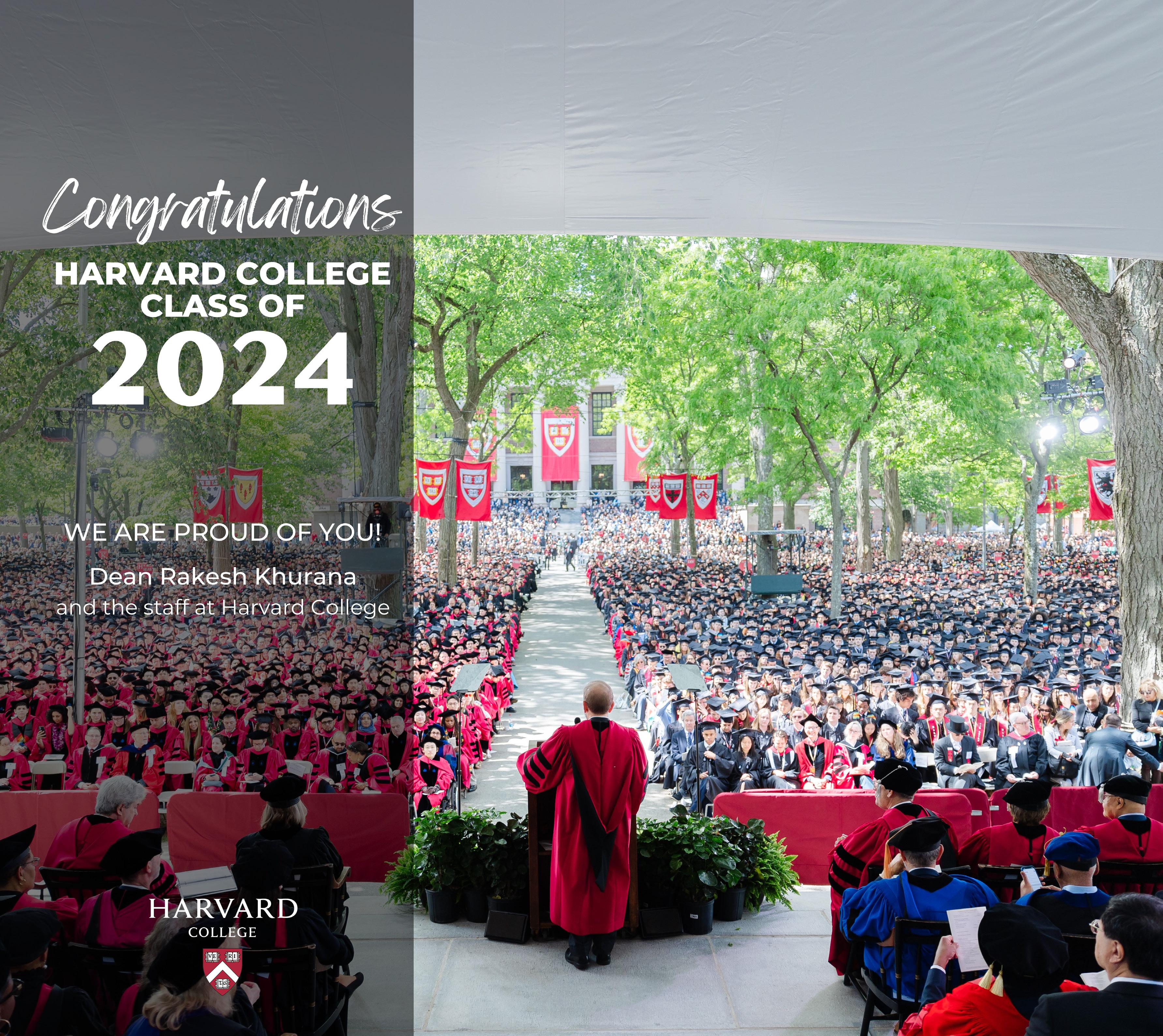


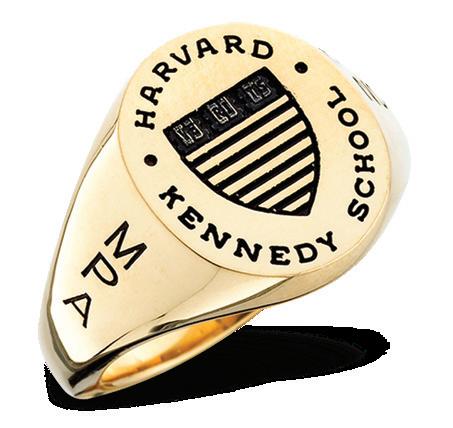
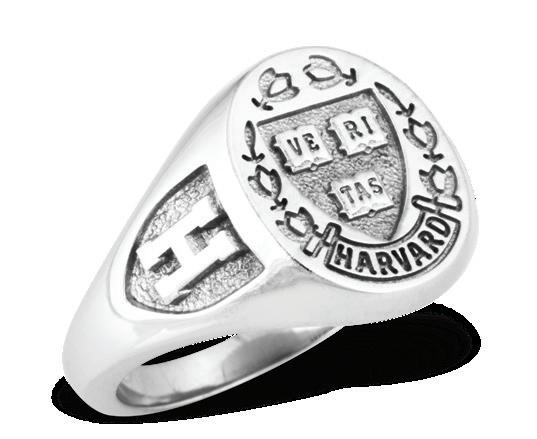


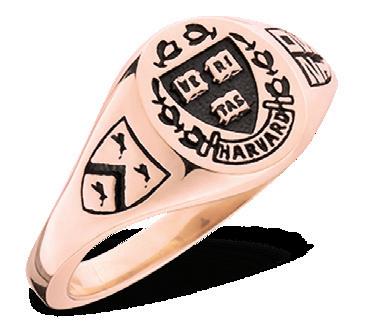
Come to The Harvard Square Coop to get your ring measurement and preview all your customized options.
$100 OFF 10K • $200 OFF 14K • $300 OFF 18K
$25 OFF ULTRIUM & EXTREME SILVER
COOP Members save an additional 10% OFF plus a free Harvard cherry ring box.
Herff Jones representative will be available at The Havard Square Coop: Wednesday, May 22, 12-5pm • Thursday, May 23, 4-7 p.m. Friday, May 24, 11-4pm • Saturday, May 25, 11-4pm
Discounts available Harvard Law & Harvard Business Coop.
Order online. Anytime. herff.ly/harvard





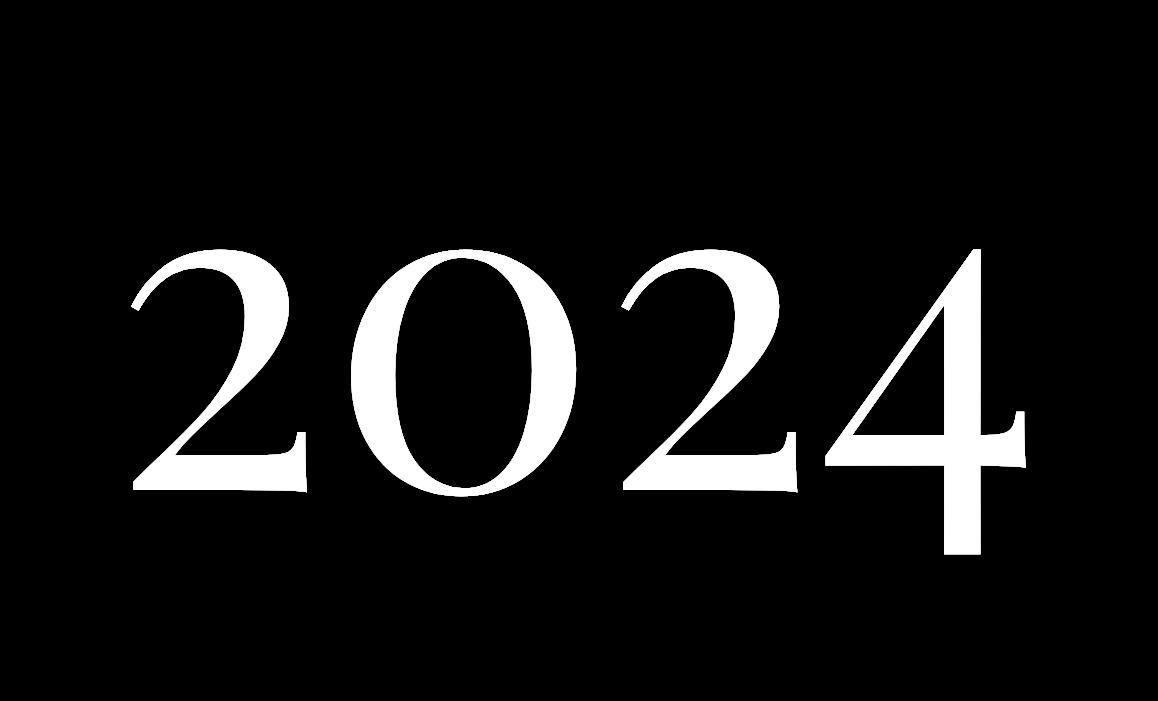

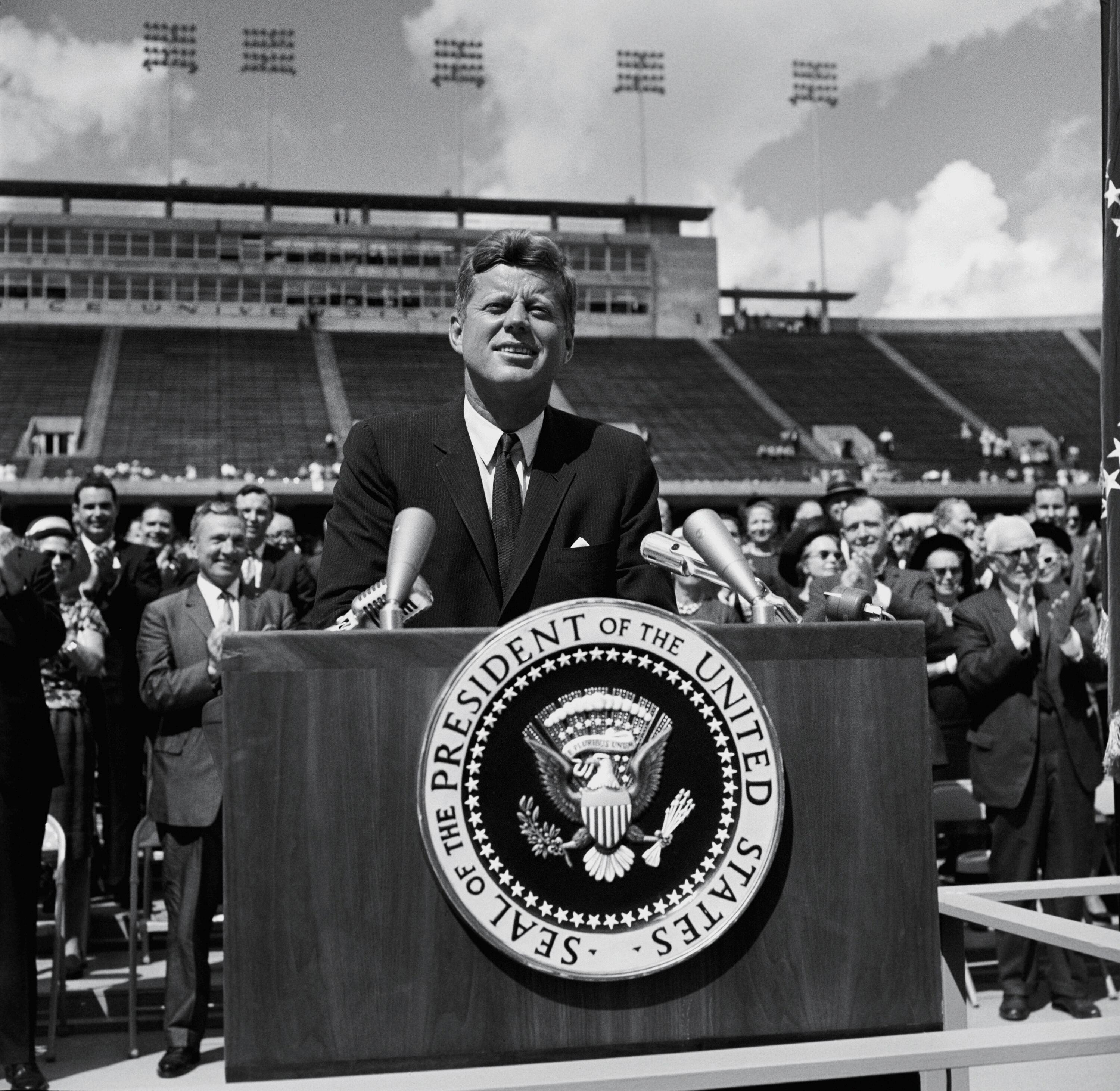


Join the Harvard Club of NYC

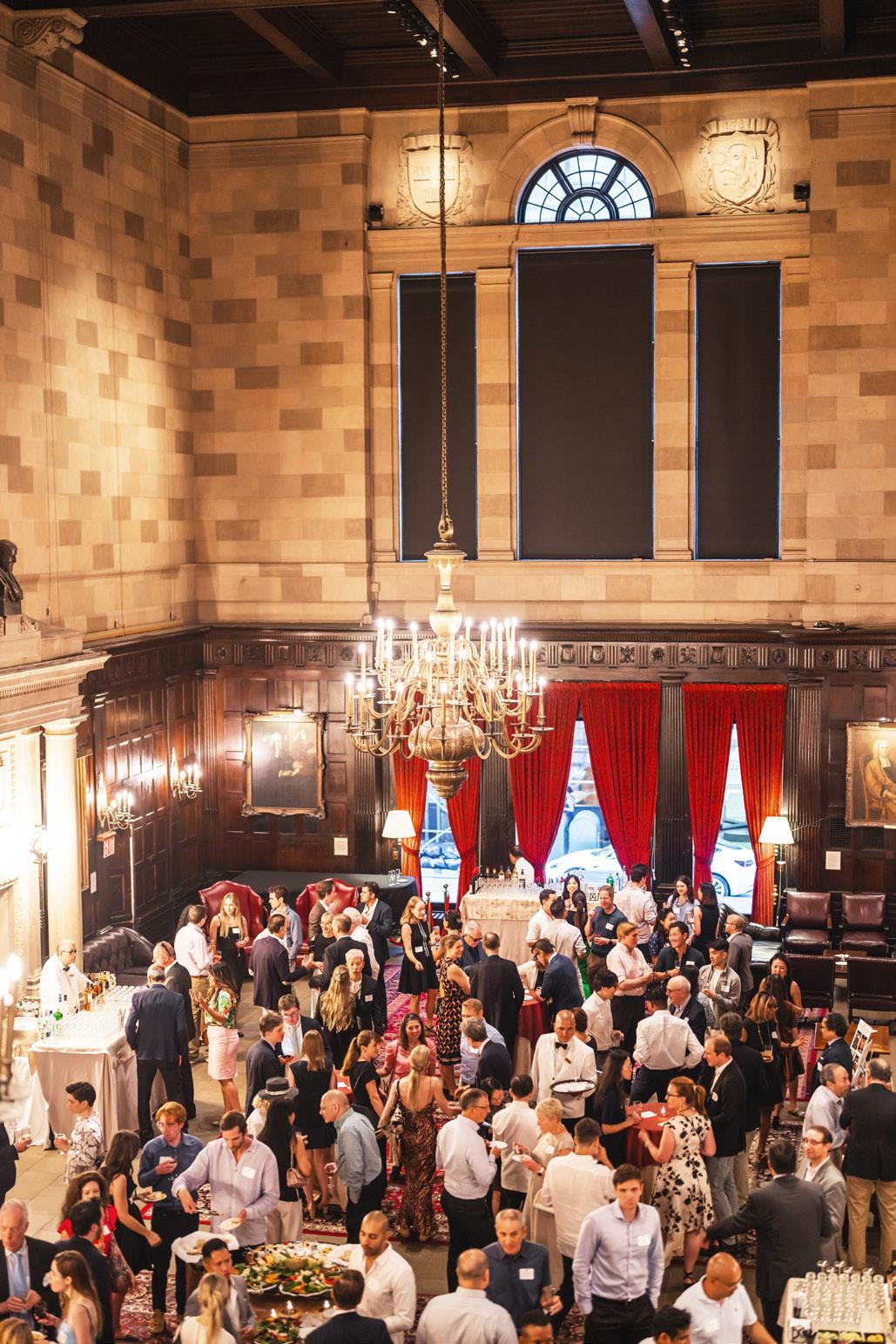
Harvard Class of 2024
(College and Graduate Schools)
Our Graduation Gift to You*:
Only $100 to join which is fully redeemable as house credit for use toward dining, guest rooms, and athletics! This special offer also includes: waived dues and a reduced tness membership through 6/30/25.

urrent Student Summer Membership Memorial Day Weekend - Labor Day Weekend


Current Harvard Students can enjoy a HCNY Student Summer Membership for the 2024 summer season for a special rate of $50. This special membership offer includes $50 in non-refundable house credit for dining, guest rooms, and athletics! This program is for any student currently enrolled in a Harvard degree program. A specially priced tness membership is also available.
For more details and to apply, visit hcny.com
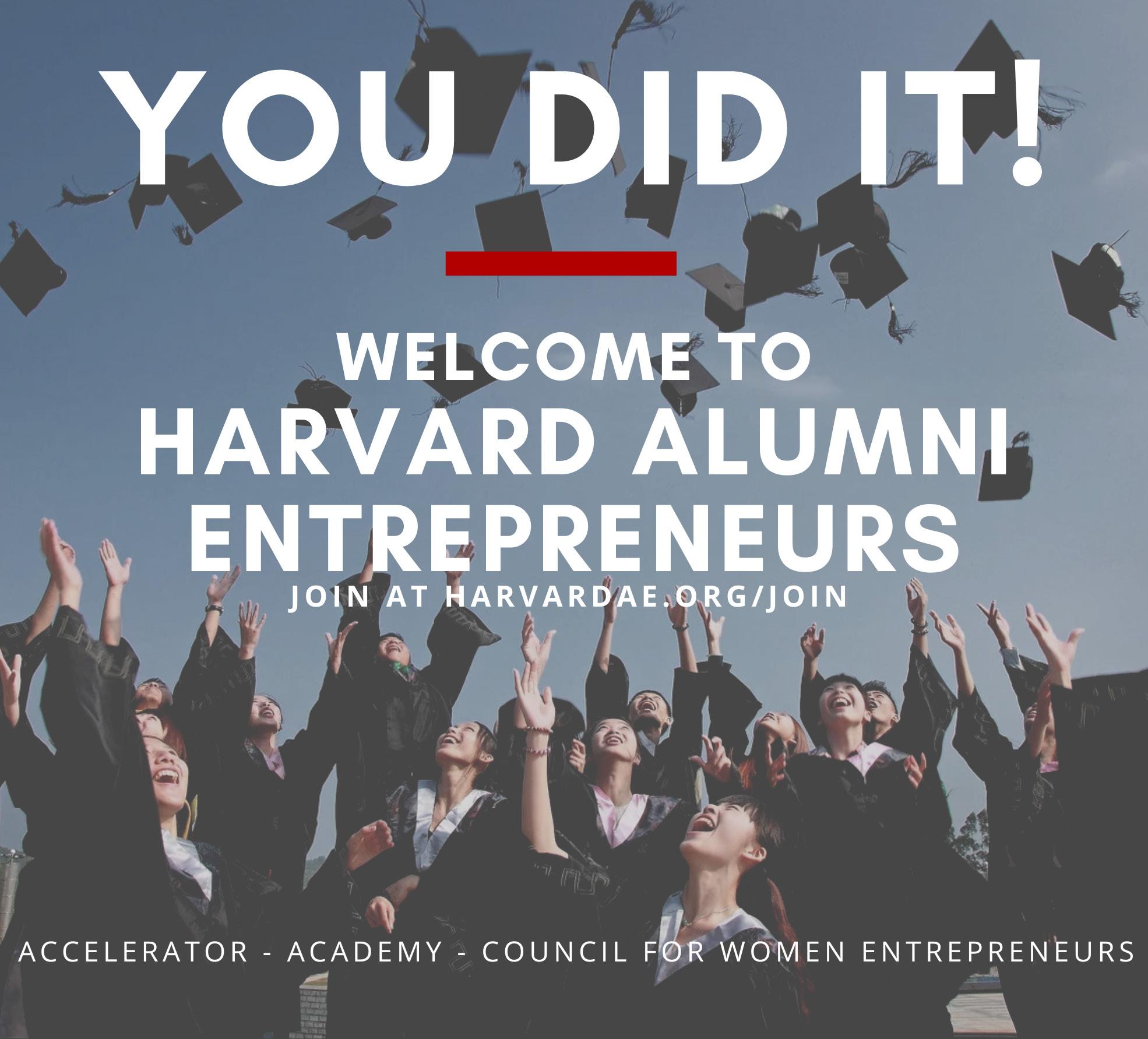
REPORT. Virginia Foxx said the House Committee’s report was the first of a series about Harvard and antisemitism.
BY CAM E. KETTLESThe House Committee on Education and the Workforce’s May 16 report on Harvard’s response to antisemitism was the culmination of a months-long investigation into the University.
Chairwoman Virginia Foxx (R-N.C.) said it is also just the beginning.
Foxx said in a Friday interview with The Crimson that the 42-page report will just be the first in a series of reports on Harvard’s response to antisemitism as they continue to receive documents from the University following the subpoenas issued in February.
“We’ll just have to see how serious Harvard is about correcting the problems,” Foxx said.
Thursday’s report revealed a serious internal rift between former Harvard President Claudine Gay and her antisemitism adviso-

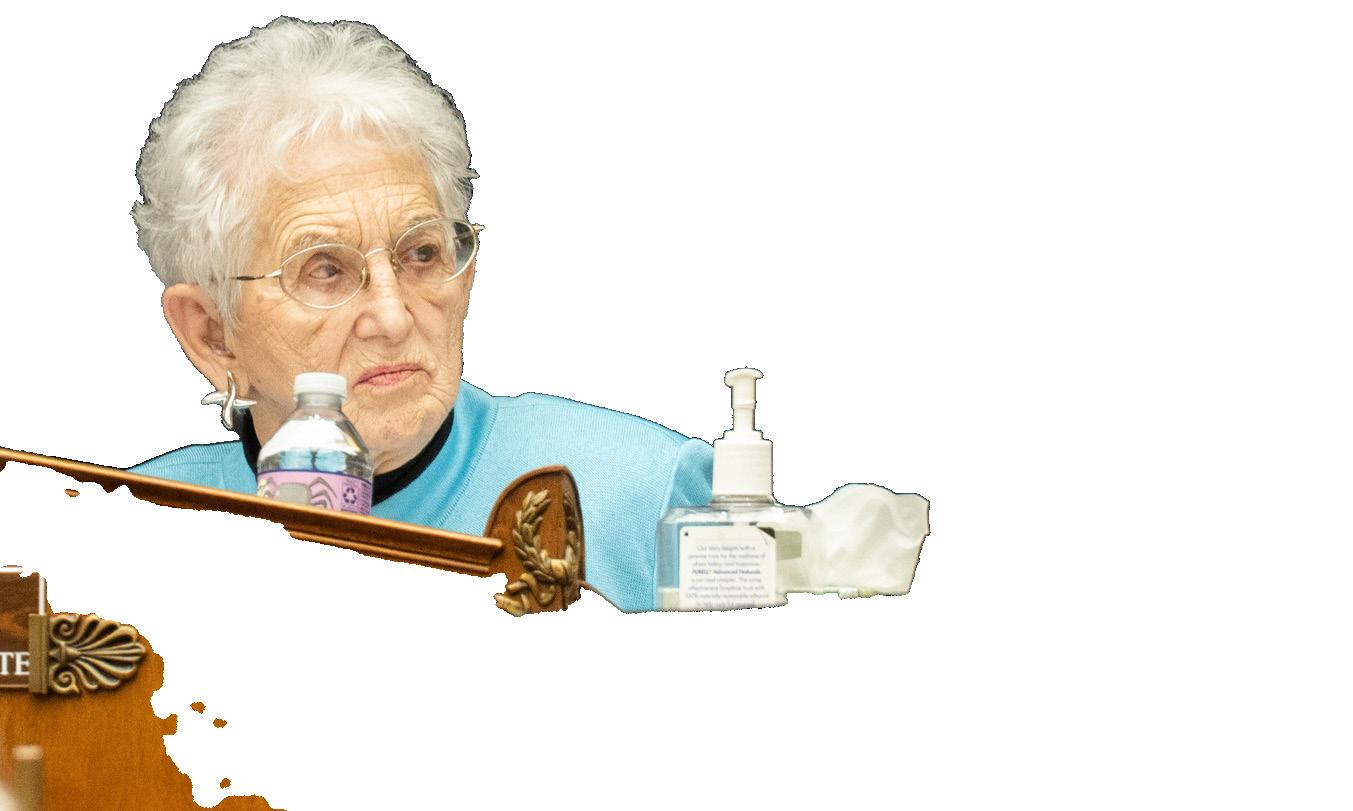
ry group. Days after Gay announced the group’s formation, the majority of its members threatened to resign over the University’s response to antisemitism. The members outlined 14 changes to Harvard policies in a Nov. 5 email to Gay and then-Provost Alan M. Garber ’76. The recommendations were not public until
the committee released its report.
“It’s Harvard people themselves who are damning Harvard with this report,” Foxx said. “That isn’t coming from us.”
“It’s the antisemitism advisory group that found all these things that were going on at Harvard, they gave the report to the administration, and then the administration
Harvard asked a federal judge in Boston to dismiss a lawsuit by alumni alleging that antisemitism on campus has “significantly diminished” the value of their degrees in a May 13 filing. In a 19-page memorandum, the University argued that the plaintiffs’ status as alumni of Harvard was insufficient to support their “implied contractual relationship with Harvard” which the University claimed is needed for the plaintiffs’ lawsuit to have any legal merit. Such a contract “is far too vague and indefinite to be actionable under Massachusetts law,” the filing stated.
The University added that if it were to fire employees or suspend or expel students — as the plaintiffs demand — it could lead to copycat lawsuits from alumni who feel
their degrees have been devalued.
The lawsuit, filed in February by 10 alumni from schools across the University, alleged that Harvard “has despicably failed” in efforts to address antisemitism and hate on campus — something they said has devalued the “life-long prestige of having graduated from Harvard.”
“Harvard has directly caused the value and prestige of Plaintiffs’ Harvard degrees to be diminished and made a mockery out of Harvard graduates in the employment world and beyond,” the plaintiffs wrote in their initial complaint.
Since Hamas’ Oct. 7 attacks on Israel, Harvard has been engulfed in controversy over allegations of antisemitism on campus.
Last month, the University filed a motion to dismiss a lawsuit originally filed by six current Jewish students in January. In their suit, the students seek damages from the University alongside “concrete
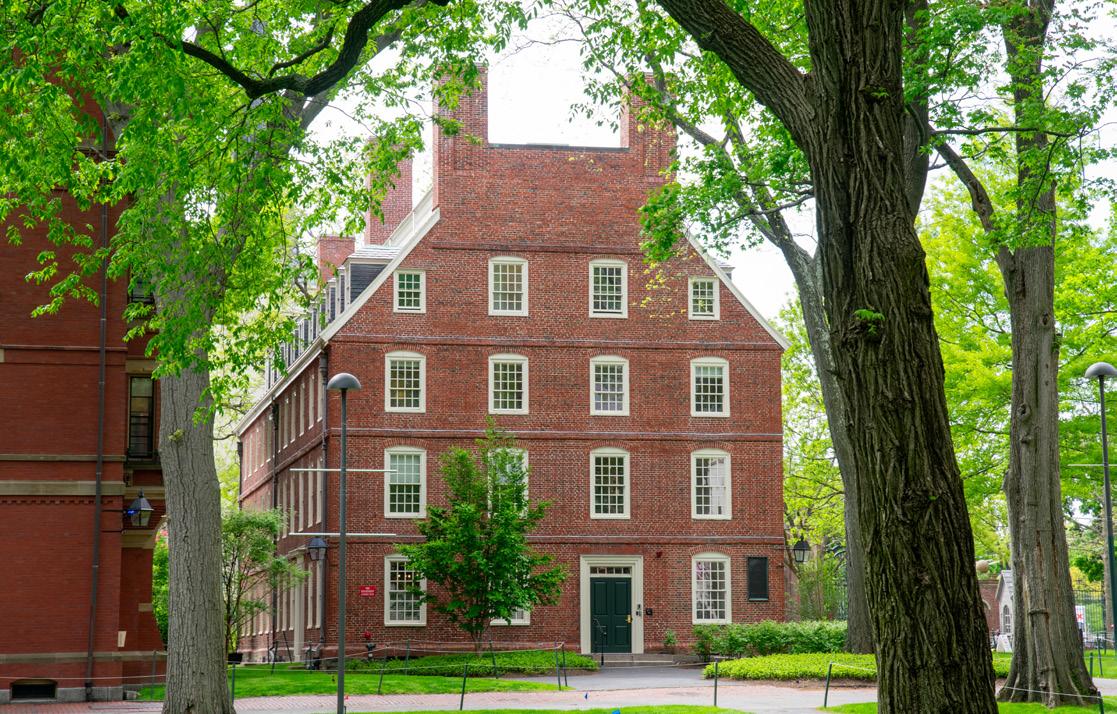
dismiss a lawsuit from alumni alleging degree devaluation. JULIAN J. GIORDANO — CRIMSON PHOTOGRAPHER
remedial measures” to address antisemitism.
Harvard is also being investigated by House Republicans over allegations of antisemitism on campus. In February, three members of Harvard’s leadership, including interim President Alan M. Garber ’76 — were subpoenaed by the House Committee on Education and the Workforce as part of the investigation.
The litigation also came as Harvard officials struggled to deal with the ongoing pro-Palestinian encampment in Harvard Yard. On May 13, Harvard University police officers entered the encampment and photographed students who were present, as the prospect of police action becomes increasingly likely.
Robert Tolchin, one of the lawyers representing the alumni plaintiffs, slammed Harvard’s motion to dismiss in a statement to The Crimson.
“They do not take issue with the main issue we raised in this lawsuit, which is that Harvard’s reputation is tanking due to its coddling of antisemitism,” Tolchin wrote. “Yet Harvard’s response to the lawsuit is limited to pettifoggery over whether Harvard owes any obligation to its graduates to maintain Harvard’s reputation. To quote Taylor Swift, ‘What?!’”
“Harvard’s position is shocking, and every Harvard student and alumnus should be shocked,” he added.
A University spokesperson declined to comment for this article.
matan.josephy@thecrimson.com dhruv.patel@thecrimson.com
did nothing,” she added. Gay did agree to meet some of the group’s demands, including condemning the use of the phrase “from the river to the sea ” just four days later. She declined to ban masked protests and make other policy changes. Since the committee’s investigation began in early December,
the University has submitted more than 30,000 pages of material to the committee.
Harvard spokesperson Jason A. Newton wrote in a statement following the report’s release that “it is disappointing to see selective excerpts from internal documents, shared in good faith, released in this manner, offering an incomplete and inaccurate view of Harvard’s overall efforts to combat antisemitism last fall and in the months since.”
Foxx said partially because of the sheer size of the total submission, the committee has not gone through all of the information they have from Harvard.
She said the committee plans to do an additional assessment during the summer before issuing a follow-up report. The committee has also requested information about campus antisemitism from several other universities in recent weeks.
“Remember, we’re not just dealing with Harvard now,” she said. While the report itself was focused on Gay’s administration, Garber’s response to antisemitism largely hinges on the upcoming recommendations of his antisemitism task force. The group expects to re-
lease an initial set of recommendations this spring.
Those recommendations — and Garber’s ability to implement them — will likely play a large role in the intensity and duration of the investigation’s next stage.
“It’s mostly going to be up to them, again, as to whether they decide to solve the problems at Harvard,” Foxx said of the University’s leadership, including Penny S. Pritzker ’81, the senior fellow of the Harvard Corporation. “If they don’t solve the problems at Harvard, I hope a lot of people will call for resignations of people there.”
“I have not called for that at any point because I’m waiting to see what the results are,” she added. Foxx did not specify
Harvard’s Faculty of Arts and Sciences will hold an online vote on whether to elect delegates to a planning body for a University-wide faculty senate, delaying a final decision on the proposal until the summer during a special FAS meeting on May 14.
The discussion saw a slightly muted, though still contested, variant of the debate from the faculty meeting one week earlier, when the proposal was first introduced. The proposal — which would be the FAS’ first concrete step toward Harvard-wide faculty governance — overcame multiple attempts to stall it led by University Professor Ann M. Blair ’84.
Should the proposal pass, the FAS will elect 12 representatives to discuss the desirability and design of a faculty senate that would span all nine of Harvard’s faculties. Before the proposed planning body is complete, however, each faculty would have to pick its own representatives.
Although discussions are underway at all of Harvard’s schools, some faculties will not vote on whether to elect planning body delegates until the fall semester, if at all.
That the vote would be held electronically was something of a foregone conclusion. German Literatures and Languages professor Peter J. Burgard, a leading opponent of the University-wide senate proposal, and University Professor Danielle S. Allen — the proposal’s top defender — had reached an

agreement prior to the meeting to endorse the motion for an email ballot.
At the meeting, Allen told attendees she thought that a vote open to the entire FAS — not just those who were able to make it to the special meeting — would be most consistent with the spirit of the proposal.
The consensus, however, did not stop Burgard from first calling for a quorum — an unsuccessful attempt to delay the planning body resolution until the fall.
Burgard, who unsuccessfully moved to delay discussion until the fall during the last FAS meeting, wrote in an email that he opposed the faculty senate proposal as it would dilute the importance of the FAS as the University’s central faculty. He said he had explored the idea of creating a faculty senate in 2012, though his proposed body would only have included members of the FAS.
During the meeting, faculty decisively approved an amendment by Allen to tweak the phrasing of the resolution and make it less com-
mittal toward a faculty senate. Faculty also rejected two motions by Blair: one to refer the discussion to the 19-member Faculty Council, and another to dramatically broaden the scope of the resolution, further deferring the process of considering a design for a senate. The second amendment, defeated by a narrower margin, called for a planning body to consider “options for various ways faculty across the University could improve communication with the leaders of the University and with the members of the Corporation” — opening the door for the FAS to endorse an alternative to a faculty senate while watering down the language of the initial proposal. The meeting concluded with Burgard and Allen’s compromise amendment, which passed with 90 percent of the vote. Secretary of the Faculty Susan L. Lively told attendees that voting faculty will receive their ballots and instructions within the next week. HLS and HKS in 2025.
tilly.robinson@thecrimson.com neil.shah@thecrimson.com
Two Harvard graduate students are facing criminal charges and up to 200 days in jail following their involvement in a confrontation with an Israeli student at a pro-Palestine protest at the Harvard Business School in October.
Elom Tettey-Tamaklo — a student at the Harvard Divinity School — and Ibrahim I. Bharmal — a student jointly enrolled at Harvard Law School and the Harvard Kennedy School — were each charged with two misdemeanors on May 9 for assault and battery, and violating the Massachusetts Civil Rights Act. The students face up to 100 days in jail for each misdemeanor charge.
Tettey-Tamaklo — an organizer with Grad Students 4 Palestine — and Bharmal were involved in a confrontation with a student at an Oct. 18 “die-in” protest at HBS.
A video of the incident went viral, in which Tettey-Tamaklo and Bharmal are seen approaching a man identified as an Israeli student by various news outlets. They then escorted the man out of the protest after he attempted to film the faces of protesters, blocking his camera with their security vests and keffiyehs. Neither Tettey-Tamaklo nor Barhmal responded to requests for comment on the charges.
Following the publication of the video on X, a platform formerly known as Twitter, various Harvard alumni, including Bill A. Ackman ’88, penned two open letters criticizing the Harvard administration for failing to combat an alleged increase of antisemitism on campus.
The letters – one of which was co-authored by HBS alumnus Sen. Mitt Romney (R-Utah) — were published in early November, two months before former University President Clau-
dine Gay resigned after criticism of the University’s response to the Hamas attack on Israel.
In April, Rep. Elise M. Stefanik ’06 (R-N.Y.) sent a letter to University leadership accusing Harvard of delaying “justice” for students involved in the confrontation. She accused the University of stalling an FBI investigation into the incident, which was launched days after the confrontation occurred.
Harvard University spokesperson Jason A. Newton declined to comment on the decision to charge students for their involvement in the confrontation.
Tettey-Tamaklo was indefinitely relieved from his position as a Harvard College proctor due to his actions at the protest. Bharmal, who was originally set to graduate from HLS in May, is now set to matriculate from both HLS and HKS in 2025.
sally.edwards@thecrimson.com
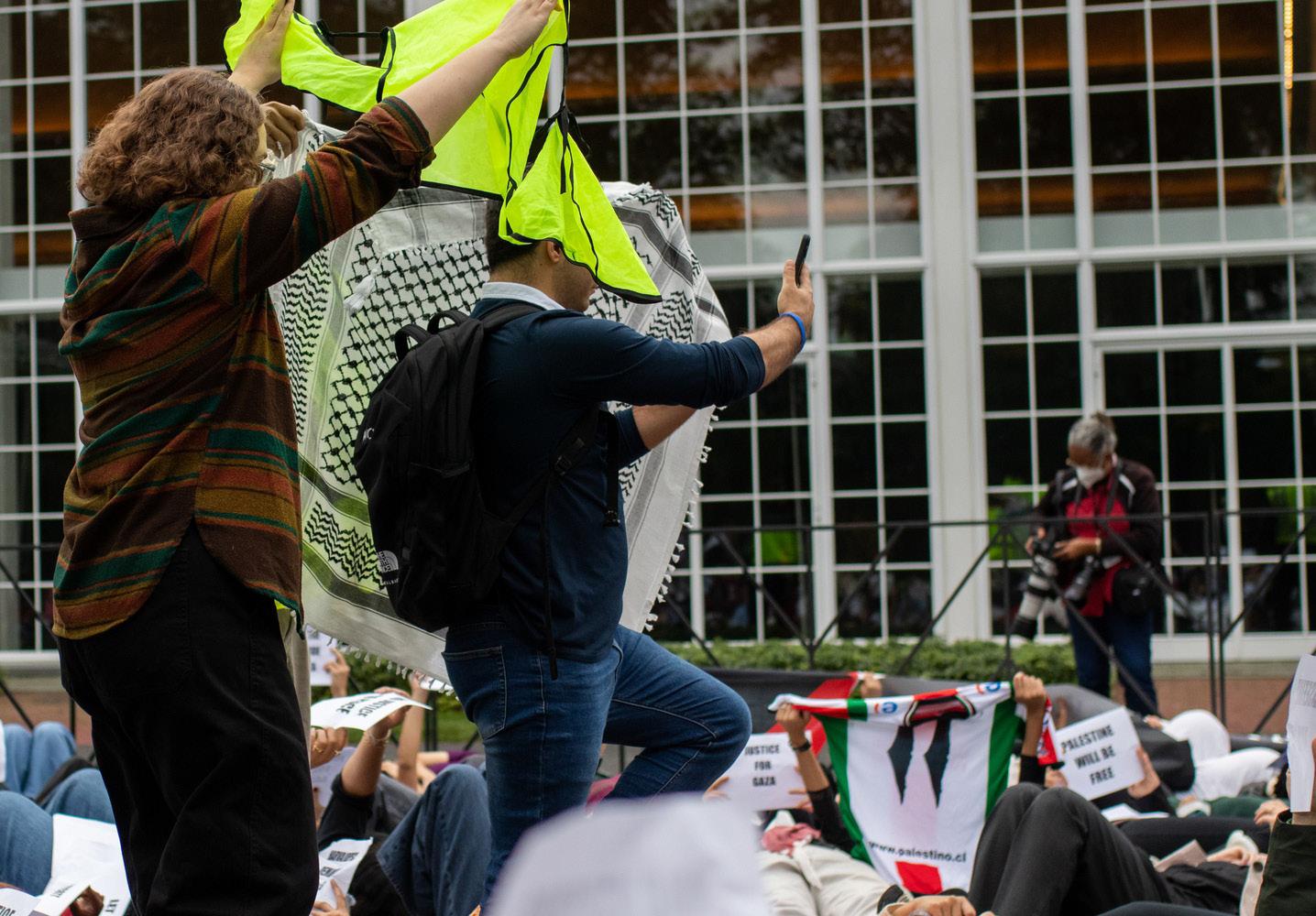
HOUSING. The City Council will vote on abolishing single-family zoning.
BY LAUREL M. SHUGART CRIMSON STAFF WRITERThe proposal to abolish single-family zoning in Cambridge is moving forward through the City Council, heralding a radical shift in the city’s housing policy.
In a meeting May 8, the Council’s Housing Committee unanimously voted to begin working with the city’s Community Development Department to draft a zoning proposal that will allow for multifamily zoning across Cambridge.
Though the proposal must be approved by the full Council, the unanimous endorsement of the Housing Committee — whose five members already constitute a majority in the nine-member body — indicates that the proposal is all but certain to be adopted.
Nearly one-third of residential land in Cambridge is zoned for single-family and two-family houses, which advocates, academics, and city officials say has contributed to the city’s shortage of affordable housing.
Harvard Economics professor Jason Furman ’92, formerly a top economist in the Obama administration, testified at the meeting in support of the order.
“I think this is the biggest piece of the puzzle when it comes to housing in Cambridge. No policy is going to work if there’s not enough housing,” Furman said in an interview.
While many critics of multifamily zoning suggest other ways for the city to increase housing supply, city officials said Cambridge has already exhausted many other avenues to do so.
“The big move that created the greatest amount of new housing was to allow residential develop-

The City Council unanimously adopted a policy order on May 13 supporting state legislation to legalize overdose prevention centers statewide and asked City Manager Yi-An Huang ’05 to determine the city’s “willingness to consider hosting an OPC in Cambridge.”
Both the Massachusetts State House and Senate are considering bills to allow for the development of OPCs — facilities where individuals with pre-obtained drugs can consume them under the supervision of trained health care workers — in an effort to address the more
than 25,000 overdose fatalities that have occurred in Massachusetts since 2000.
Vice Mayor Marc C. McGovern, one of the sponsors of the policy order, began the discussion with an amendment to make the policy order’s language less committal, replacing a commitment to the development of the facilities with language to allow Cambridge to begin discussions about OPCs with community stakeholders. He said his desire to see OPCs in Cambridge came from personal experience.
“From the month of February to April of this year, just in about two and a half months, I lost two people very close to me from
requests
of 8.1 percent — compared to the past fiscal year. The
overdoses,” McGovern said, after beginning discussion with an amended version of the policy order.
In Cambridge, the city’s most recently available data on overdose deaths found that there had been 80 drug overdoses during the four-year period from 2019 to 2022.
“If 20 people a year were dying from anything else, people would be storming City Hall demanding that we do something,” McGovern said, “and when it comes to overdose deaths, it’s crickets.”
“If I filed a policy order about crickets, I would probably actually get a better response,” he added.
While OPCs have been oper-
capital budget, however, represents a decrease of more than 50 percent from FY24.
The FY25 budget process follows longtime complaints from the Council that they felt shut out of the process under former city managers — a dynamic Huang pledged to
ating for several years in Canada, Australia, and across Europe, similar legislation across the United States has been highly contentious, and the controversial policy is only currently being implemented in Minnesota, New York, and Rhode Island.
However, according to the policy order, this past December, the Massachusetts Department of Public Health endorsed OPCs as an “evidence-based, valuable harm reduction service.”
Cambridge resident Emily Tixier, a physician at Massachusetts General Hospital, said her experience with harm reduction specialists has shown her the benefits of OPCs.
change when he was first appointed to the post in September 2022.
“Every overdose death is preventable,” Tixier said, “and no overdose death has ever occurred at an overdose prevention center in the 30 years of operation that these have existed.”
Other Cambridge residents in support of the policy order — including Charles J. Franklin, who ran for City Council in 2019 — spoke of the personal impact of overdose deaths.
“I don’t think I know a single person who has been untouched by the addiction epidemic in some way, myself included,” said Franklin, whose cousin died of a drug overdose in 2019.
“Addiction is an illness to be treated. Not a crime,” Franklin add-
to date, has provided financing for 2,600 affordable rental and homeownership units.
ed. McGovern said the city would not need to use tax revenue to pay for the centers, as it has “millions, tens of millions of dollars” from Massachusetts’ statewide settlements with opioid distributors like Johnson & Johnson, Walmart, CVS, and Walgreens. Since 2021, the state has collected $106 million.
“Someone emailed me and said ‘Wow, this is really a crusade of yours,’” McGovern said.
“Well, if it’s a crusade to try and keep folks struggling with substance use addiction alive, then I will wear that patch,” he added.
avani.rai@thecrimson.com
Claire B. Spinner, the assistant city manager for fiscal affairs, said the budget creation process — which she called one of the city’s “major responsibilities” — was greatly aided by the support of Nolan and fellow Councilor Joan F. Pickett, who served as the second co-chair of the Finance Committee. “They were quite collaborative,” Spinner said. “It was very helpful to be able to meet with them ahead of each of those meetings, and I think it made those meetings more substantive.” City

Councilor Patty M. Nolan ’80, who co-chairs the Council’s Finance Committee, thanked the city manager’s team for their efforts in including the Council and Cambridge residents on budget discussions, highlighting the difference from past years.
“I do appreciate the way that we are evolving this process to include the Council earlier on to ensure that we’re having discussions in a way that is inclusive of both the Council and the larger community,” Nolan said. “We did it earlier this year. And then we’re hoping next year, we’ll do it even earlier.”
The City specifically committed $216 million to five key priority areas identified by the Council and Cambridge community at large. These initiatives broadly address climate and sustainability, affordable housing and homelessness, early childhood, traffic safety, and anti-racism, equity, and inclusion.
Of the identified priorities, the most city funding — $73 million — will go toward the city’s climate and sustainability initiatives, which include climate resilience and net zero projects.
The city’s single most expensive line item is $41 million to its Affordable Housing Trust Fund, which,
The budget also includes a $34 million allocation to Cambridge’s universal preschool program, set to open in September. The city also proposed more than $23 million in additional funding for Cambridge Public Schools, a 9.5 percent increase to the school department’s budget.
Still, Nolan said there were difficult decisions to be made that were “particularly important this year” before the budget’s eventual adoption.
“There will be trade-offs to be made, which — frankly — the city has not really had to face the last 10 years due to the explosive growth that we saw,” Nolan said.
“There’s many projects in here we’d all love to do,” Nolan said, referencing “reservations” she held regarding the city’s additional loan order requests. “We also recognize that there will have to be choices made,” she added.
Nolan said she was largely concerned about the city’s proposed “capital investments,” as the Council has yet to “actually vet” the orders forwarded by the City Manager.
“There are some projects that may have to be amended, or the scope may have to be changed,” she said. The City Council is expected to vote on budget adoption and loan order approval on June 5, after three public Finance Committee hearings on the proposals in May.
Owen O’Riordan, the deputy city manager, said these meetings would be especially important for the city to justify the importance of their proposals to the public. Responding to Nolan’s concerns regarding the loan orders, O’Riordan emphasized that the request of $36 million was a “significant reduction” from the City’s planned loan order amount of $100 million that had been indicated in the 2024 budget.
PROTEST. The City Council passed a resolution supporting pro-Palestine student protesters’ rights.
The Cambridge City Council passed a resolution urging Harvard, MIT, and the Cambridge Police Department to respect the right of pro-Palestine students to protest during a meeting May 6. At Harvard, where a pro-Palestine encampment lasted for 20 days, protests remained peaceful and CPD was notinvolved — al-
though CPD officers were present at a march to the home of interim University President Alan M. Garber ’76 on May 6. Things escalated more at MIT, where protesters — disregarding a mandate to take down the encampment by May 6 or risk suspension — tore down a fence encircling an encampment and sporadically clashed with MIT police.
The resolution, which passed with the support of seven of the Council’s nine members, urges “the City Manager and the administrators of MIT and Harvard to respect the right of students to advocate for an immediate ceasefire in Gaza and to protest the believed
complicity of their academic institutions and government with the atrocities being endured by the people of Gaza.”
The resolution also asks the universities’ leaders to abide by guidelines expressed in an April open letter from the American Civil Liberties Union. Before the encampment began, Garber said that while a police response remains an option, it would require a “high bar.” HUPD
Chief Victor A. Clay also affirmed the student’s rights to peaceful protest in an interview with the Crimson.
But on May 6, Garber threatened the protesters with “involuntary leave” if they continue the en-
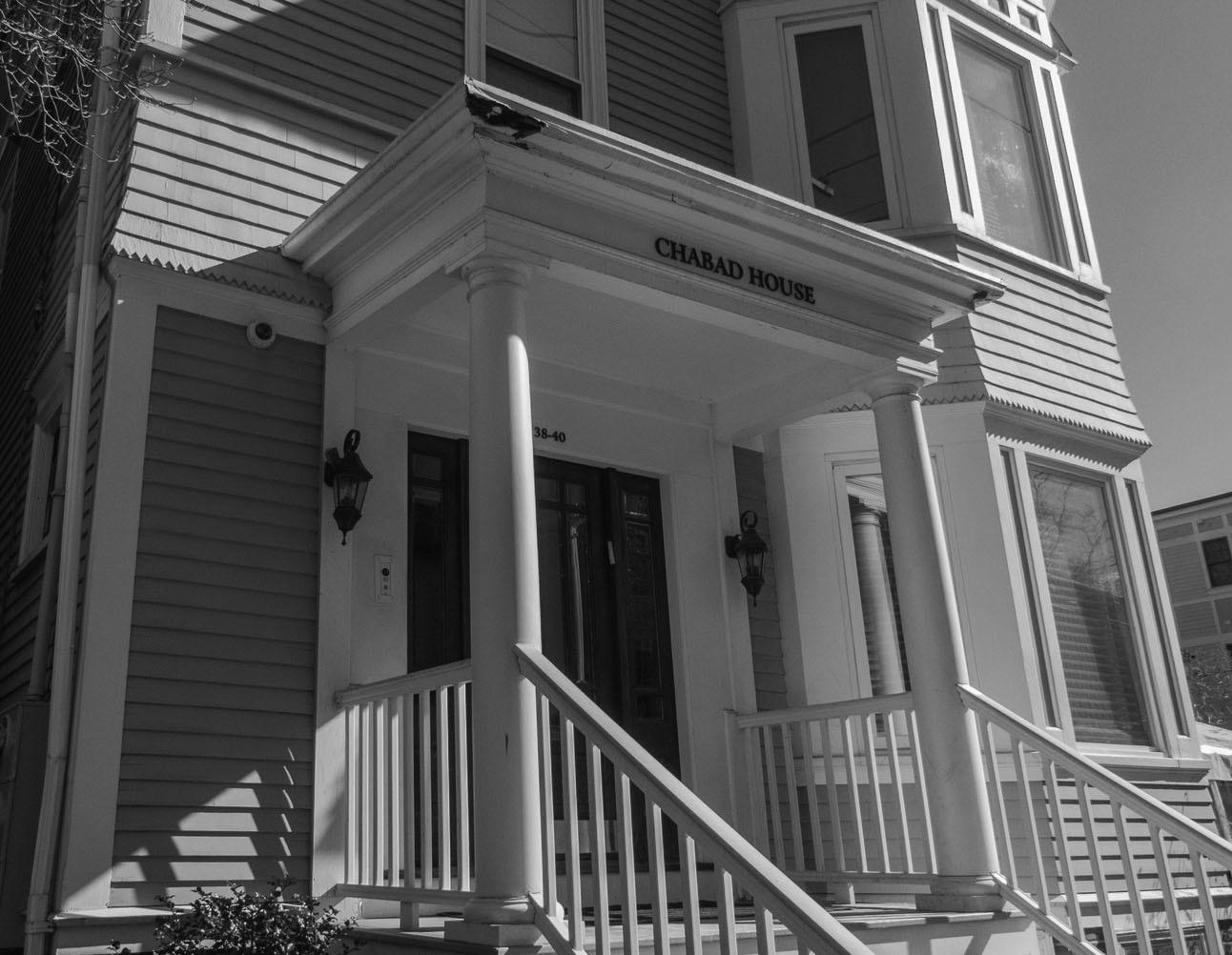
A proposal to dramatically expand Harvard Chabad’s Banks Street headquarters failed to win approval from the Cambridge Board of Zoning Appeals during a contentious public hearing May 9.
The rejection leaves the Jewish student organization to revise and clarify the proposal before a follow-up hearing in June. The proposed expansion has sparked concerns from neighbors and BZA members alike about the dramatic increase in size and its effects on quality-of-life in the area.
Chabad is proposing to consolidate two historic buildings into a larger congregation space, which would significantly exceed the density and size currently permitted by the city’s zoning code and requires permission from the BZA.
The expansion would add more than 7,000 square feet to the space’s current footprint.
Rabbi Hirschy Zarchi, the organization’s founder and president, said May 8 that Chabad outgrew its indoor capacity once it began serving hundreds of Harvard affiliates and community members in an outdoor tent at the onset of the Covid-19 pandemic. He added that outdoor programming poses risks for Chabad members and visitors at a time of
BY DARCY G SCHWARTZmounting concerns around antisemitism at Harvard and on college campuses. The University is currently facing a lawsuit and a congressional investigation over allegations of antisemitism on campus.
“Sitting outdoors all the time is a vulnerable place to be right now — very exposed, both to the weather, but also to elements that makes it difficult to properly secure. So the urgency to create a secure safe space for community to gather and to convene is more than critical,” Zarchi said.
However, the proposed renovation has faced consistent opposition from residents, largely from the Kerry’s Corner Neighborhood Association — many members of which spoke at the BZA hearing.
Residents raised concerns about the size of the development in addition to a number of smaller issues, like noise levels, trash disposal, and increased car traffic. Zarchi listed a number of solutions to the complaints, including hiring an outside company for trash removal.
“We aspire to be a good neighbor,” Zarchi said during the meeting.
“So immediately when we hear concerns,” he said, “we try to address it immediately.”
But the Board members were stuck on the size of the development, which nearly doubles the permitted density.
“I feel it is a detriment to the neighborhood, and I think some
of the neighbors have talked about that in terms of scale and compatibility with the other size of structures within the neighborhood,” said Chair Jim Monteverde.
Though the proposed expansion won approval from the city’s Historical Commission — which reviews permits for developments or renovations in historic areas but does not evaluate zoning issues — the BZA represents the most significant hurdle for the project to move forward.
As the meeting drew to a close, three of the five voting Board members indicated they remained opposed to the proposal.
Chabad opted to request a continuance of the meeting until mid-June rather than have the project go to a vote. If the Board voted against the proposal, Chabad would have to wait two years before reapplying.
Zarchi said the organization will spend the next few weeks clarifying technicalities in the language of the proposal to address concerns raised in the hearing, including a better explanation of why the organization is pursuing such a large-scale expansion.
“We’re going to utilize the opportunity to clarify some misrepresentations in some areas that seem to be unclear about the merits of our project,” Zarchi said in an interview following the hearing.
campment on campus — raising the possibility of police involvement.
Harvard and MIT spokespeople did not respond to requests for comment.
The resolution is the second major vote this year relating to the Israel-Hamas war. In late January, the Council unanimously adopted a resolution urging a ceasefire in Gaza.
Councilor Ayesha M. Wilson, one of the resolution’s sponsors, stressed the importance of supporting the right to peaceful protest.
“We must ensure that those exercising their rights to free speech are met with dignity and respect, not criminalization,” Wilson said,
quoting a press release from Rep. Ayanna S. Pressley (D-Mass.), who visited the Harvard Yard encampment last month.
In an April 26 interview, Mayor E. Denise Simmons said that Cambridge should “try to be better” than Boston, where police have arrested students involved in encampments at Northeastern University and Emerson College.
“I stand by the law enforcement department because they have really worked overtime, in my opinion, toward de-escalation,” Simmons said.
During the meeting, Councilor Patty M. Nolan ’80 successfully lobbied the Council to amend the resolution to describe the protests as
“largely peaceful” rather than simply, “peaceful.”
“At Harvard, the signs and the chants have also called for the total erasure of Israel,” Nolan said. “It is largely peaceful, but it has not been wholly peaceful.”
Vice Mayor Marc C. McGovern said that the focus of this resolution is to prevent protests from escalating, like they have at universities across the country.
“This isn’t even really about whether we send the police in,” McGovern said. “What this order is talking about is, ‘if that’s going to happen, let’s do it in a way that doesn’t escalate things.’”
Cambridge Public Schools and Police Department officials said last month’s incident of a police officer accidentally discharging a gun in a Cambridge Rindge and Latin School bathroom was “unacceptable” and pledged accountability during a School Committee meeting May 7.
CPD Commissioner Christine A. Elow said that the department uncovered “policy violations” in its investigation into the accidental discharge.
“This was not OK. This was avoidable. This never should have happened,” Elow said.
CPS Chief Operations Officer David Murphy called the accidental discharge an “unacceptable incident” and said that the incident has “compelled us to take a long hard look at the program” to make sure it is achieving its goals.
Still, the incident is not likely to lead to armed officers being removed from Cambridge’s public schools.
The partnership between CPS and CPD to place Youth Resource Officers in schools is required by state law. YROs serve not to discipline students, but to investigate possible criminal acts and to respond to particularly unsafe situations, according to a memorandum of understanding outlining their responsibilities.
While in a staff bathroom at CRLS on April 2, longtime CPS officer Frank Greenidge took his gun out of the holster and hung it on a hook which “caused the firearm to discharge,” Elow said.
Elow said that taking the gun out of the holster was a violation of CPD policies.
“As a police department we are taking these violations very seriously,” Elow said.
Elow also said that Greenidge has taken “full responsibility” for violating the policies and is currently on administrative leave.
Although during public comment two parents expressed concerns about having armed officers in schools, Elow said that because YROs are trained police officers, they “need to have their service weapons to be prepared to respond to any emergency that may come.”
CPD representatives also said the department has worked to make YROs “more inviting, more acceptable” within Cambridge schools.
At the beginning of the school year last year, YROs wore new uniforms, designed to “soften” their look, Elow said. New uniforms feature a polo with a falcon on the back, no patches, and with the officer’s badge stitched on.
“To us, that was a huge thing. The YROs were excited, elementary schoolers were excited when YROs were in schools,” CPD Deputy Superintendent Steven Magalhaes said about the uniform redesign.
Officers and committee members also shared anecdotes of instances where YROs’ relationships with students allowed for a more personal approach to managing juvenile crime prevention.
“The research is very clear that having a school climate where especially young people trust the adults — teacher, staff, and police — to talk about when they are concerned about something a peer has
posted or said is the number one preventative factor in that space,” said James Barrett, CPD director of clinical support services and an assistant professor at the Harvard Medical School.
CPD Superintendent Frederick Cabral added that the YRO program has diverted young people from the criminal justice system.
“We’ve actually changed the culture of the Cambridge Police Department,” he said. “You don’t drop juvenile arrest by 80 percent without changing the culture of policing. Our YROs, especially, see themselves as the gatekeepers to the juvenile justice system.”
Still, School Committee members Elizabeth C.P. Hudson and Richard Harding Jr. emphasized the importance of clearly communicating the roles, successes, and “basic facts” pertaining to YROs’ presence in schools with a community distressed over the recent incident.
School Committee student representatives echoed their sentiments, suggesting district leaders and CPD representatives engage in a similar panel for students at CRLS.
“People have a lot of questions about why we have guns in the school, why we have police officers, and I think students would really benefit a lot from hearing from these police officers and everybody here and being able to pose questions,” student representative Naseem Anjaria said.
“It’s all about information and that will help people feel safer in our schools,” student representative Jeanne Alailima said.
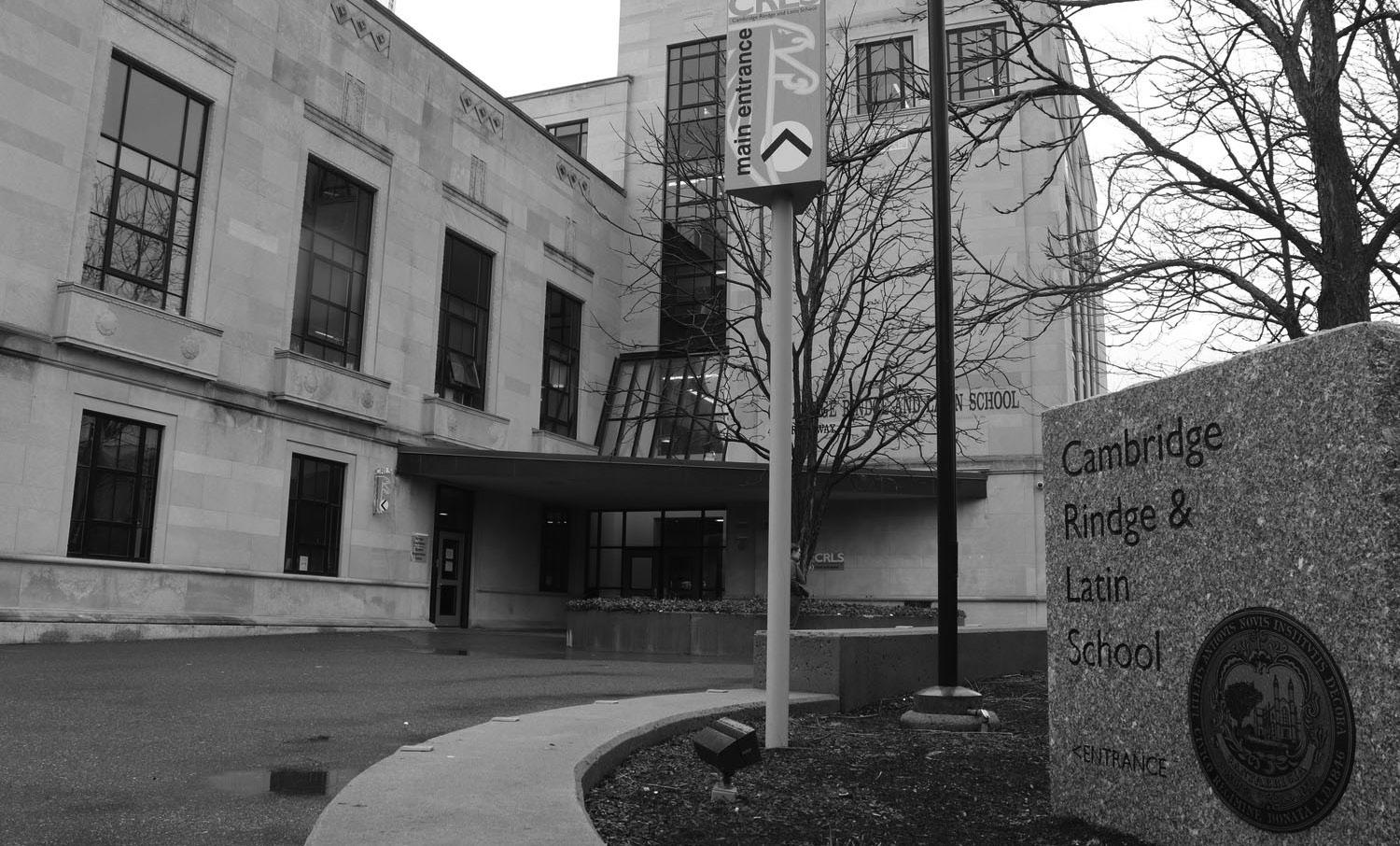
English Language Arts component of the 2023 Massachusetts Comprehensive Assessment System test. Their white peers scored 43 percentage points higher, on average, on the same portion of the test.
“This investment marks a critical step towards closing the persistent gaps in reading outcomes that exist between student demographic groups,” according to a May 13 CPS press release.
According to the press release, CPS chose Amplify Core Knowledge Language Arts (2nd Edition) as the new ELA curriculum after a “thorough selection process involving a cross-section of educators, instructional coaches, administrators and interdisciplinary leaders.”
Amplify CKLA will — for the first time in CPS history — align curriculum for grades one through five for all 12 CPS elementary schools. The curriculum incorporates “science of reading” research, which emphasizes five key components of phonics, phonemic awareness, fluency, vocabulary and comprehension.
The ELA curriculum follows a shift to provide more standard curricula across the district.
Last May, CPS implement-
ed Illustrative Math, a standard math curriculum, across grades K-12, and last September, the district standardized Algebra 1 curricula across the district’s middle schools. CPS will also extend the school day by 30 minutes across elementary and middle schools, in an initiative titled “More Minutes for the Mind,” following negotiations with the Cambridge Educators Association that were ratified last December.
Prior to the curriculum’s September launch, CPS’ ELA Department will work alongside educators to align the Amplify CKLA curriculum with CPS standards for “instructional minutes, program models, and expectations for culturally and linguistically sustaining instruction,” CPS Director of ELA/Literacy Emily Bryan said in the press release.
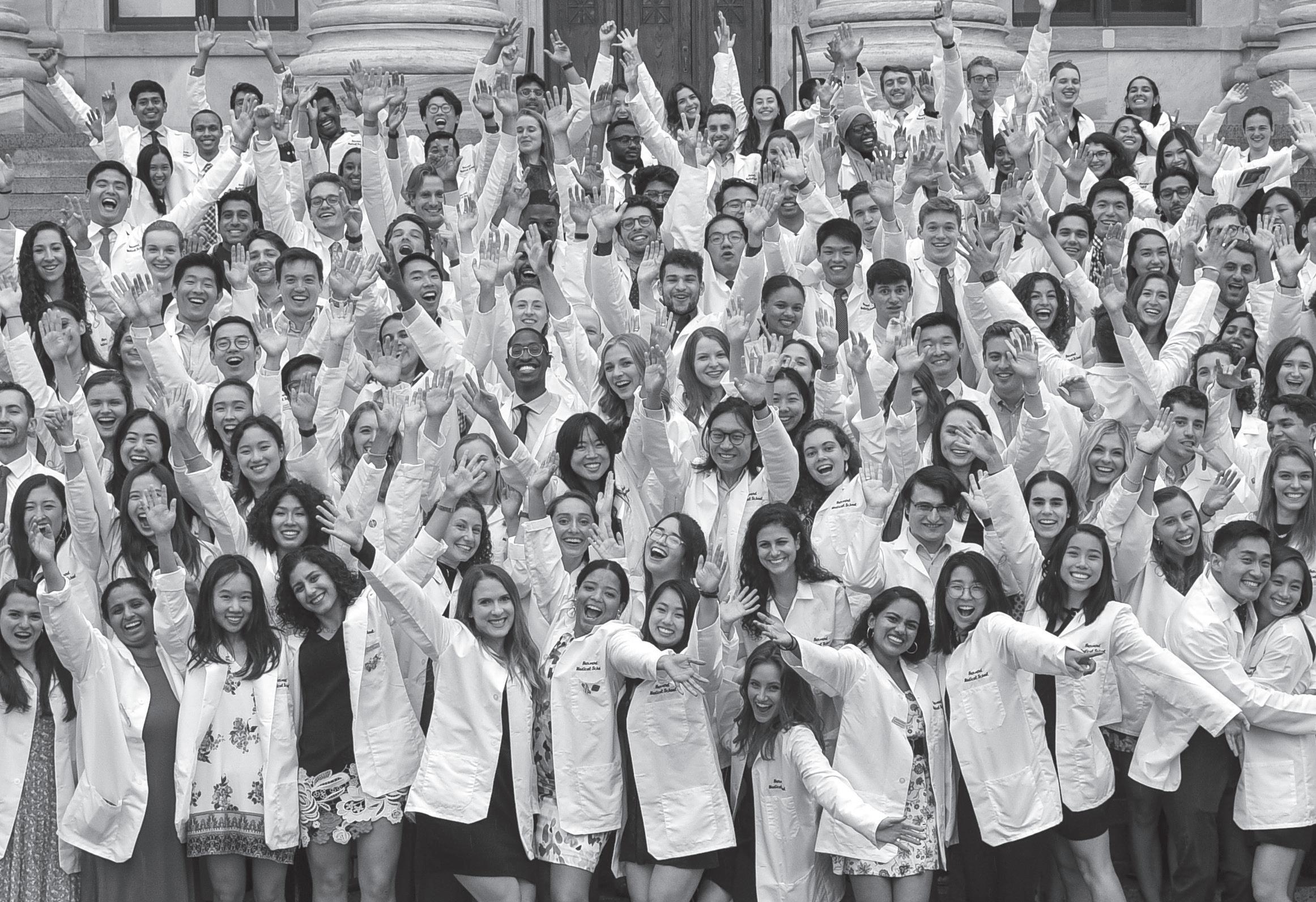
You’ve just joined the ranks of nearly 10,000 HMS MD alumni who are committed to helping people live longer, healthier lives.
Attend alumni events
Volunteer for your class
Advise a current MD student
Give back to HMS
Stay connected and get involved alumni.hms.harvard.edu/connect



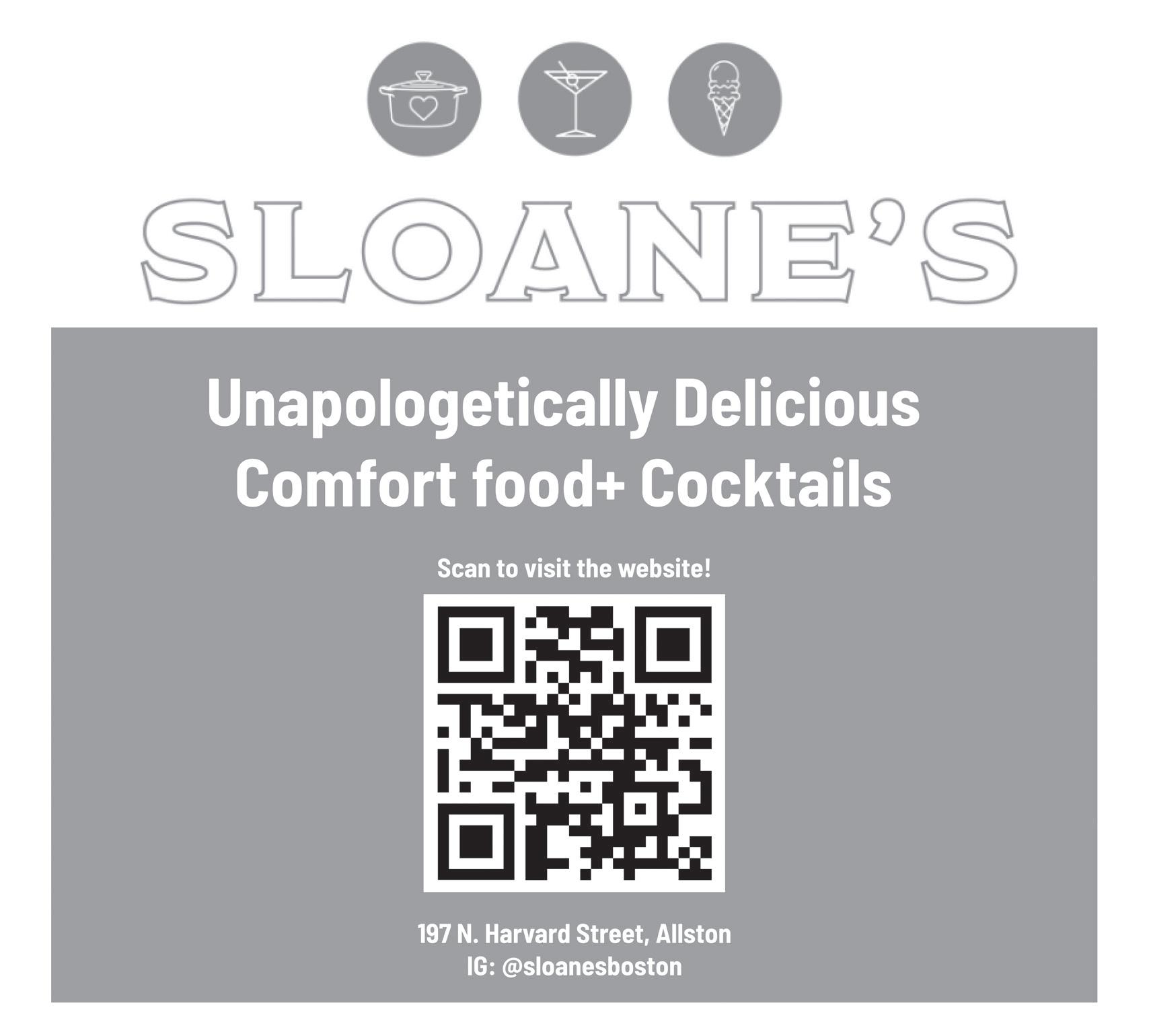

Congratulations to the Class of 2024!
May your journeys be blessed with wisdom, success, and fulfillment. Go forth and illuminate the world!
We honor our exceptional student leaders who served on the Harvard Chabad Undergraduate Student Board. You inspired and uplifted our community. Thank you for your dedication and commitment to the Jewish people and Israel!
Abe Atwood, Julia Blank, Carli Cooperstein (Student President), Aidan Golub, Ari Hilibrand, Kate Klein, Ben Landau (Student President), Ben Schwartz, and Sam Silverstein
Harvard Chabad Leadership
Rabbi Hirschy Zarchi
Founder and President, Harvard Chabad Center for Jewish Life
Jackie and Omri Dahan Harvard Chabad Jewish Chaplain
Elkie Zarchi
Founder and Director
Mendy and Nana Raskin
Programming and Branding
Rabbi Berel Feldman College Campus Rabbi
Rabbi Mendel and Rivkah Zarchi Graduate Student Community
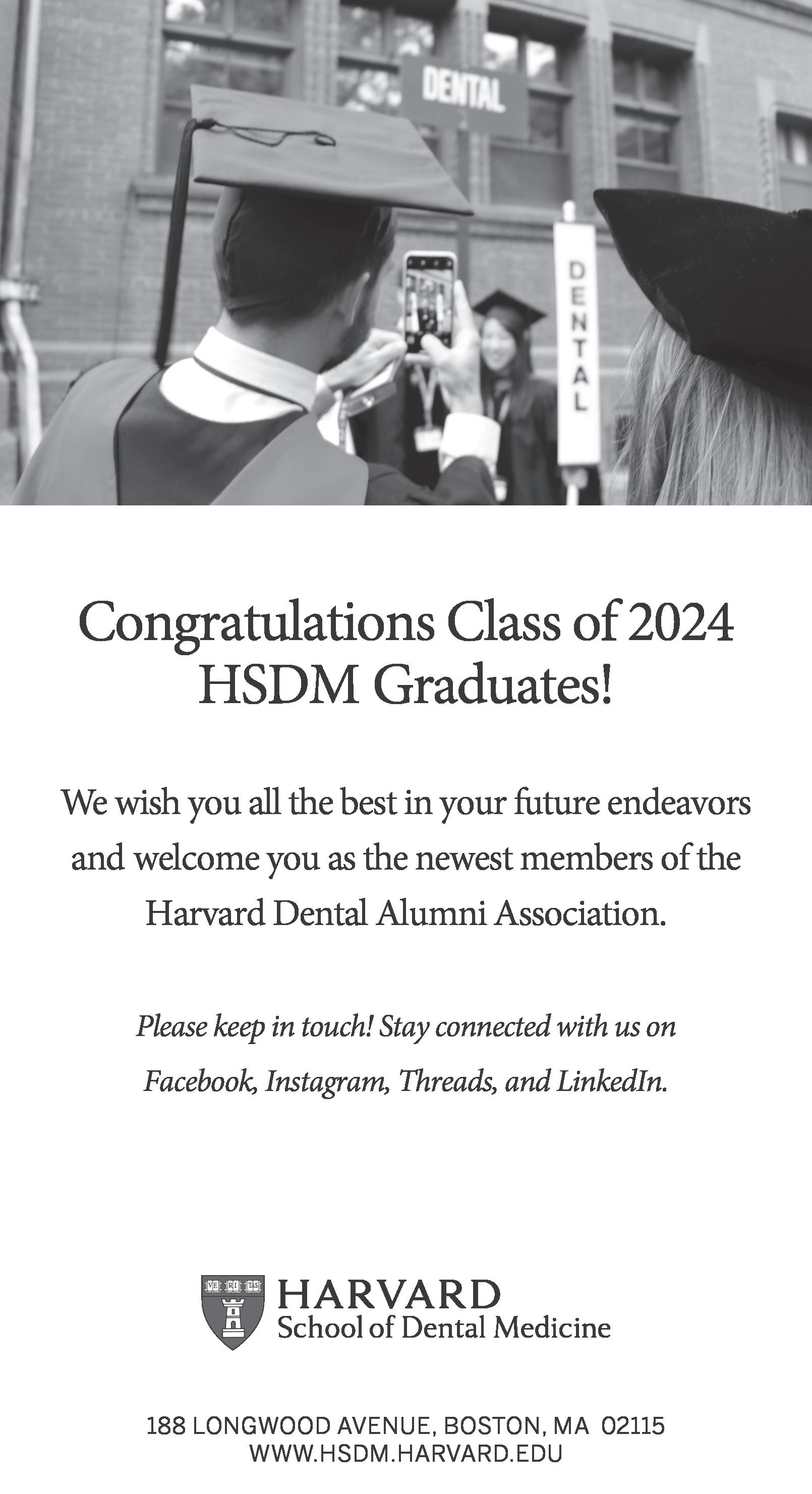
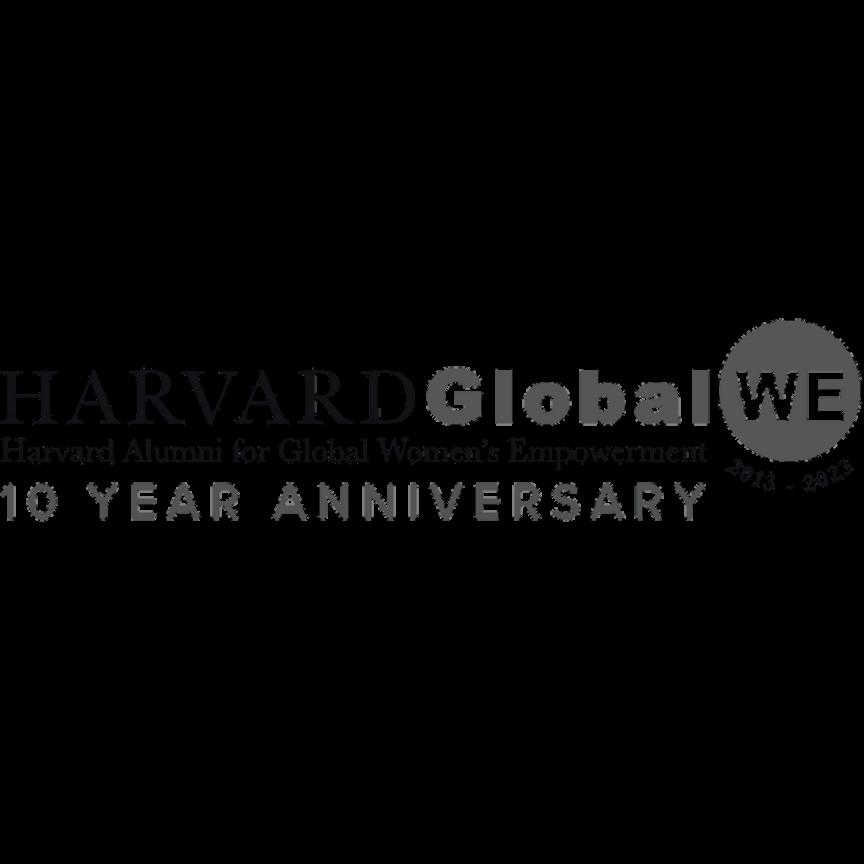
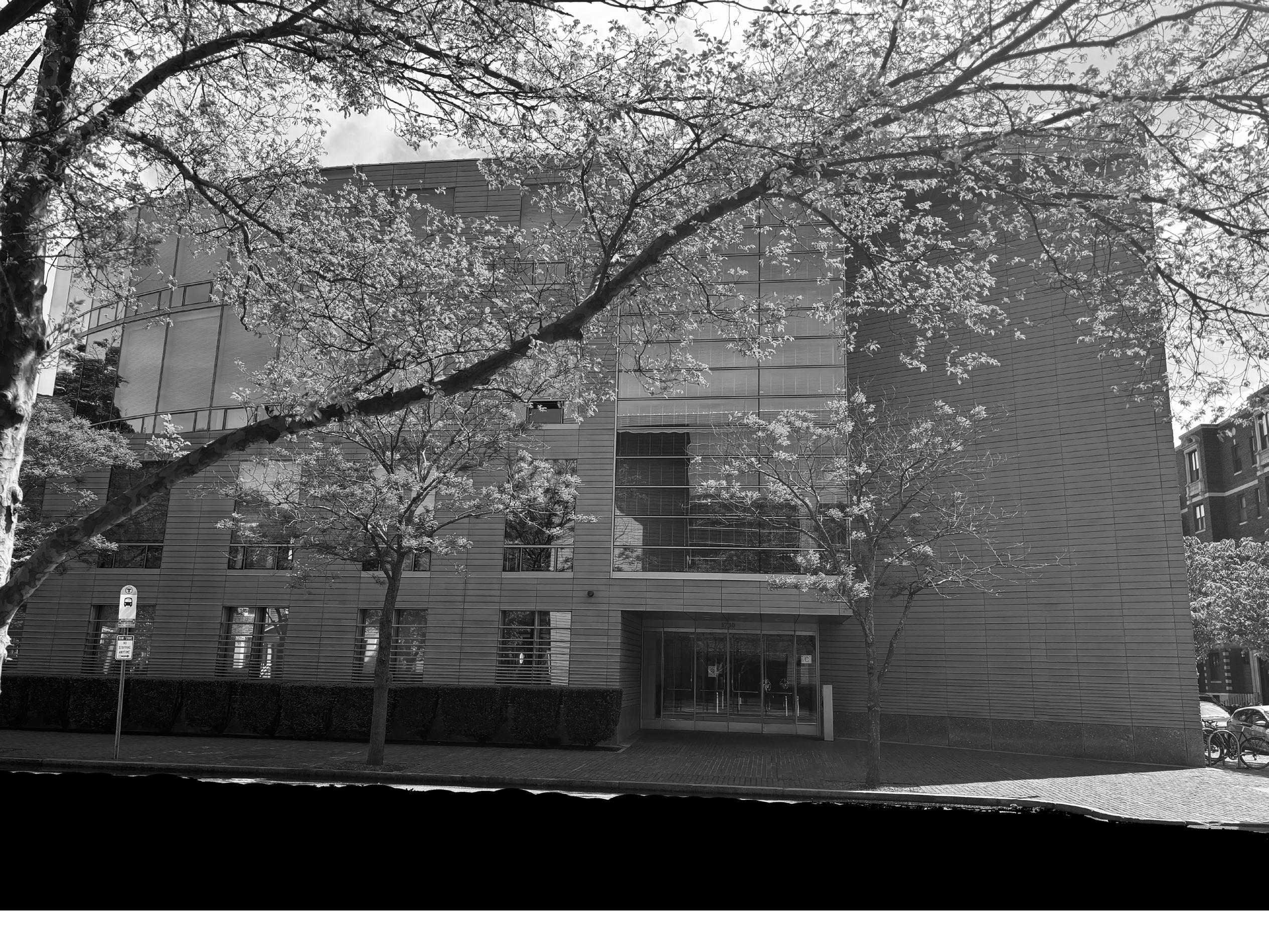


Harvard Alumni for Global Women's Empowerment is a shared interest group of the Harvard Alumni Association. We are excited to be celebrating our 10th anniversary this year! GlobalWE is dedicated to the empowerment of women through education, dialogue and connection among individuals working for women's rights and freedoms worldwide.




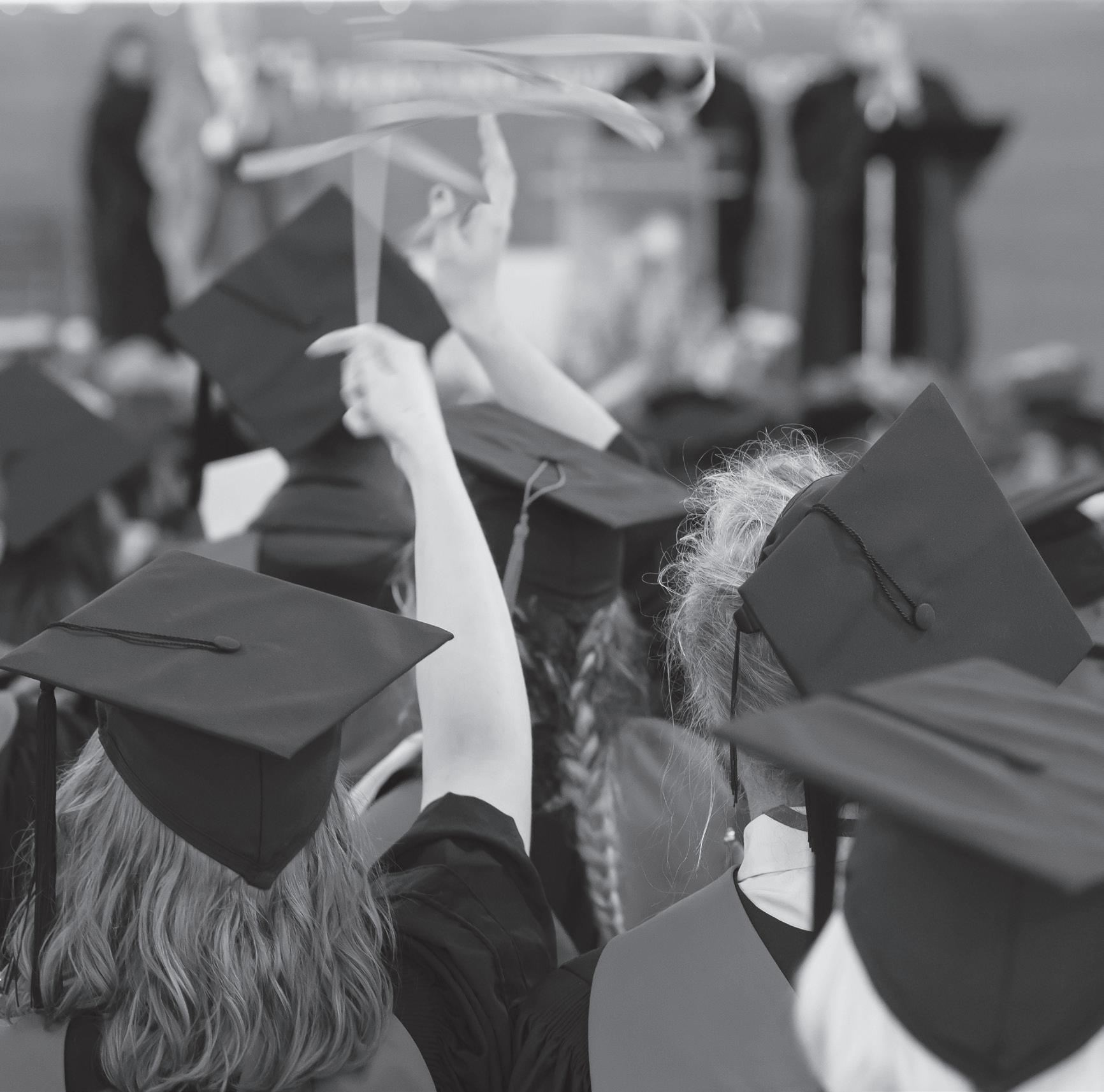
Congratulations to the 2024 Graduates of
The Faculty, Staff, and Students of HDS Honor Our Degree Recipients Congratulations Class of 2024
FACULTY SURVEY.
Respondents
BY TILLY R. ROBINSON AND NEIL H. SHAH CRIMSON STAFF WRITERSHarvard’s Faculty of Arts and Sciences is broadly pessimistic about the current state of academic freedom at the University, according to The Crimson’s annual FAS survey.
Respondents overwhelmingly backed calls for Harvard to adopt an institutional neutrality policy and were largely troubled by perceived donor and politician influence at the University.
A longstanding worry among faculty in some quarters, academic freedom was quickly pushed to the forefront of campus discussions as the University faced repeated attacks from outside actors during an unruly winter. The Council on Academic Freedom at Harvard, for instance, grew from about 70 members when it formed last March to more than 180 as of Monday.
In response to growing concerns, the University took several steps to promote civil discourse and strengthen Harvard’s academic culture, including two working groups on free expression and institutional voice formed in April by interim Harvard President Alan M. Garber ’76.
But the survey results suggest that Harvard still has a ways to go.
The Crimson’s FAS survey was distributed to more than 1,400 faculty members, including both tenure-track and non-tenure-track faculty, with names collected from the FAS’ public masthead. Faculty were polled on demographic information, politics, and campus issues. The email survey had 508 responses, with 310 fully completed and 198 partially completed. The survey was open for two weeks, from April 3 to April 17.
This is the third installment in a series of pieces on the survey results. The first two installments covered faculty perspectives on the conflict in Gaza and Harvard’s governance. This installment focuses on the FAS’ views on academic freedom at the University. University spokesperson Jonathan L. Swain and FAS spokesperson Holly J. Jensen declined to comment for this article.
Threats to Free Expression
Most respondents gave a grim diagnosis of the state of academic freedom at Harvard.
Even as faculty identified outside pressure as a major danger to academic freedom at Harvard, many expressed persistent concern about cultures of self-censorship and intolerance on campus as well.
A 57.1 percent majority of respondents said they felt poorly about the state of academic freedom at Harvard, with 39.0 percent answering that they felt “somewhat negatively” and 18.2 percent indicating they felt “negatively.”
Only 25 percent of respondents, on the other hand, expressed some level of positivity about academic freedom at the school, with the remaining 17.9 percent declining to opine. However, to respondents, Harvard is faring much better than its peers. A larger majority of respondents — more than 72 percent — expressed alarm at the state of academic freedom across American higher education.
Most respondents laid the blame for their academic freedom woes at the feet of the political right. A slim majority of respondents, 50.8 percent, said they thought academic freedom was threatened more by the political right, compared to 26.3 percent who said they thought it was more threatened by the left. Just more than 20 percent said they thought “neither the left nor the right” represented the greater threat, while less than 3 percent said academic freedom was not under attack.
A significant majority of respondents also said Harvard should adopt a policy of institutional neutrality, a proposal which has grown in popularity following the University’s year of controversy. Proponents of institutional neu-
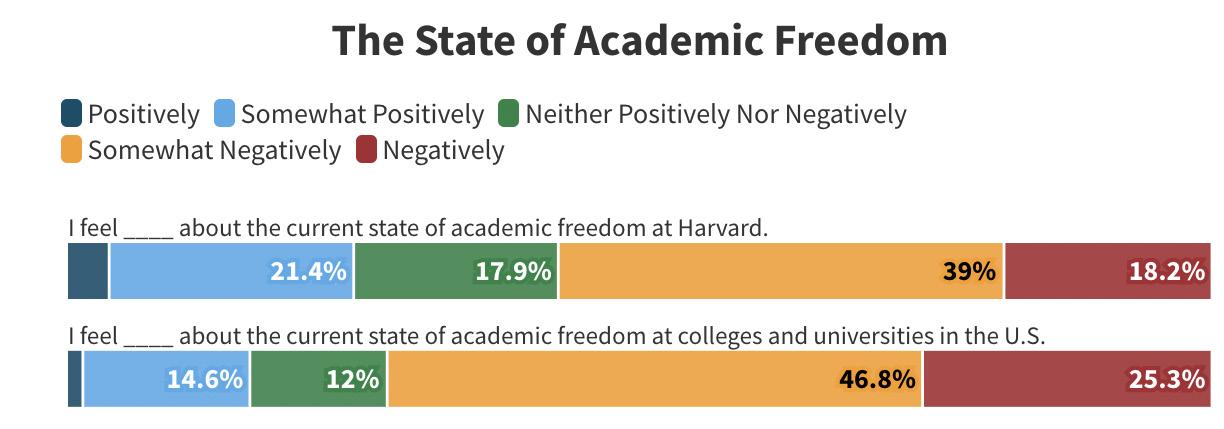
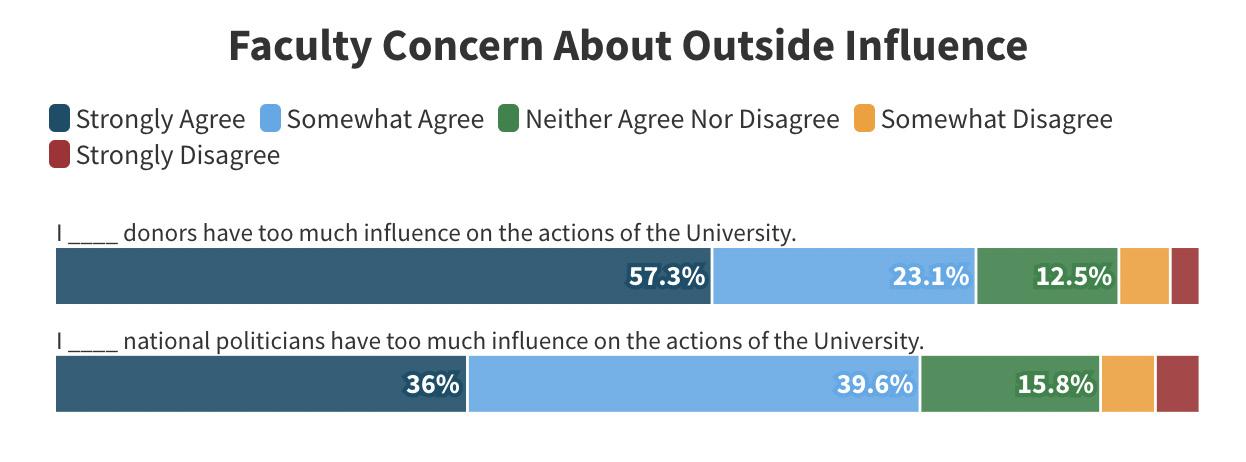
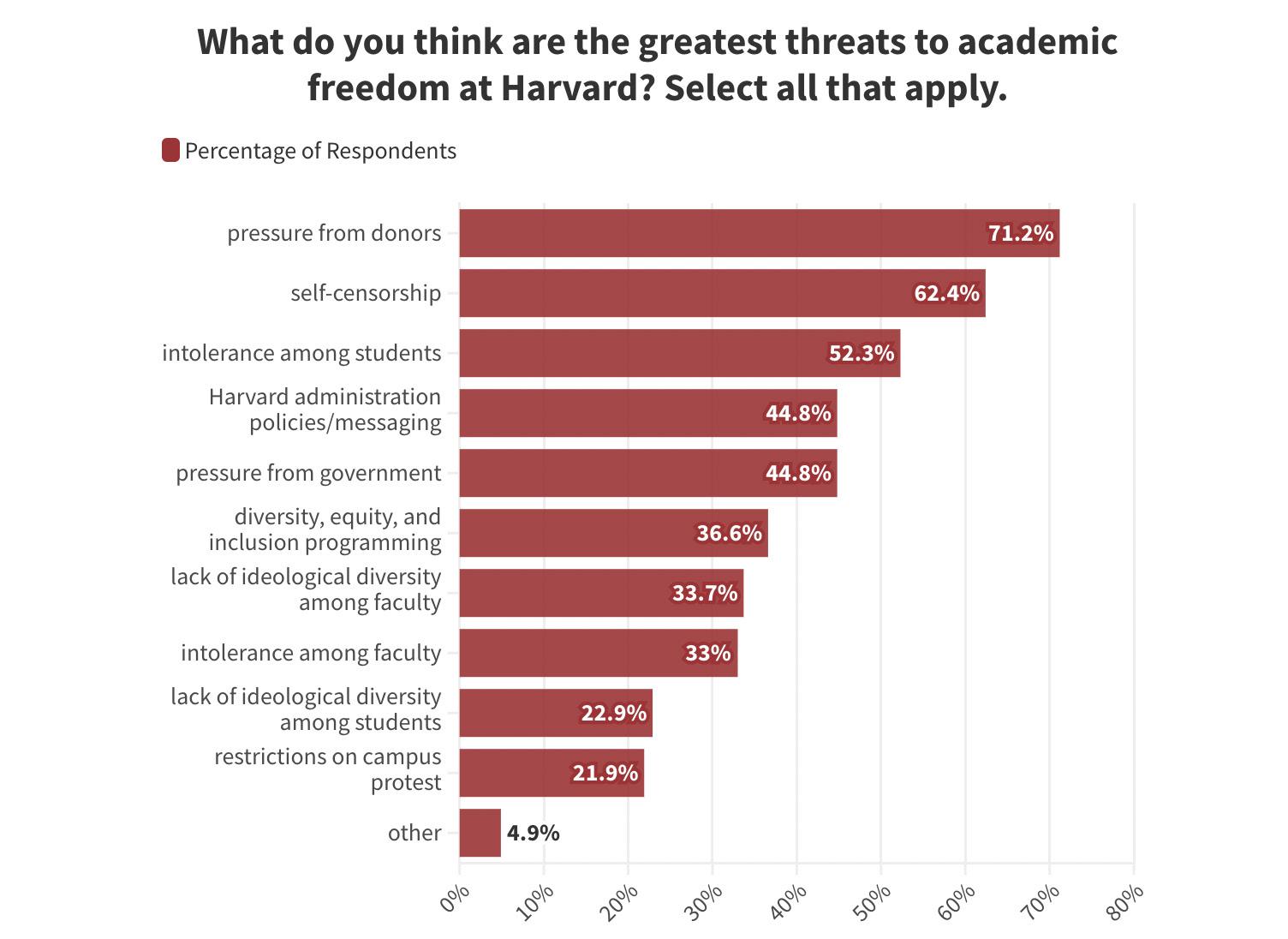
trality have argued that political statements by universities reduce the scope of open debate on campus by signaling that their institution has adopted an official position.
More than 70 percent of respondents said they thought Harvard should adopt a policy of institutional neutrality, with 43.5 percent saying they “strongly support” and another 26.6 percent saying they “somewhat support” the idea.
Another question asked respondents to select which of 10 options they perceived as the “greatest threats to academic freedom at Harvard.”
Faculty expressed concern about factors closer to home, with 62.4 percent of respondents listing self-censorship as one of the greatest threats to academic freedom at Harvard. Just over half — 52.3 percent — considered intolerance among students one of the greatest threats. However, fewer respondents — only 22.9 percent — cited lack of ideological diversity among students.
Around a third of respondents said that intolerance among faculty and lack of ideological diversity among faculty, respectively, represented threats to academic freedom.
And, nearly 45 percent of respondents described the effects of policies and messaging from Harvard’s administration as one of the greatest threats to academic freedom, while almost 37 percent said diversity, equity, and inclusion programming stifled free expression and discourse.
After more than 20 undergraduates were put on probation and five were suspended by the Harvard College Administrative Board for their participation in the 20-day pro-Palestine encamp-
ment in Harvard Yard, some faculty slammed the disciplinary measures and said they represent a double standard against pro-Palestine speech.
But the survey results, collected prior to the encampment, suggest penalties for student protest do not crack the top of the list of concerns: only 21.9 percent of respondents considered restrictions on campus protest among the greatest threats to academic freedom.
To respondents, however, the greatest threats to academic freedom at Harvard come from outside the University’s gates.
Pressure from donors was the most commonly-cited concern, named by 71.2 percent of respondents as among the greatest threats to academic freedom at the University.
Harvard has faced a wave of donor backlash since Oct. 7 — including from big-name benefactors like businessman Leonard V. Blavatnik and hedge fund managers Kenneth C. Griffin ’89 and Bill A. Ackman ’88, who felt the University allowed campus antisemitism to spread largely unfettered.
They’ve signaled they want Harvard to pay attention to their advice.
“Many wealthy donors have valuable insight into transformation and improvement strategies that are clearly needed at this time,” Griffin told the Financial Times in a May interview.
Though it is unclear to what extent donors’ demands have affected Harvard’s response to recent crises, a decisive majority of respondents indicated concern about how much sway they believe donors hold over Harvard.
More than 80 percent of respondents said they believed donors have too much influence on the actions of the University — with 57.4 percent of respondents saying they “strongly agree” and an additional 23.1 percent saying they “somewhat agree.”
Only 7.1 percent said they “somewhat” or “strongly” disagree that donor influence has been outsized. Donors and alumni are not the only outside constituency trying to leverage pressure on the University.
Harvard has been under investigation by the House Committee on Education and the Workforce since Dec. following former Pres-
ident Claudine Gay’s widely-maligned congressional testimony.
The committee released a first report on Harvard Thursday stating that University leaders, including Gay, ignored the recommendations of its own antisemitism advisory group, and Chair Virginia Foxx (R-N.C.) told The Crimson on Friday that the congressional scrutiny on Harvard was far from over.
“We’ll just have to see how serious Harvard is about correcting the problems,” Foxx said.
But a significant fraction of faculty respondents said they were uncomfortable with the extent of political influence over Universi-
ty policy. Almost 76 percent of respondents said national politicians have too much influence on the University’s actions, with 36.0 percent saying they “strongly agree” and 39.6 percent saying they “somewhat agree” with the sentiment. Nearly 16 percent said they “neither agree nor disagree,” while fewer than 10 percent of respondents said they “somewhat” or “strongly disagree.”
The 2024 edition of The Crimson’s annual faculty survey was conducted via Qualtrics, an online survey platform. The survey was open from April 3 to April 17.
A link to the anonymous survey was sent via email to 1,414 faculty in the FAS and the School of Engineering and Applied Sciences. The list comprised all faculty named on the FAS masthead for the current academic year, which includes FAS department and standing committee affiliates whose appointments are in other Harvard schools. In total, 508 faculty responded to the survey, with 310 submitting fully completed responses and 198 submitting partial responses. To check for response bias, The Crimson compared respondents’ self-reported demographic data with publicly available data on FAS faculty demographics for the 2023-24 academic year. (Unlike The Crimson’s survey, this data only includes faculty with FAS appointments.) The breakdown of survey responses was roughly in line with the demographic profile of the FAS. More than 56 percent of respondents said they hold a tenure or tenure-track position, according to the survey. According to the FAS Dean’s 2023 Annual Report, 57.12 percent of FAS faculty are tenured or on the tenure track.
Among respondents who said they were tenured or tenure-track, 30.92 percent belong to the Arts and Humanities division, 27.10 percent to the Sciences division, 36.64 percent to the Social Sciences division, and 5.34 to the School of Engineering and Applied Sciences. According to publicly available data for the 2023-24 academic year from Harvard’s Faculty Development and Diversity Office, 26.71 percent of tenured and tenure-track FAS faculty are in Arts and Humanities, 27.81 percent are in Sciences, 27.81 percent are in Social Sciences, and 12.88 percent are in SEAS. The Crimson could not find public FAS data on the distribution of non-ladder faculty across the divisions. Of respondents who identified their gender on the survey, 45.59 percent of respondents said they are female; among those who reported their race, 29.44 percent of respondents did not identify themselves as white (6.59 percent of respondents declined to identify their gender, and 14.3 percent declined to identify their race). That compares to 39 percent of FAS faculty who are women and 27.6 percent who are not white, per the FAS Dean’s Report. Survey responses were not adjusted for selection bias.

CENTRAL ADMIN. Former Harvard President Lawrence H. Summers suggested members of the Harvard Corporation should resign after a House report on Harvard’s response to antisemitism.
BY EMMA H. HAIDAR AND CAM E. KETTLES CRIMSON STAFF WRITERSFormer Harvard President Lawrence H. Summers suggested members of the Harvard Corporation should resign in a May 16 post on X following the release of a report from the House Committee on Education and the Workforce about the University’s response to campus antisemitism.
Summers wrote that the report — which detailed an internal battle between former Harvard President Claudine Gay and her antisemitism advisory group — revealed the failures of the Corporation, the University’s highest governing body, which holds the “ultimate responsibility for maintaining order, setting broad values and choosing leaders at Harvard.”
“The only positive way forward is for the Corporation to regain the credibility it has lost both inside and outside the University,” he wrote. “I suspect
this will require substantial change in both the membership and the procedures.”
Harvard spokesperson Ja -
son A. Newton wrote in a May 16 statement following the committee’s report that the University’s “community and campus are different today because of the actions we have taken, and continue to take, to combat hate and to promote and nurture civil dialogue and respectful engagement.”
Newton declined to comment on Summers’ specific statements.
Summers also noted Harvard’s upcoming presidential search, writing that the current Corporation is ill-equipped to undertake the process.
“Neither internal nor external constituencies should or I expect will find it legitimate for the people with fiduciary responsibility for the events of the last year to choose the next President of Harvard,” he added.
Five months after Gay’s resignation, the Corporation still has not announced a presidential search committee, instead choosing to convene a subcommittee to reevaluate the search process. The move comes as the Fellows face widespread criticism for their secretive operations and role in Harvard’s recent leadership crisis.
The Corporation typically
holds the majority of seats on Harvard’s presidential search committees — led by the Senior Fellow — alongside a few select members of the Board of Overseers, the University’s second-highest governing body.
Current Corporation Senior Fellow Penny S. Pritzker ’81 chaired the heavily-scrutinized 2022 search that landed on Gay.
The House committee report revealed that Pritzker only met with the antisemitism advisory group once, after five of the group’s eight members threatened to resign.
In a follow-up statement, Summers declined to say if he was specifically calling Pritzker to resign but wrote that he was “calling for a very different committee to do the next search.”
“As a general matter I avoid comment on specific individuals especially since I have no way of knowing who took what position in confidential deliberations,” he added.
Summers has been a vocal Harvard critic since October despite expressing approval for interim President Alan M. Garber ’76. Though Summers has primarily focused his comments at the Corporation in recent months, he has resisted calling for members to resign before the May 16 post.
The committee’s May 16 report alleged Gay did not con -
sult the antisemitism advisory group before her fateful Dec. 5. testimony, something Pritzker herself addressed at an April 30 faculty town hall meeting. In response to a question from the faculty, Pritzker admitted that the Corporation inadequately prepared Gay for the hearing. Harvard’s Faculty of Arts and Sciences are also overwhelmingly dissatisfied with both the actions of the Corporation and its structure. A majority of respondents to The Crimson’s 2024 faculty sur -
emma.haidar@thecrimson.com cam.kettles@thecrimson.com
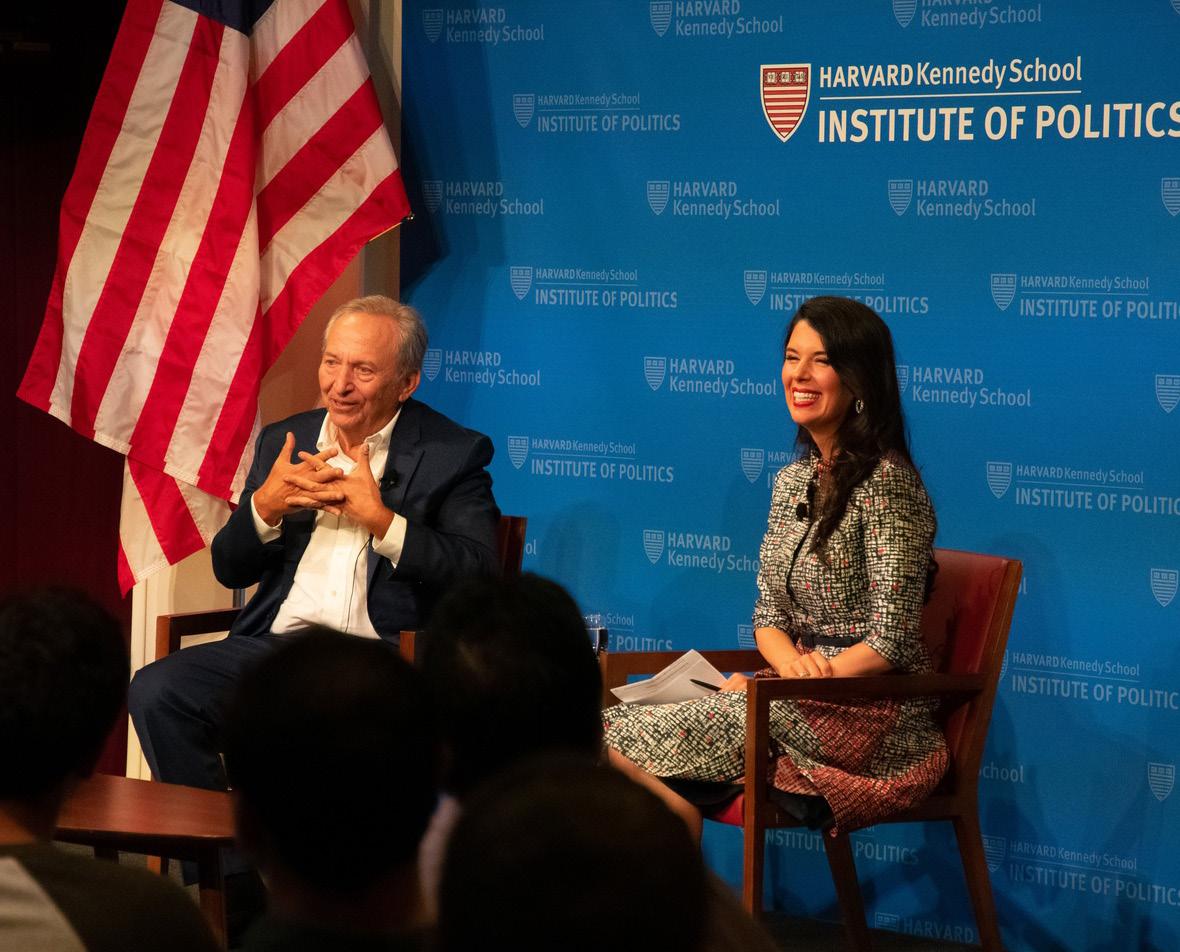
In the summer of 2023, Alice Stewart — a Republican political adviser and CNN commentator who served on the Institute of Politics Senior Advisory Committee — invited Abigail L. Carr ’25 to go on a walk near Stewart’s home in Alexandria, Virginia. An Emmy Award-winning journalist, Stewart talked Carr through potential careers in politics, journalism, and law — industries Carr had no personal connections to.
This moment of mentorship was one of many, Carr said.
“Adults — it’s not a bad thing — but they’ll shrug you aside. They don’t necessarily see the gain for them in investing in you,” Carr said. “Alice was always so willing to do that.”`“She so clearly cared about investing in our success,” she added.
Stewart, a longtime presence at the IOP who was known at Harvard for her dedication to students, died early Saturday morning.
Law enforcement officers said Stewart’s body was found outdoors in Virginia’s Bellevue neighborhood and that they believed a medical emergency had caused her death, according to CNN. She was 58.
‘So Kind and Open’ Stewart was born on March 11, 1966, in Atlanta and graduated from the University of Georgia’s Grady School of Journalism. After graduation, Stewart began her career working as a local reporter in Georgia.
Stewart left journalism in 2005 to join Arkansas Governor Mike D. Huckabee as his communications director. When Huckabee later staged a bid for the Republican presidential nomination, Stewart served in the same
role for his campaign — a role she would later assume for Republican presidential hopefuls: Senator Ted Cruz (R-Texas), former Senator Rick J. Santorum, and former Rep. Michele M. Bachmann.
Stewart joined CNN as a political commentator in 2016. She first came to Harvard in 2019 as an IOP resident fellow, a position she held for two semesters before her appointment to the IOP’s SAC in 2021.
Harvard Kennedy School Dean Douglas W. Elmendorf, IOP Director Setti D. Warren, and IOP SAC Chair Michael Nutter wrote in a joint statement that Stewart was “a wonderful guiding influence.”
“She was always engaged and enthusiastic, and she provided consistently valuable advice to strengthen the IOP in serving Harvard College students interested in politics and public service,” they wrote. Several students who worked
closely with Stewart said that despite her impressive professional record, she connected with them on a personal level.
Former IOP President Amen Gashaw ’24 — who served as one of Stewart’s liaisons during her second stint as an IOP fellow in 2020 — recalled that her second meeting with Stewart turned into a game of truth or dare to get to know one another.
Stewart made game nights a tradition for the term, Gashaw said.
“Often with fellows, they’re pretty high profile and can be intimidating to talk to,” Gashaw added. “She was always ready to just make herself approachable.”
IOP Treasurer Saba Mehrzad ’25 called Stewart “so kind and open” and recalled how Stewart did not let her obligations as a commentator divert attention from her students.
When Stewart once received a request to do a TV hit during a scheduled talk with the IOP’s

Women’s Initiative and Leadership Group, she did not cancel the event. Instead, Mehrzad said, Stewart gave advice to students who signed up for the event, before she allowed them to watch on as she taped for a live segment on CNN.
“That’s the biggest thing that still sticks out to me — her willingness to incorporate the IOP and incorporate students as much as she possibly could,” Mehrzad said.
‘Huge Asset’ for Conservative Students
In 2021, conservative members of the IOP Student Advisory Committee raised concerns that the organization lacked conservative voices in its programming.
In response, the IOP launched the Conservative Coalition — a hub for right-of-center students. Michael Oved ’25, a co-chair of the group, credited Stewart for helping found the program.
“The Conservative Coalition would not have existed without Alice Stewart,” Oved said.
In addition to helping found a home for conservative IOP members, Stewart played a pivotal role in attracting more conservative voices to speak at Harvard, a university whose faculty and student body leans liberal.
“There’s not always a streamlined path to bringing more conservative speakers to Harvard,” said Carr, who now co-chairs the Conservative Coalition. “She’s navigated that process incredibly gracefully.”
The IOP had hoped Stewart could continue to lead the charge on ensuring political diversity within the IOP, especially among its speakers, according to IOP President Pratyush Mallick ’25.
“She was a huge asset for us in making sure that Republican members of Congress were aware and willing to come to the kinds of programming and events that we did,” Mallick said.
Several students said Stewart was a strong supporter of student work and expression. Oved said Stewert personally mentored him and used her connections with high-profile Republicans to platform the work of conservative students at Harvard.
“She’s just always interested in getting conservatives on the national stage involved at Harvard, and getting conservatives at Harvard on the national stage,” Oved said.
Former IOP Director Mark D. Gearan ’78 praised Stewart’s mentorship, saying that her status as a “nationally respected” conservative was a guiding light for “all students, but especially
conservative students.”
“Really lifting the Conservative Coalition that we had was really essential,” Gearan said.
‘Taken Care Of’ Stewart’s dedication to students extended beyond her time as an IOP fellow, many undergraduates who knew her said.
“A testament to how committed she was to the students in the IOP was that she tracked all of them so closely, even after they graduated,” said Carine M. Hajjar ’21, who served in IOP leadership while Stewart was a fellow.w Hajjar recalled how Stewart took her out to dinner when she was covering her first presidential rally for the Boston Globe in New Hampshire. Hajjar said she had barely slept or eaten in three days, but after seeing Hajjar’s coverage on X, Stewart checked in on her.
“She took me out to dinner to make sure I got something to eat and just to catch up with me and gave me really valuable advice on how to best report on these types of presidential things,” Hajjar said.
“That’s how I remember Alice,” she added. “It’s just always looking out, not only for career stuff but personally as well — making sure that I was taken care of in that moment.”
Victor E. Flores ’23-’25 and Nadia R. Douglas ’23-’24, who previously served together as the co-chairs of the IOP Fellows and Study Group Program in 2021, wrote in a joint statement that Stewart’s “influence and dedication” shaped their own career paths.
“While we differed politically, her willingness to engage in difficult conversations served to inspire us and our fellow liaisons to continue our advocacy across political lines,” the two wrote. Gearan said that Stewart’s “rather extraordinary commitment” to students — even beyond Harvard — was part of why the IOP asked her to join SAC.
“She was happy to help to introduce them to people in Washington,” Gearan said. “To use her broad network to tap the individuals that she knew and worked with.” Carr, the Conservative Coalition co-chair, said it would be hard to imagine the IOP without Stewart and her mentorship.
“We’re not going to be able to replace Alice,” Carr said. “I don’t think you can even use the word replace in the context of Alice Stewart.”
william.mao@thecrimson.com dhruv.patel@thecrimson.com
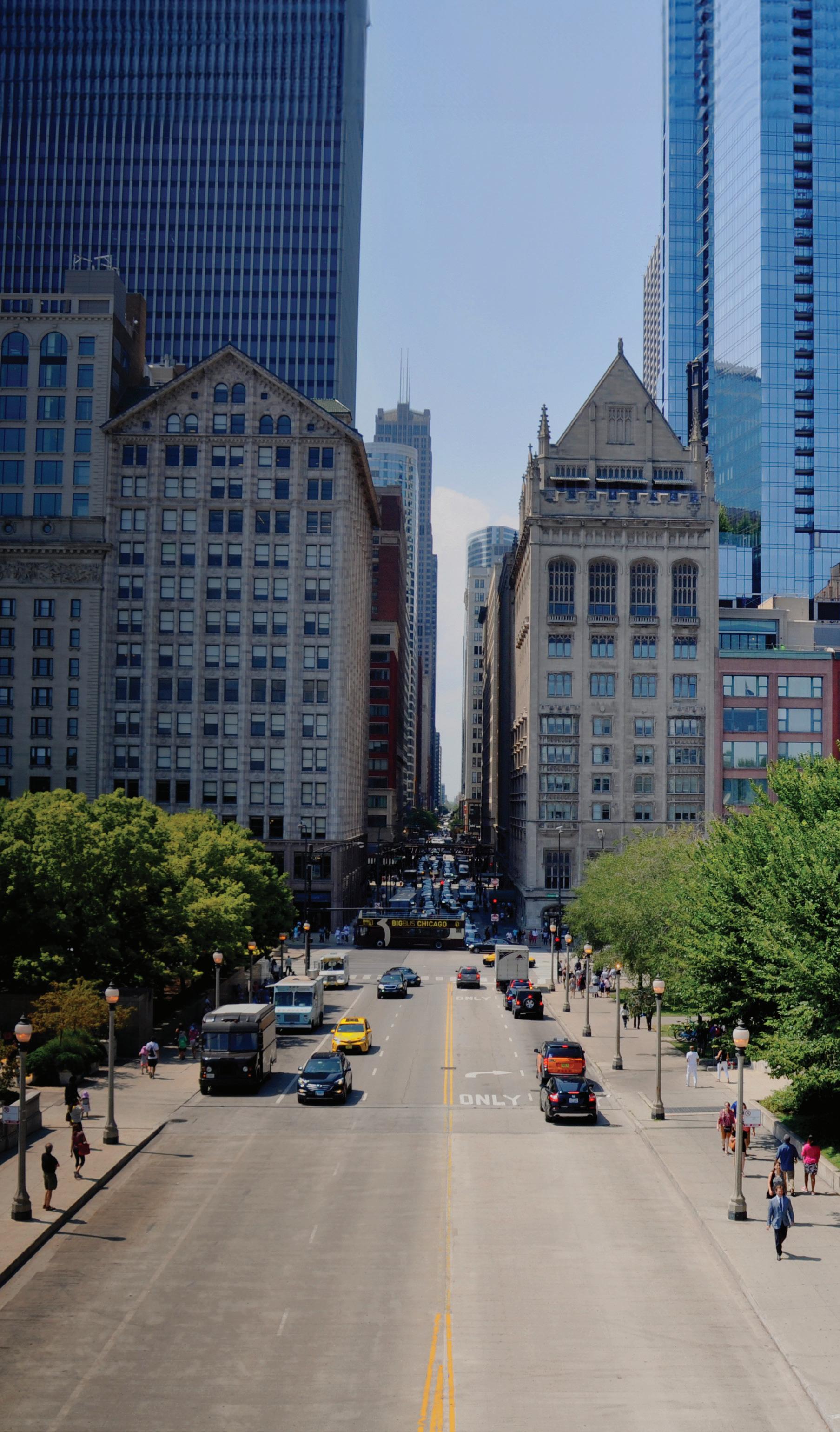

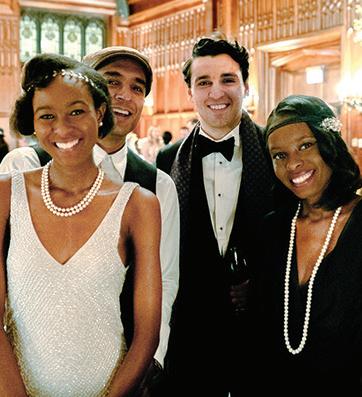

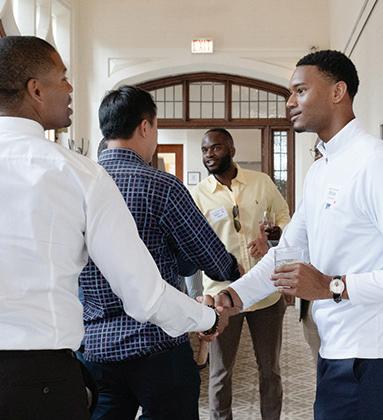




Today you join a long crimson line of exceptional alumni. Welcome to the recent graduate community!
The Harvard Alumni Association and the Harvard College Fund would like to thank all the volunteers on the 2024 Class Committee for your leadership and dedication. From creating memorable class programming and events to raising awareness of how the Harvard College Fund supports every student throughout their Harvard journey, you have built a community with the potential to make a di erence for the next generation of Harvard students.


We appreciate all you have done, and will continue to do, to foster a culture of communication, participation, volunteerism, and philanthropy among your classmates.



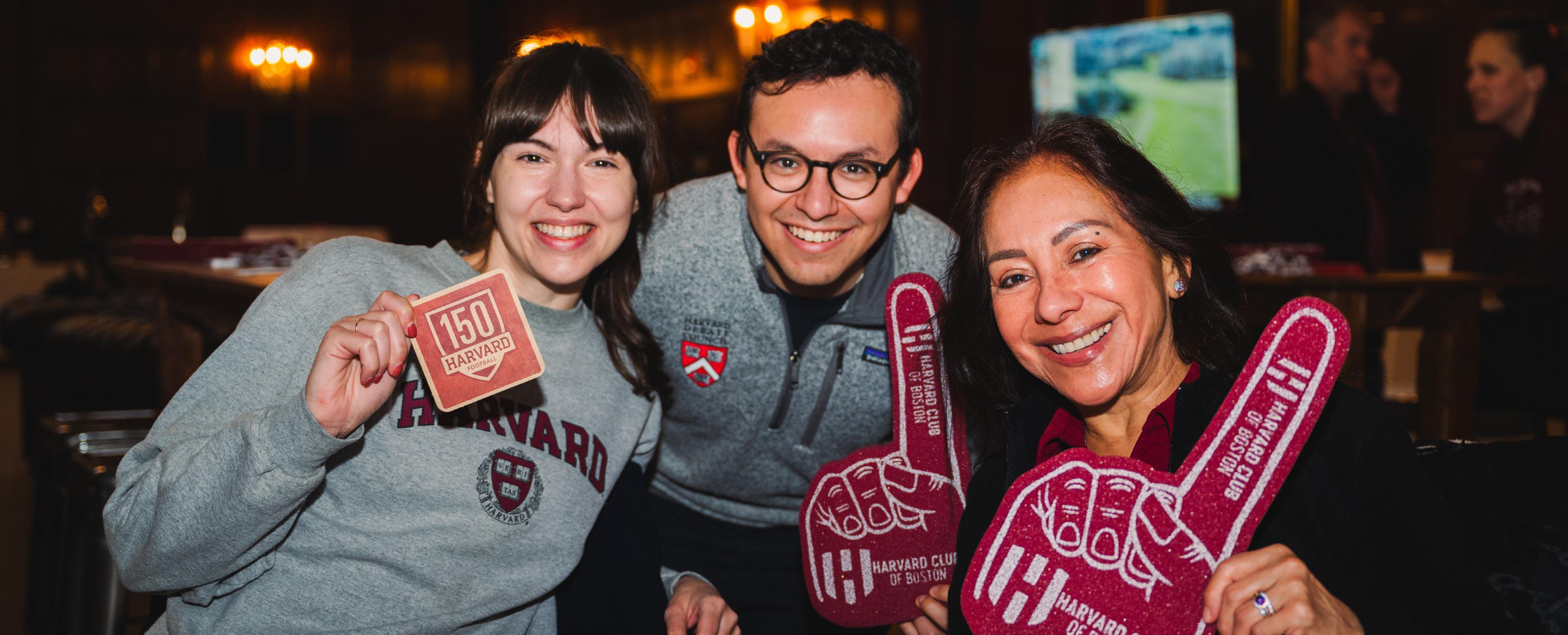
Meeting brilliant, interesting people shouldn’t end just because you graduated. Join the Harvard Club of Boston with the complimentary Class of 2024 membership and make the club your new home base for all things Harvard.
No membership fees until September 1, 2025







































